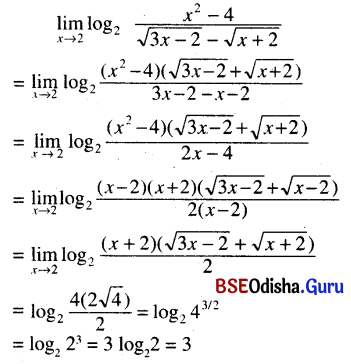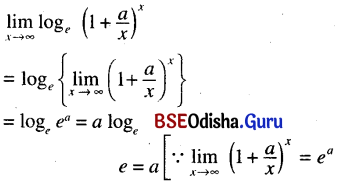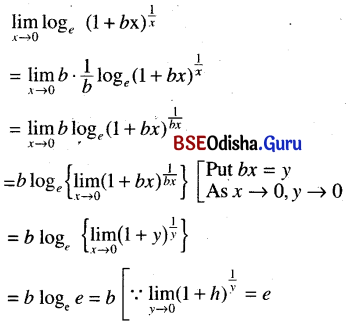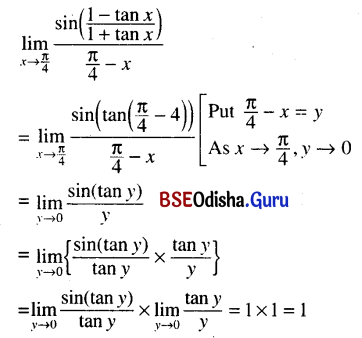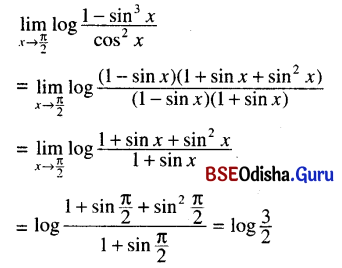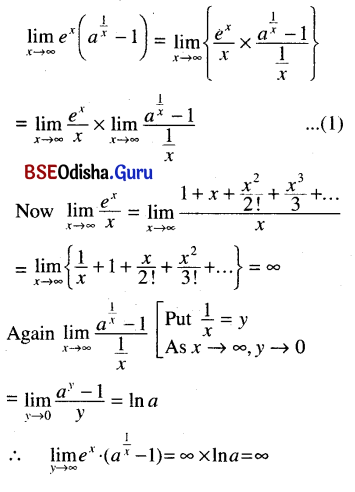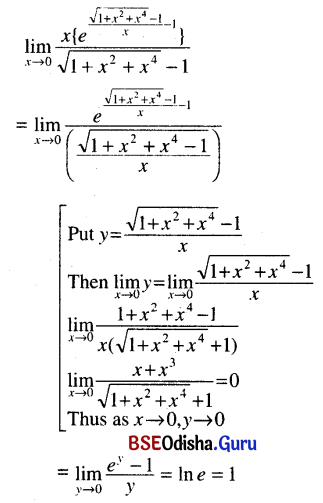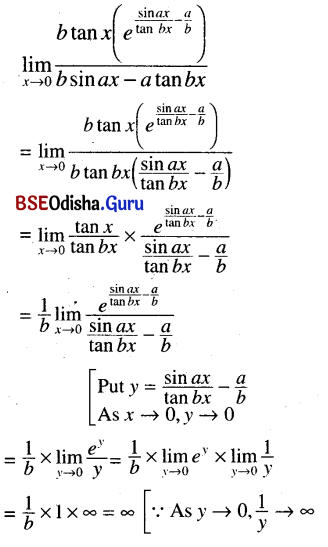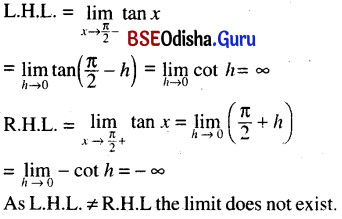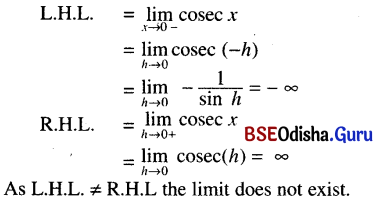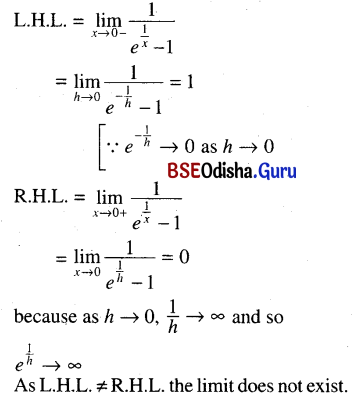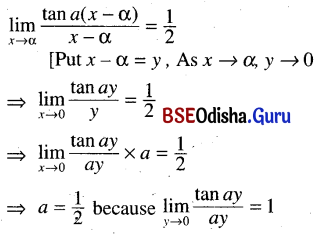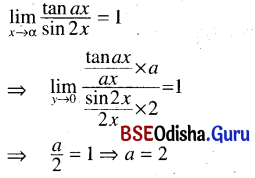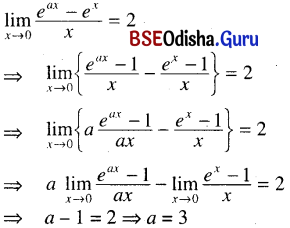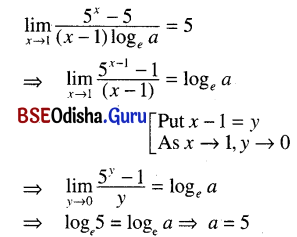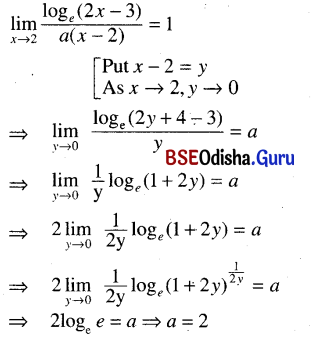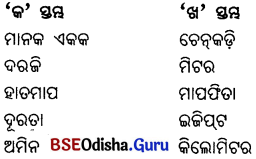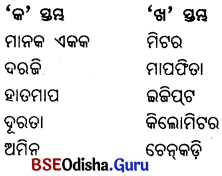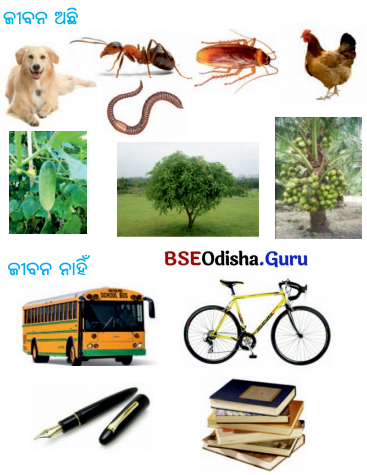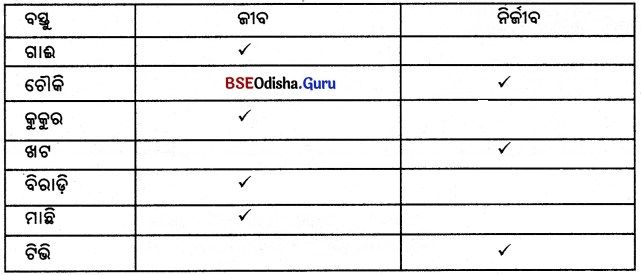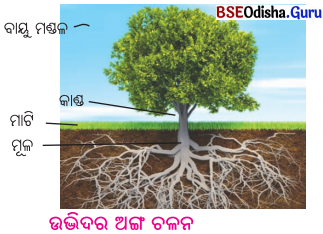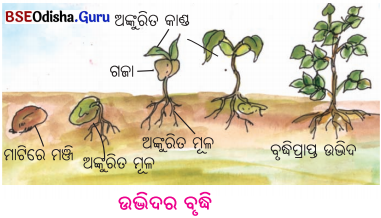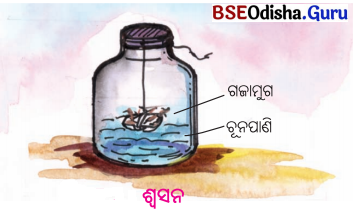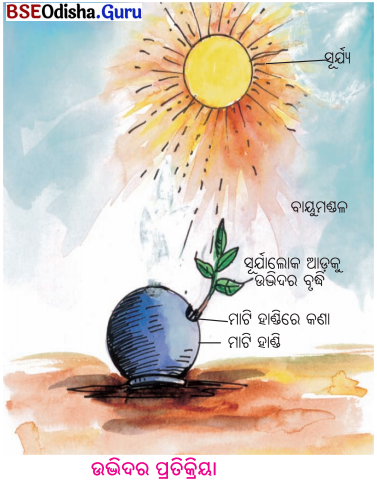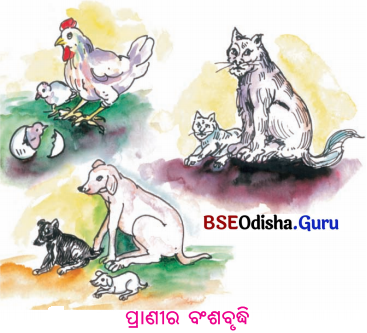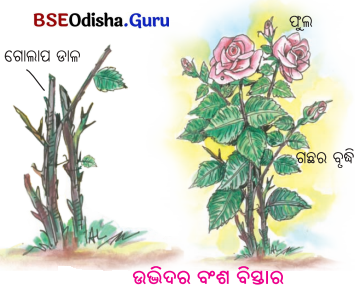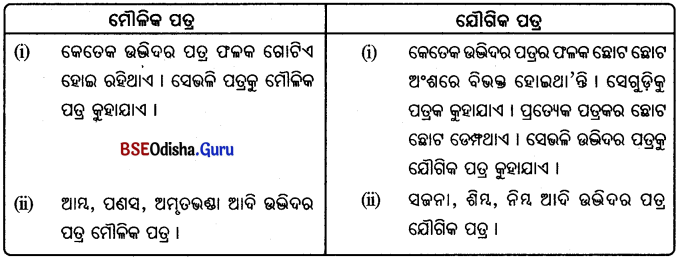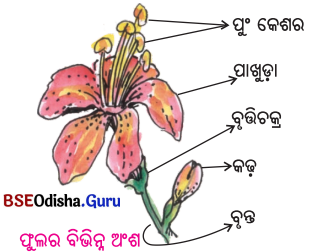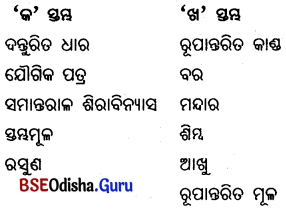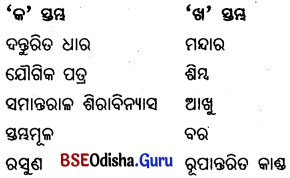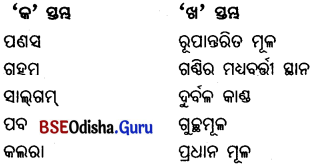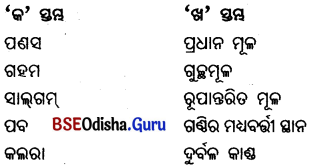Odisha State Board BSE Odisha Class 9 Sanskrit Grammar Book Solutions Chapter 9 ଧାତୁ ରୂପ Textbook Exercise Questions and Answers.
BSE Odisha Class 9 Sanskrit Grammar Solutions Chapter 9 ଧାତୁ ରୂପ
ଧାତୁ ପରିଚୟ:
ବାକ୍ୟଟିଏ ସାଧାରଣତଃ ‘କର୍ତ୍ତା’ ଓ ‘କ୍ରିୟା’ କୁ ନେଇ ଗଠିତ ହୋଇଥାଏ । ବାକ୍ୟରେ କୌଣସି ‘କାର୍ଯ୍ୟ’ କରିବା ବା ହେବା ବୁଝାପଡ଼ିଲେ, ସେହି କାର୍ଯ୍ୟକୁ ବୁଝାଉଥିବା ‘ପଦ’କୁ କ୍ରିୟାପଦ କୁହାଯାଏ; ଯଥା- ବାଳକ ପଠତି । ଏଠାରେ ‘ପଠତି’ ବାଳକର ପଠନ କାର୍ଯ୍ୟକୁ ବୁଝାଉଥିବାରୁ ବାକ୍ୟରେ ‘କ୍ରିୟାପଦ’ ଅଟେ ।
ସଂସ୍କୃତ ବ୍ୟାକରଣରେ କ୍ରିୟାର ମୂଳରୂପକୁ ‘ଧାତୁ’ କୁହାଯାଏ । ତେଣୁ ଉପର୍ୟ୍ୟକ୍ତ ବାକ୍ୟରେ ‘ପଠ୍’ ଧାତୁର ପ୍ରୟୋଗ ହୋଇଛି ବୋଲି କହିବା । ସେହିପରି କୃ-କରିବା, ଭୂ-ହେବା, ଗମ୍-ଯିବା ଓ ସ୍ଥା-ରହିବା ପ୍ରଭୃତି ୨୧୧୫ଟି ‘ଧାତୁ’ ରହିଛି । ମୂଳଧାତୁରେ ତିପ୍, ତସ୍, ଝି ଆଦି ପ୍ରତ୍ୟୟ ଯୋଗ କରି ଆମେ ପଠ୍ + ତିପ୍ = ପଠତି, ପଠ୍ + ତସ୍ = ପଠତଃ ଓ ପଠ୍ + ଝି = ପଠନ୍ତି ପ୍ରଭୃତି କ୍ରିୟାପଦ ପାଇଥାଉ । ଏହି ପ୍ରତ୍ୟୟଗୁଡ଼ିକ ପ୍ରତି ଲକାରରେ ପରସ୍ପେପଦୀ ଧାତୁରେ ପୁରୁଷ ଓ ବଚନ କ୍ରମରେ ୯ ଟି ଓ ଆତ୍ମନେପଦୀ ଧାତୁରେ ମଧ୍ଯ ୯ଟି । ଏହିପରି ପ୍ରତ୍ୟୟଗୁଡ଼ିକର ସଂଖ୍ୟା ୧୮ ।
ପ୍ରଥମ ପ୍ରତ୍ୟୟ ‘ତିପ୍’ର ‘ତି’ ଠାରୁ ଶେଷ ପ୍ରତ୍ୟୟ ‘ମହିଡ୍’ ର ‘ଡ୍’ ପର୍ଯ୍ୟନ୍ତ ‘ତିହ୍ନ’ ପ୍ରତ୍ୟାହାର ଅଟେ । ମୂଳଧାତୁରେ ‘ତିଙ୍’ ପ୍ରତ୍ୟୟ ଯୋଗ କରି ଆମେ କ୍ରିୟାପଦଟି ପାଇଥାଉ । ତେଣୁ ପରସ୍ପେପଦୀ ଓ ଆତ୍ମନେପଦୀ କ୍ରିୟାପଦଗୁଡ଼ିକୁ ସଂସ୍କୃତରେ ‘ତିନ୍ତ’ ଅଟନ୍ତି ।
ଉଦାହରଣ : ପଠ୍ + ତିପ୍ = ପଠତି ।
ସେବ୍ + ମହିଡ୍ = ସେବାମହେ ଇତ୍ୟାଦି ।
କ୍ରିୟାବାଚକ ପ୍ରକୃତି (ମୂଳ)କୁ ‘ଧାତୁ’ କୁହାଯାଏ । ସଂସ୍କୃତ ଭାଷାରେ ବ୍ୟବହୃତ ‘ଧାତୁ’ ଗୁଡ଼ିକ (୧) ପରସ୍ପେପଦୀ, (୨) ଆତ୍ମନେପଦୀ ଓ (୩) ଉଭୟପଦୀ କ୍ରମରେ ୩ ଭାଗରେ ବିଭକ୍ତ ।
(୧) ପରଢୌପଦୀ :
କ୍ରିୟାର ଫଳ ‘ପରମୈ’ ଅର୍ଥାତ୍ ଅନ୍ୟପାଇଁ ଉଦ୍ଦିଷ୍ଟ ହେଲେ, ଧାତୁକୁ ପରସ୍ପେପଦୀ କୁହାଯାଏ; ଯଥା- ବ୍ରାହ୍ମଣ ରାଜ୍ଞ ଯଜତି ବା ପାଚକ ଅନ୍ତଃ ପଚତି । ଏଠାରେ ଯଜ୍ଞର ଫଳ କର୍ତ୍ତା ବ୍ରାହ୍ମଣର କିମ୍ବା ଅନ୍ନପାକର ଫଳ କର୍ତ୍ତା ପାଚକପାଇଁ ଉଦ୍ଦିଷ୍ଟନୁହେଁ । ଏହା ଯଥାକ୍ରମେ ରାଜାଙ୍କପାଇଁ କିମ୍ବା ପାଚକର ସ୍ୱାମୀପାଇଁ ଉଦ୍ଦିଷ୍ଟ । ତେଣୁ ଏଠାରେ ‘ପରସ୍ପେପଦୀ’ ଧାତୁର ପ୍ରୟୋଗ ହୋଇଛି ।
(୨) ଆତ୍ମନେପଦୀ :
ଯେଉଁଠାରେ କ୍ରିୟାର ଫଳ କର୍ତ୍ତା ନିଜେ ଭୋଗକରେ, ସେ ସ୍ଥାନରେ ଧାତୁ ଆତ୍ମନେପଦୀ ହୋଇଥାଏ; ଯଥା- ସେବକଃ ସେବତେ କିମ୍ବା ଫଳ ରୋଚତେ । ଏଠାରେ ‘ସେବା’ କାର୍ଯ୍ୟ ସେବକର ସ୍ବାର୍ଥସାଧନ ନିମିତ୍ତ ଉଦ୍ଦିଷ୍ଟ ଓ ‘ରୁଚିବା’ କ୍ରିୟା ଫଳ ଖାଉଥିବା ବ୍ୟକ୍ତିପାଇଁ ଉଦ୍ଦିଷ୍ଟ । ତେଣୁ ‘ସେବ୍’ ଓ ‘ରୁଚ୍’ ପ୍ରଭୃତି ‘ଆତ୍ମନେପଦୀ’ ଧାତୁ ଅଟନ୍ତି ।
(୩) ଉଭୟପଦୀ :
କେତେକ ‘ଧାତୁ’ ଉପର୍ୟ୍ୟକ୍ତ ଉଭୟପ୍ରକାରେ ମଧ୍ୟ ବ୍ୟବହୃତ ହୋଇଥା’ନ୍ତି । ଏମାନଙ୍କୁ ‘ଉଭୟପଦୀ’ ଧାତୁ କୁହାଯାଏ । କର୍ତ୍ତା ଅନ୍ୟପାଇଁ ଓ ନିଜପାଇଁ କାର୍ଯ୍ୟ କଲେ ‘କ୍ରିୟା’ ଉଭୟପଦୀ ହୋଇଥାଏ; ଯଥା –
(୧) ମାତା ଅନ୍ତଃ ପଚତି । ମାଆ ଭାତ ରାନ୍ଧୁଛି ।
(୨) ରମା ଅନ୍ତଃ ପଚତେ । ରମା ଭାତ ରାନ୍ଧୁଛି ।
ଏଠାରେ ‘ପଚ୍’ ଧାତୁଟି ପ୍ରଥମେ ପରସ୍ପେପଦୀ ଓ ପରେ ଆତ୍ମନେପଦୀ ଭାବରେ ପ୍ରୟୋଗ ହୋଇଛି । ତେଣୁ ଏହା ଏକ ‘ଉଭୟପଦୀ’ ଧାତୁ ଅଟେ ।

ସଂସ୍କୃତ ଭାଷାରେ ଉପଲବ୍ଧ ସମସ୍ତ ଧାତୁକୁ ‘ଦଶ’ ଗୋଟି ‘ଗଣ’ ରେ ବିଭକ୍ତ କରାଯାଇଛି । ମହର୍ଷି ପାଣିନିଙ୍କ ଧାତୁପାଠରେ ଦଶଗୋଟି ଗଣର ଉଲ୍ଲେଖ ରହିଛି । ଏଗୁଡ଼ିକ ହେଲା – ଭ୍ଲାଦି, ଅଦାଦି, ଜୁହୋତ୍ୟାଦି, ଦିବାଦି, ସ୍ୱାଦି, ତୁଦାଦି, ରୁଧାଦି, ତନାଦି, କ୍ୟାଦି ଓ ଚୁରାଦିଗଣ । ପ୍ରତ୍ୟେକ ଗଣର ନାମ, ତା’ର ପ୍ରଥମ ଧାତୁ ସହ ‘ଆଦି’ ବା ପ୍ରଭୃତିକୁ ନେଇ ନାମିତ; ଯଥା- ‘ଭ୍ଲାଦି’ କହିଲେ ‘ଭୂ’ ଆଦୌ ବା ଆରମ୍ଭରେ ଯାହାର । ଏହିପରି ସ୍ଥା, ପା, ଗମ୍ ଓ ବସ୍ ପ୍ରଭୃତି ଧାତୁକୁ ବୁଝାଇଥାଏ ।
ଭ୍ଲାଦି, ଦିବାଦି, ତୁଦାଦି ଓ ଚୁରାଦି-ଏହି ୪ଟି ଗଣରେ ୧୮୭୬ଟି ଧାତୁ ଥିବାବେଳେ ଅନ୍ୟ୬ଗୋଟି ଗଣରେ ମାତ୍ର ୨୩୯ ଟି ଧାତୁର ଉଲ୍ଲେଖ ଦେଖିବାକୁ ମିଳେ ।
ଲଳାର:
ସଂସ୍କୃତ ବ୍ୟାକରଣରେ ବିଭିନ୍ନ କାଳ (Tenses) ଓ ଅବସ୍ଥା (Mood) କୁ ‘ଲକାର’ କୁହାଯାଏ । ସମୁଦାୟ ୧୧ଟି ଲକାର ମଧ୍ୟରୁ ଗୋଟିଏ କେବଳ ବୈଦିକ ସଂସ୍କୃତରେ ଓ ଅନ୍ୟ ୧୦ଟି ଲକାର ବୈଦିକ ଓ ଲୌକିକ ସଂସ୍କୃତରେ ପ୍ରୟୋଗ ହୋଇଥିବାର ଦେଖାଯାଏ । ଏଗୁଡ଼ିକର ପ୍ରଥମ ଅକ୍ଷର ‘ଲ’ ହୋଇଥିବାରୁ, ଏମାନଙ୍କୁ ‘ଲକାର’ କୁହାଯାଏ । ଏଗୁଡ଼ିକମଧ୍ୟରୁ ବର୍ତ୍ତମାନ ମାତ୍ର ୫ଟି ଲକାରର ପ୍ରୟୋଗ ହେଉଥିବାର ଦେଖାଯାଏ । ସେଥୁରୁ ଲଟ୍, ଲଡ୍ ଓ ଲୁଟ୍କୁ କାଳ ଲକାର (Tenses) କୁହାଯାଏ ଏବଂ ଲୋଟ୍ ଓ ବିଧୂଲିଡ୍ ଲକାର ୨ଟିକୁ ଅର୍ଥ ଲକାର (Moods) ବୋଲି କୁହାଯାଇଥାଏ । ଏହି ଲକାରଗୁଡ଼ିକୁ ନିମ୍ନୋକ୍ତ ଚିହ୍ନଗୁଡ଼ିକ ସାହାଯ୍ୟରେ ସହଜରେ ଜାଣିହୁଏ ।
| ଲଳାର |
ଅର୍ଥ |
ଚିହିବାର ସଙ୍କେତ |
| ଲଟ୍ |
ବର୍ତ୍ତମାନ କାଳ |
ଛ, ଛି, ଛୁ, ଛୁଁ, ଛନ୍ତି |
| ଲଙ୍ |
ଅତାତ କାଳ |
ଲ, ଲା, ଲି, ଲୁ, ଲେ |
| ଲୃଟ୍ |
ଭବିଷ୍ୟତ କାଳ |
ବ, ବା, ବି, ବୁ, ବେ |
| ଲୋଟ୍ |
ଆଦେଶ / ଅନୁଜ୍ଞା ଅର୍ଥରେ |
ଅ, ଉ, ନ୍ତୁ |
| ବିଧିଲିଙ୍ |
ଉଚିତ / ସମ୍ଭାବନା ଅର୍ଥରେ |
ପାରେ, ପାରୁ, ପାରନ୍ତି, ଉଚିତ |
ପୁରୁଷ:
ସଂସ୍କୃତରେ ପୁରୁଷ ତିନୋଟି; ଯଥା- ଉତ୍ତମପୁରୁଷ, ମଧ୍ୟମପୁରୁଷ ଓ ପ୍ରଥମପୁରୁଷ । ପ୍ରତ୍ୟେକ କ୍ରିୟା ଅନୁଯାୟୀ ବିଭିନ୍ନ ପୁରୁଷ ବ୍ୟବହାର କରାଯାଏ । ଅସ୍ମଦ୍ ଶବ୍ଦ (ଅହମ୍, ଆବାମ୍, ବୟମ୍) କର୍ଷା ହେଲେ
କ୍ରିୟା ଉତ୍ତମପୁରୁଷ, ଯୁଷ୍ମଦ୍ ଶବ୍ଦ (ତ୍ୱମ୍, ଯୁବାମ୍, ପୂୟମ୍ ) କର୍ଷା ହେଲେ କ୍ରିୟା ମଧ୍ଯମପୁରୁଷ ଏବଂ ଅସ୍ମଦ୍, ଯୁଷ୍ମଦ୍ ଶବ୍ଦ ବ୍ୟତୀତ ଅନ୍ୟ ଯେ କୌଣସି ଶବ୍ଦ କର୍ତ୍ତା ହେଲେ କ୍ରିୟା ପ୍ରଥମପୁରୁଷ ଅନ୍ତର୍ଗତ ହୋଇଥାଏ । ଯୁଷ୍ପଦ୍ରର ସମାନ ଅର୍ଥକୁ ବୁଝାଉଥିବା ଭବତ୍ ଶବ୍ଦ (ଭବାନ୍, ଭବନୌ, ଭବନ୍ତଃ ଏବଂ ଭବତୀ, ଭବ, ଭବତ୍ୟ) ମଧ୍ୟ ପ୍ରଥମପୁରୁଷର କ୍ରିୟାରୂପକୁ ଗ୍ରହଣ କରେ ।
ମନେରଖ :
୧। ଗୋଟିଏ ବାକ୍ୟରେ ମଧ୍ଯମପୁରୁଷ ଓ ଉତ୍ତମପୁରୁଷ କ୍ରିୟାର କର୍ତ୍ତା ମିଶିକରି ଥିଲେ, କ୍ରିୟା ଉତ୍ତମପୁରୁଷର ରୂପ ଗ୍ରହଣ କରେ; ଯଥା- ତୁମେ ଓ ମୁଁ ପଢ଼ିବା-ତ୍ରମ୍ ଅହଂ ଚ ପଠିଷ୍ୟାମଃ କିମ୍ବା ‘ଆବାମ୍ ପଠିଷ୍ୟାବ’ । ଏହି ପ୍ରକାରେ ଅନୁବାଦ ହେବ ।
୨। ସେହିପରି ବାକ୍ୟରେ ଉତ୍ତମପୁରୁଷ ଓ ପ୍ରଥମପୁରୁଷ କ୍ରିୟାର କର୍ତ୍ତା ଥିଲେ, କ୍ରିୟା ଉତ୍ତମପୁରୁଷର ରୂପ ଗ୍ରହଣ କରିବ; ଯଥା- ଅହଂ ଡଃ ଚ ପଠାରଃ କିମ୍ବା ଆବାଂ ପଠାନଃ (ଆମେଦୁହେଁ ପଢ଼ୁଛୁ) ।
୩। ବାକ୍ୟରେ ଉତ୍ତମପୁରୁଷ, ମଧ୍ୟମପୁରୁଷ ଓ ପ୍ରଥମପୁରୁଷ କ୍ରିୟାର କର୍ତ୍ତା ମିଳିତ ଭାବରେ ଥିଲେ ‘କ୍ରିୟା’ ଉତ୍ତମପୁରୁଷର ରୂପ ଗ୍ରହଣ କରେ; ଯଥା- ଅହଂ ହଂ ସ୍ଵଂ ଚ ପଠାମଃ । ମୁଁ ତୁମେ ଓ ସେ ମିଶି ଆମ୍ଭେମାନେ ଅର୍ଥକୁ ପ୍ରକାଶ କରୁଅଛି । ତେଣୁ ଏଠାରେ ‘ବୟମ୍’ ଅର୍ଥରେ କ୍ରିୟାପଦ ଉତ୍ତମପୁରୁଷ ବହୁବଚନ ହୁଏ ।
୪। ଗୋଟିଏ ବାକ୍ୟରେ ମଧମପୁରୁଷ ଓ ପ୍ରଥମପୁରୁଷ କ୍ରିୟାର କର୍ତ୍ତା ରହିଥିଲେ ‘କ୍ରିୟା’ ମଧ୍ୟମପୁରୁଷର ରୂପ ଗ୍ରହଣ କରେ; ଯଥା- ଯୁବାଂ ଯଦୁଃ ଚ ପଠଥ (ତୁମେ ଦୁହେଁ ଓ ଯଦୁ ପଢୁଛ) । ଏଠାରେ ତୁମେ ଦୁହେଁ ଓ ଯଦୁ ମିଶି, ତୁମ୍ଭେମାନେ (ଯୁୟମ୍) ଅର୍ଥକୁ ପ୍ରକାଶ କରୁଥିବାରୁ କ୍ରିୟାପଦ ମଧ୍ୟମପୁରୁଷର ରୂପ ଗ୍ରହଣକରିଛି । ଏହା ଦୁଇଜଣରୁ ଅଧ୍ଵକକୁ ବୁଝାଉଥିବାରୁ ବହୁବଚନରେ ପ୍ରୟୋଗ ହେଲା ।
ବଚନ:
‘ବଚନ’ ଶବ୍ଦର ଅର୍ଥ ସଂଖ୍ୟା । କର୍ତ୍ତାର ଏକବଚନ, ଦ୍ବିବଚନ ଓ ବହୁବଚନର ପ୍ରୟୋଗ ଥିବାରୁ କ୍ରିୟାପଦର ମଧ୍ୟ ଏକବଚନ, ଦ୍ୱିବଚନ ଓ ବହୁବଚନ ରୂପ ହୁଏ । କର୍ତ୍ତା ଜଣେ ବା ଗୋଟିଏକୁ ବୁଝାଇଲେ କ୍ରିୟାର ଏକବଚନ, ଦୁଇଟିକୁ ବୁଝାଉଥ୍ଲେ ଦ୍ବିବଚନ ଓ ଦୁଇରୁ ଅଧିକକୁ ବୁଝାଉଥିଲେ ବହୁବଚନର ପ୍ରୟୋଗ ହୁଏ । ତେଣୁ ବାକ୍ୟରେ ଯଥାର୍ଥ କ୍ରିୟାପଦଟିଏ ବ୍ୟବହାର କରିବାକୁ ହେଲେ ଧାତୁ, ଲକାର, ପୁରୁଷ ଓ ବଚନଗୁଡ଼ିକୁ ଜାଣିବା ନିହାତି ଦରକାର; ଯଥା- ତୁମେଦୁହେଁ ପଢ଼ୁଛ । ଏଠାରେ ‘ପଢୁଛ’ କ୍ରିୟାପଦ ପାଇଁ ଆମକୁ ପ୍ରଥମେ ଜାଣିବାକୁ ହେବ ଯେ କର୍ଭା ‘ଯୁବାମ୍’ ମଧ୍ଯମପୁରୁଷ ଦ୍ବିବଚନରେ ଅଛି ଏବଂ ଏହା ‘ବର୍ତ୍ତମାନ କାଳ’ ଅର୍ଥରେ ଲଟ୍ଲକାର ଗ୍ରହଣକରିବ । ପଢ଼ିବା କ୍ରିୟାପାଇଁ ସଂସ୍କୃତରେ ‘ପଠ୍’ ଧାତୁର ପ୍ରୟୋଗ ହୁଏ । ସୁତରାଂ ପଠ୍ ଧାତୁ, ଲଟ୍ ଲକାର, ମଧ୍ଯମପୁରୁଷ ଓ ଦ୍ବିବଚନରେ ‘ପଠଥ’ ଏଠାରେ ଯଥାର୍ଥ କ୍ରିୟାପଦ ଅଟେ । ତେଣୁ ବାକ୍ୟଟି ‘ଯୁବାଂ ପଠନଃ’ ଏହିପରି ହୋଇଥାଏ ।
ସେହିପରି :
‘ପଠ୍’ ଧାତୁ, ଲକାର:
|
ଏକବଚନ |
ଦୃିବଚନ |
ବହୁବଚନ |
| ପ୍ରଥମପୁରୁଷ |
ବାଳକଃ ପଠତି
(ପିଲାଟି ପଢୁଛି) |
ବାଳକୌ ପଠତଃ
(ପିଲାଦୁଇଟି ପଢୁଛନ୍ତି) |
ବାଳକଃ ପଠନ୍ତି
(ପିଲାମାନେ ପଢୁଛନ୍ତି) |
| ମଧ୍ୟମପୁରୁଷ |
ତୃଂ ପଠାସି
(ତୁମେ ପଢୁଛ) |
ଯୁବାଂ ପଠଥଃ
(ତୁମେଦୁହେଁ ପଢୁଛ) |
ୟୁୟଂ ପଠଥ
(ତୁମେମାନେ ପଢ଼ୁଛ) |
| ଉର୍ତ୍ତମପୁରୁଷ |
ଅହଂ ପଠାମି
(ମୁଁ ପଢୁଛି) |
ଆବାଂ ପଠାପଃ
(ଆମେଦୁହେଁ ପଢ଼ୁଛୁ ) |
ବୟଂ ପଠାମଃ
(ଆମେମାନେ ପଢୁଛୁ) |
ଲଟ୍ଲକାର (ବର୍ତ୍ତମାନକାକ):
ବର୍ତ୍ତମାନ ଭିନ୍ନ ଭିନ୍ନ ‘ଧାତୁ’ମାନଙ୍କର ଲଟ୍ଲକାରରେ ପ୍ରୟୋଗ ଦେଖୁବା ।
(କ) କୌଣସି କାର୍ଯ୍ୟର ଆରମ୍ଭ ହୋଇ ପରିସମାପ୍ତି ହୋଇ ନଥିଲେ, ସେହି ‘କାଳ’ କୁ ‘ବର୍ତ୍ତମାନକାଳ’ କୁହାଯାଏ । ପୁନଶ୍ଚ ଯେଉଁ କାର୍ଯ୍ୟ ଅଭ୍ୟାସଗତ ଭାବରେ କରାଯାଏ ବା ହୋଇଥାଏ କିମ୍ବା ଐତିହାସିକ ଘଟଣାକୁ ବୁଝାଇଥାଏ, ସେଠାରେ ମଧ୍ୟ ବର୍ତ୍ତମାନ କାଳ ଅର୍ଥରେ ଲଟ୍ ଲକାରର ପ୍ରୟୋଗ ଦେଖାଯାଏ । ରେଖାଙ୍କିତ କ୍ରିୟାପଦଗୁଡ଼ିକୁ ଲକ୍ଷ୍ୟ କର ।
(କ) ପ୍ରମୋଦଃ ପଠତି । ପ୍ରମୋଦ ପଢୁଛି ।
(ଖ) ସୀତା ନୃତ୍ୟତି । ସୀତା ନାଚୁଛି ।
(ଗ) କୃଷକଃ ଗଚ୍ଛତି । ଚାଷୀ ଯାଉଛି ।
(ଘ) ବ୍ରାହ୍ମଣୀ ପୂଜୟତି । ବ୍ରାହ୍ମଣ ପୂଜାକରୁଛି ।
(ଙ) ପବନଃ ବହତି । ପବନ ବହୁଛି ।
(ଚ) କୋକିନଃ କୂଜତି । କୋଇଲି ରାବୁଛି ।
(ଛ) ଶିଶୁ ହସତି । ପିଲାଟି ହସୁଛି ।
(ଜ) ଅହଂ ଖାଦାମି । ମୁଁ ଖାଉଛି ।
(ଝ) ନଂ ଲିଖସି । ତୁମେ ଲେଖୁଛି ।
(ଞ) ଯୁବାଂ କ୍ରନ୍ଦନଃ । ତୁମେଦୁହେଁ କାନ୍ଦୁଛି ।
(ଟ) ଆବାଂ ତିଷ୍ଠାରଃ । ଆମେଦୁହେଁ ରହୁଛୁ ।
(ଠ) ସୂୟଂ ଭବଥ । ତୁମେମାନେ ହେଉଛ ।

ଏଠାରେ ପଠତି, ନୃତ୍ୟତି, ଗଚ୍ଛତି, ପୂଜୟତି, ବହତି, କୂଜତି, ହସତି, ଖାଦାମି, ଲିଖସି, କ୍ରନ୍ଦଥ, ତିଷ୍ଠାପଃ ଏବଂ ଭବଥ ପ୍ରଭୃତି ଲଟ୍କାରର କ୍ରିୟାପଦ ଅଟନ୍ତି ।
(ଖ) ବର୍ତ୍ତମାନର ନିକଟ ଭବିଷ୍ୟତ କାଳ କିମ୍ବା ଅତୀତ କାଳକୁ ବୁଝାଇବା ପାଇଁ ମଧ୍ୟ ଲଟ୍କାରର ପ୍ରୟୋଗ ହୁଏ । ଯଥା-
(କ) ତଂ କଦା ଗମିଷ୍ୟସି ? – ଏଷ ଗଚ୍ଛାମି । ତୁମେ କେବେ ଯିବ? – ଏହି ଯାଉଛି ।
(ଖ) କିଂ ପାଠ୍ୟ ପଠିଷ୍ୟସି ?-ଏଷ ପଠାମି । କ’ଣ ପାଠ ପଢୁଛ? – ଏହି ପଢୁଛି ।
(ଗ) କଦା ଆଗତୋଽସି ? – ଏଷ ଆଗଚ୍ଛାମି । କେବେ ଆସୁଛ? – ଏହି ଆସୁଛି ।
(ଘ) କଦା ଆନୀତାନି ଏତାନି ଫଳାନି ? -ଏଷ ଆନୟାମି । କେତେବେଳେ ଏତେ ଫଳ ଆଣିଛ -ଏହି ଆଣୁଛି ।
(ଙ) କୁତ୍ର ଗତଃ ଛାତ୍ର ? – ଏଷୋଽସ୍ମି । ଛାତ୍ରଟି କୁଆଡ଼େ ଗଲା? – ଏହି ଅଛି ।
(ଗ) ‘ଯାବତ୍’ ଅବ୍ୟୟର ପ୍ରୟୋଗରେ ମଧ୍ଯ ବେଳେବେଳେ କ୍ରିୟା ଲଟ୍ଲକାରରେ ହୋଇଥାଏ; ଯଥା-
- ଯାବଦହମାଗଚ୍ଛାମି ତାବତ୍ ଅତ୍ର ତିଷ୍ଠ । ଯେ ପର୍ଯ୍ୟନ୍ତ ଆସି ନାହିଁ ସେ ପର୍ଯ୍ୟନ୍ତ ଏଠାରେ ରୁହ ।
- ପ୍ରଭୋ । ଗୃହାଣ ଏତତ୍ ଯାବଦାଗଚ୍ଛାମି । ପ୍ରଭୁ ! ଆସିବାଯାଏ ଏତକ ଗ୍ରହଣ କର ।
(ଘ) ‘ଯଦି ଏପରି ହୁଏ’ – ଇତ୍ୟାଦି ଉପବାକ୍ୟ ପ୍ରୟୋଗ ସ୍ଥଳରେ ମଧ୍ୟ ଲଟ୍ ଲକାରର ବ୍ୟବହାର ଦେଖାଯାଏ; ଯଥା-
(କ) ମିଷ୍ଟାନଂ ଯଚ୍ଛସି ଚେତ୍, ଶୁଭସମାଚାରଂ ବନ୍ଧ୍ୟାମି । ଯଦି ମିଠା ଦେବ, ଶୁଭ ଖବର ଦେବି ।
(ଖ) ଯଦି ବୃଷ୍ଟି ଭବତି, କୃଷକ ବୀଜାନି ବପ୍ସ୍ୟନ୍ତି । ଯଦି ବର୍ଷା ହେବ, କୃଷକମାନେ ମଞ୍ଜି ବୁଣିବେ ।
(ଗ) ଯଦି ଶଯ୍ୟାୟାଂ ପଠସି, ଶୀଘ୍ର ସ୍ବପ୍ନସ୍ୟସି । ଯଦି ଶେଯରେ ପଢ଼ିବ, ଶୀଘ୍ର ଶୋଇବ ।
୧। ସ୍ତମ୍ଭମେଳନଂ କୁରୁତ ।
| ‘କ’ |
‘ଖ’ |
| ଶିଶବଃ |
ପଠତଃ । |
| ତୃଂ |
କୂଜତି । |
| ଯୁବାଂ |
ଧାବତି । |
| ସୀତା ଗୀତା ଚ |
ବଦୟଃ । |
| କୋକିଳଃ |
ହସସି । |
| ହରିଶଃ |
ଖାଦନ୍ତି । |
Answer:
| ‘କ’ |
‘ଖ’ |
| ଶିଶବଃ |
ଖାଦନ୍ତି । |
| ତୃଂ |
ହସସି । |
| ଯୁବାଂ |
ବଦୟଃ । |
| ସୀତା ଗୀତା ଚ |
ପଠତଃ । |
| କୋକିଳଃ |
କୂଜତି । |
| ହରିଶଃ |
ଧାବତି । |
୨। ବନ୍ଧନୀମଧ୍ୟାତ୍ ଧାତୁନାଂ ଯଥାର୍ଥ-ରୂପାଣି ଲିଖୁ ଶୂନ୍ୟସ୍ଥାନଂ ପୂରୟତ ।
ଯଥା- ମମ ମାତା ପ୍ରାତଃ ପଞ୍ଚବାଦନେ ଉଦ୍ଦିଷ୍ପତି ।
(କ) ସା ତସ୍ୟା ନିତ୍ୟକର୍ମାଣି ________ ।
Answer:
କରୋତି
(ଖ) ସା ଦେବାଳୟେ ଦେବାନ୍ ________ ।
Answer:
ପୂଜୟତି
(ଗ) ତଦନନ୍ତରଂ ସା ଭୋଜନଂ _________ ।
Answer:
ପଚତି
(ଘ) ସା ବିଦ୍ୟାଳୟ ଛାତ୍ରାନ୍ __________ ।
Answer:
ପାଠୟତି
(ଙ) ସା ଛାତ୍ରାମାଂ ପ୍ରଶ୍ନନ୍ __________ ।
Answer:
ଶୃଣୋତି
(ଚ) ସା ଆପଣାତ୍ ଫଳାନି __________ ।
Answer:
ଆନୟତି
(ଛ) ରାତ୍ରୋ ସା ଔଷଧାଂ __________ ।
Answer:
ଖାଦତି

(ଜ) ଶୟନକାଳେ ସା ମମ ପିତାମହଂ ____________ ।
Answer:
ସେବତେ
(କରୋତି, ପୂଜୟତି, ପାଠୟତି, ଆନୟତି, ଶୃଣୋତି, ଖାଦତି, ସେବତେ, ପଚତି)
୩। ବନ୍ଧନୀ ମଧ୍ଯସ୍ଥସ୍ୟ ଧାତଃ ଲକାରେ ପ୍ରୟୋଗଂ କୁରୁତ ।
ପିତା ପୁତ୍ର । କିମ୍ ଆଗତୋଽସି ?
ପୁନଃ : ଆମ୍, ଏଷ _________ । (ଆ + ଗମ୍)
ଆଗଚ୍ଛାମି
ପିତା : ତାବତ୍ ଅତ୍ର ଏବ ତିଷ୍ଠ, ଯାବତ୍ ଅହଂ ସଜଃ __________ । (ଭୁ)
ଭବାମି
ପୁନଃ : ପିତଃ । କୁତ୍ର ଗମିଷ୍ୟତଃ ?
ପିତା: କିଂ ଙ _______ । (ବି+ ସ୍ମ ) ? ନୂନଂ ‘ଗୋଟିପୁଅ ନୃତ୍ୟ’ ଦ୍ରଷ୍ଟୁମେବ ।
ବିସ୍ମରସି
ପୁନଃ : ଅସ୍କ୍ରିନ୍ ନୃତ୍ୟ କତିପୟ ନର୍ଭବାଃ _________ । (ନୃତ୍)
ନୃତ୍ୟନ୍ତ
ପିତା : ବୌ ବାଳକୌ ଏବ, କିଂ ନଂ ନ ________ (ଞା)
ଜାନାସି
ପୁନଃ : ନୃତ୍ୟେନ ସହ ତୌ ଗୀତଂ __________ କିମ୍ ? (ଗେ)
ଗାୟତଃ
ପିତା : ଆମ୍, ଏକ ଗୀତଂ ଗାୟତି, ଅପରଃ ତମ୍ __________ (ଅନୁ + କୃ)
ଅନୁକରୋତି
ପୁନଃ: ଇୟଂ ନୃତ୍ୟପରମ୍ପରା ସଂପ୍ରତି କୁତ୍ର _________ ? (ଅସ୍)
ଅସ୍ତି
ପିତା : ପୁରୀ ନିକଷା ରଘୁରାଜପୁର ଇତି ଗ୍ରାମେ ଇୟଂ ନୃତ୍ୟପରମ୍ପରା ଅଦ୍ୟାପି _________ (ପ୍ର + ଚଳ୍)
ପ୍ଚଳତି
ଲଲକାର (ଅତୀତକାଳ):
(କ) ଯେଉଁ କାର୍ଯ୍ୟ ଥରେ ଆରମ୍ଭ ହୋଇ ସମାପ୍ତ ହୋଇସାରିଥାଏ ଏବଂ ବର୍ତ୍ତମାନ ପର୍ଯ୍ୟନ୍ତ ତା’ର କୌଣସି ପ୍ରଭାବ ନଥାଏ, ସେହି କ୍ରିୟାକୁ ଅତୀତକାଳରେ ପ୍ରୟୋଗ କରାଯାଏ । ଅତୀତ ବା ଭୂତ କାଳରେ ‘ଲଡ୍ ଲକାର’ ହୁଏ । ନିମ୍ନଲିଖ ବାକ୍ୟଗୁଡ଼କୁ ଲକ୍ଷ୍ୟ କର –
(କ) ପ୍ରମୋଦଃ ଅପଠତୁ । ପ୍ରମୋଦ ପଢୁଥିଲା ।
(ଖ) ସୀତା ଅନୃତ୍ୟତ୍ । ସୀତା ନାଚୁଥିଲା ।
(ଗ) କୃଷକଃ ଅଗଚ୍ଛତ୍ର । ଚାଷୀ ଯାଉଥିଲା ।
(ଘ) ବ୍ରାହ୍ମଣୀ ଅପୂଜୟତ୍ । ବ୍ରାହ୍ମଣ ପୂଜା କରୁଥିଲା ।
(ଙ) ପବନଃ ଅବହତ୍ । ପବନ ବହୁଥିଲା ।
(ଚ) କୋକିନଃ ଅକୂଜତ୍ । କୋଇଲି ରାବୁଥିଲା ।
(ଛ) ଶିଶୁ ଅହସ । ଶିଶୁ ହସୁଥିଲା ।
(ଜି) ଅହମ୍ ଅଖାଦାମ୍ । ମୁଁ ଖାଉଥିଲି ।
(ଝ) ତୁମ୍ ଅଲିଖ । ତୁମେ ଲେଖୁଥିଲ ।
(ଞ) ଯୁବାମ୍ ଅକ୍ରନ୍ଦତମ୍ । ତୁମେଦୁହେଁ କାନ୍ଦୁଥୁଲ ।
(ଟ) ଆବାମ୍ ଅତିଷ୍ଠାବ । ଆମେଦୁହେଁ ରହୁଥିଲୁ ।
(ଠ) ସୂୟମ୍ ଅଭବତୁ । ତୁମେମାନେ ହେଉଥୁଲ ।
ଏଠାରେ ପ୍ରମୋଦର ପଠନ, ସୀତାର ନୃତ୍ୟ, କୃଷକର ଗମନ ପ୍ରଭୃତି କାର୍ଯ୍ୟର ସମାପ୍ତି ହୋଇଥିବା ସୂଚିତ ହୋଇଥିବାରୁ କ୍ରିୟାଗୁଡ଼ିକ ଲଲକାରରେ ପ୍ରୟୋଗ ହୋଇଛନ୍ତି ।
(ଖ) ଲଲକାରର କ୍ରିୟାପଦ ନିର୍ମାଣ କଲାବେଳେ ‘ଧାତୁ’ ପୂର୍ବରେ ପ୍ରାୟତଃ ‘ଅ’ ବର୍ଷ ଯୋଗକରାଯାଇଥାଏ ।
ବର୍ତ୍ତମାନ କାଳରେ (ଲଟ୍ଲକାରେ) ଗଚ୍ଛତି ଓ ଅତୀତ କାଳରେ (ଲଲକାରେ) ଅଗଚ୍ଛତ୍ ।
ପଠ।ମ୍ ଅପଠମ୍ ।
ସୃରସି ଅସ୍ମରଃ ।
ପିବନ୍ତି ଅପିବନ୍ ।
ସେବତେ ଅସେବତ ।
ଯାବତେ ଅଯାଚତ ।
ଲଭତେ ଅଲଭତ ।
(ଗ) ଧାତୁଟି ଉପସର୍ଗଯୁକ୍ତ ହେଲେ, ପ୍ରଥମେ ମୂଳଧାତୁର ରୂପ କରି ତା’ ପୂର୍ବରେ ‘ଉପସର୍ଗ’ ଲଗାଯାଏ; ଯଥା-
ପ୍ର + ବିଶ୍ = ପ୍ର + ଅବିଶତ୍ = ପ୍ରାବିଶତ୍ ।
ଅନୁ + ଧାବ୍ = ଅନୁ + ଅଧାବତ୍ = ଅନୁଧାବତ୍ ।
ପ୍ର + ନମ୍ = ପ୍ର + ଅନମତ୍ = ପ୍ରାଣମତ୍ ଇତ୍ୟାଦି ।
(କ) ଶିକ୍ଷକ ବିଦ୍ୟାଳୟେ ପ୍ରାବିଶତ୍ ।
(ଖ) ଶିଷ୍ୟ ଶିକ୍ଷକମ୍ ଅନୁଧାବନ୍ ।
(ଗ) ଶିକ୍ଷକଂ ତେ ପ୍ରାଣମନ୍ ।
(ଘ) ବର୍ତ୍ତମାନ କାଳର କ୍ରିୟାପଦରେ ‘ସ୍ମ’ ଯୋଗକଲେ, ଏହା ଅତୀତକାଳକୁ ବୁଝାଏ; ଯଥା-
⇒ ଗଣ୍ଡକୀତୀରେ ହିରଣ୍ୟକଃ ପ୍ରତିବସତି ସ୍ଥ/ପ୍ରତ୍ୟବସତ୍ । ଗଣ୍ଡକୀକୂଳରେ ହିରଣ୍ୟକ ବାସ କରୁଥିଲା।
⇒ ଶିଷ୍ୟ ଆଶ୍ରମେ ପଠତି ସ୍ମ / ଅପଠତ୍ । ଶିଷ୍ୟ ଆଶ୍ରମରେ ପଢ଼ୁଥିଲା ।
⇒ ଗ୍ରାମେ କୃଷକା ତିଷ୍ଠନ୍ତି ସ୍ମ / ଅତିଷ୍ଠନ୍ । ଗାଁରେ ଚାଷିମାନେ ରହୁଥିଲେ ।
କିନ୍ତୁ ଏପରି ‘ସୁ’ ଦ୍ଵାରା ଅତୀତକାଳ କରିବା ପ୍ରାୟତଃ ଦୂର ଅତୀତକୁ ବୁଝାଇଥାଏ । ସର୍ବଦା ଏହାର ପ୍ରୟୋଗ ଗ୍ରହଣୀୟ ନୁହେଁ ।

ଅଭ୍ୟ।ସଃ:
୧। ଅଧସ୍ତନବାକ୍ୟଷୁ ବର୍ତ୍ତମାନକାଳତଃ ଅତୀତକାଳେ କ୍ରିୟାପଦାନାଂ ପରିବର୍ତ୍ତନଂ କୁରୁତ ।
ଯଥା :- ଡଃ କଟକେ ପଠତି/ ଅପଠତ୍ ।
(କ) ଅହଂ ତାଂ ପଶ୍ୟାମି / _________ ।
Answer:
ଅପଶ୍ୟମ୍
(ଖ) ଦଂ କୁତ୍ର ଗଛସି / ___________ ।
Answer:
ଅଗଚ୍ଛ
(ଗ) ରାବଣୀ ସୀତାମ୍ ଅପହରତି / ___________ ।
Answer:
ଅପାହରତ୍
(ଘ) ଯୁୟଂ କାର୍ଯ୍ୟ କୁରୁଥ / ___________ ।
Answer:
ଅକୁରୁତ
(ଙ) ପିତରୌ ପୁତ୍ରସ୍ୟ ଅଙ୍ଗାନି ସ୍ପୃଶତଃ / ___________ ।
Answer:
ଅସ୍ପୃଶତାମ୍
(ଅଗଚ୍ଛ, ଅପଶ୍ୟମ୍, ଅକୁରୁତ, ଅସ୍ପୃଶତାମ୍, ଅପାହରତ୍)
୨। ଅଧସ୍ତନବାକ୍ୟଷୁ କ୍ରିୟାପଦାନାମ୍ ଅତୀତକାଳତଃ ବର୍ତ୍ତମାନକାଳେ ପରିବର୍ତ୍ତନଂ କୁରୁତ ।
ଯଥା:- ଛାତ୍ରା ସ୍ୱ ସ୍ୱ କାର୍ଯ୍ୟମ୍ ଅକୁର୍ବନ୍ । କୁର୍ବନ୍ତି ।
(କ) ଶିଷ୍ୟ ପ୍ରଶ୍ନନ୍ ଅପୂଚ୍ଛତ୍ / ___________ ।
Answer:
ପୃଚ୍ଛତି
(ଖ) ବାଲ୍ମୀକି ରାମାୟଣମ୍ ଅରଚୟତ୍ / ___________ ।
Answer:
ରଚୟତି
(ଗ) ଯୁବାଂ ଭୟେନ ଅବଦତମ୍ / ___________ ।
Answer:
ବଦନଃ
(ଘ) ବୟଂ ରାମାୟଣମ୍ ଅପଠାମ / ___________ ।
Answer:
ପାଠଃ
(ଙ) ଆବାଂ ପାଠମ୍ ଅସ୍ମରାବ / ___________ ।
Answer:
ସ୍ମରାନଃ
ଲଟ୍କାର (ଭବିଷ୍ୟତ କାଳ):
ଯେଉଁ କାର୍ଯ୍ୟ (କ୍ରିୟା) ଆଗାମୀ ସମୟରେ ହେବ, ତାହା ଭବିଷ୍ୟତ କାଳ ଅଟେ । ଏହି ଭବିଷ୍ୟତ୍ କାଳ ଅର୍ଥରେ ‘ଲୁଟ୍କାର’ ହୋଇଥାଏ; ଯଥା-
(କ) ପ୍ରମୋଦଃ ପଠିଷ୍ଯତି । ପ୍ରମୋଦ ପଢ଼ିବ ।
(ଖ) ସୀତା ନର୍ଭିଷ୍ୟତି । ସୀତା ନାଚିବ ।
(ଗ) କୃଷକଃ ଗମିଷ୍ୟତି । ଚାଷୀ ଯିବ ।
(ଘ) ବ୍ରାହ୍ମଣୀ ପୂଜୟିଷ୍ଯତି । ବ୍ରାହ୍ମଣ ପୂଜା କରିବ ।
(ଙ) ପବନଃ ବକ୍ଷ୍ଯତି । ପବନ ବହିବ ।
(ଚ) କୋକିକଃ କୂଜିଷ୍ଯତି । କୋଇଲି ରାବିବ ।
(ଛ) ଶିଶୁ ହସିଷ୍ୟତି । ପିଲାଟି ହସିବ ।
(ଜ) ଅହଂ ଖାଦିଷ୍ଯମି । ମୁଁ ଖାଇବି ।
(ଝ) ନଂ ଲେଖୁସି । ତୁମେ ଲେଖୁବ ।
(ଞ) ଆବାଂ ସ୍ଥାସ୍ୟାରଃ । ଆମେ ଦୁହେଁ ରହିବୁ ।
(ଟ) ଯୁବାଂ ଦ୍ରଷ୍ୟତଃ । ତୁମେ ଦୁହେଁ ଦେଖୁବ ।
(ଠ) ସୂୟଂ ଭବିଷ୍ୟଥ । ତୁମେମାନେ ହେବ ।
ଏଠାରେ ପ୍ରମୋଦର ପଠନ, ସୀତାର ନୃତ୍ୟ, କୃଷକର ଗମନ ପ୍ରଭୃତି କ୍ରିୟା ଭବିଷ୍ୟତରେ ହେବ, ଏହି ଅର୍ଥ ପ୍ରକାଶିତ କରୁଥିବାରୁ ପଠ୍, ଗମ୍ ଓ ନୃତ୍ ପ୍ରଭୃତି କ୍ରିୟାର ଲୁଟ୍ ଲକାରରେ ପ୍ରୟୋଗ ହୋଇଛି ।
{ଧାତୁମାନଙ୍କ ମଧ୍ୟରୁକେତେକ ‘ସେଟ୍’ ଓ କେତେକ ଧାତୁ ‘ଅନିଟ୍’ ଅଟନ୍ତି । ଯେଉଁ ଧାତୁ ଓ ପ୍ରତ୍ୟୟ ମଧ୍ୟରେ ଇଟ୍ (ଇ) ଆଗମ ହୁଏ, ସେମାନଙ୍କୁ ସେଟ୍ ଧାତୁ କହନ୍ତି; ଯଥା- ଭୂ + ଇଟ୍ + ତିପ୍ = ଭବିଷ୍ୟତି । ସେହିପରି ଗମିଷ୍ୟତି, ପଠିଷ୍ୟତି, ବଦିଷ୍ୟତି ଇତ୍ୟାଦି । ଯେଉଁ ଧାତୁ ଓ ପ୍ରତ୍ୟୟ ମଧ୍ୟରେ ଇଟ୍ (ଇ) ଆଗମ ହୁଏ ନାହିଁ, ସେମାନଙ୍କୁ ‘ଅନିଟ୍’ ଧାତୁ କହନ୍ତି; ଯଥା- ପା + ତିପ୍ = ପାସ୍ୟତି, ଦାସ୍ୟତି, କୃଷ୍ଯତି ଇତ୍ୟାଦି ।}

(i) ଲଟ୍ ଲକାର (ବର୍ତ୍ତମାନ କାଳ) ପାଇଁ ଧାତୁରେ ଯେଉଁ ପ୍ରତ୍ୟୟ ଲାଗେ, ଲୂଟ୍ ଲକାର (ଭବିଷ୍ୟତ କାଳ) ପାଇଁ ସେହିସବୁ (ତିପ୍, ତସ୍, ଝି) ପ୍ରତ୍ୟୟ ଲାଗିଥାଏ ।
(ii) ‘ସେଟ୍’ ଧାତୁମାନଙ୍କର ଧାତୁ ଓ ପ୍ରତ୍ୟୟ ମଧ୍ଯରେ ‘ଇଷ୍ୟ’ ଆସିଥାଏ; ଯଥା-
ଗମ୍ + ଇଷ୍ୟ + ତିପ୍ = ଗମିଷ୍ୟତି
ଭୂ + ଇଷ୍ୟ + ତିପ୍ = ଭବିଷ୍ୟତି ଇତ୍ୟାଦି ।
(iii) କିନ୍ତୁ ‘ଅନିଟ୍’ ଧାତୁମାନଙ୍କର ଧାତୁ ଓ ପ୍ରତ୍ୟୟ ମଧ୍ୟରେ କେବଳ ‘ସ୍ୟ’ ଲାଗିଥାଏ ।
ଯଥା- ପା + ସ୍ୟ + ତିପ୍ = ପାସ୍ୟତି ।
ଦା + ସ୍ୟ + ସିପ୍ = ଦାସ୍ୟସି ଇତ୍ୟାଦି ।
ଅଭ୍ୟ।ସଃ:
୧। ସମ୍ଭାଷଣଂ ପଠତ । ତତ୍ର ରେଖାଙ୍କିତାନାଂ କ୍ରିୟାପଦାନାମ୍ ଉଦାହରଣରୀତ୍ୟା ବର୍ଗୀକରଣଂ କୁରୁତ । (ସମ୍ଭାଷଣଟି ପଢ଼ । ସେଠାରେ ରେଖାଙ୍କିତ କ୍ରିୟାପଦମାନଙ୍କର ଉଦାହରଣ ରୀତିରେ ବିଭାଗୀକରଣ କର ।) ପୁନଃ :
ପିତଃ । ଐଷମଃ ଭ୍ରମିତଂ କୁତ୍ର ଗମିଷ୍ୟତଃ?
Answer:
ବାପା ! ଏବର୍ଷ ବୁଲିବାକୁ କୁଆଡ଼େ ଯିବା ?
ପିତା : ଅହଂ ଡ୍ରାମ୍ ଉତ୍କଳପ୍ରଦେଶଂ ନେବ୍ୟାମି । ତତ୍ର ଭର୍ଗବତଃ ଜଗନ୍ନାଥସ୍ୟ ମନ୍ଦିରଂ ଦକ୍ଷ୍ୟାବ ।
Answer:
ମୁଁ ତୁମକୁ ଓଡ଼ିଶା ରାଜ୍ୟକୁ ନେବି । ସେଠାରେ ଭଗବାନ ଜଗନ୍ନାଥଙ୍କ ମନ୍ଦିର ଦେଖୁବା ।
ପୁନଃ : କଦା ?
Answer:
କେବେ ?
ପିତା : ରବିବାସରେ ଗମିଷ୍ୟାମଃ । ତବ ମାତାଽପି ଯାସ୍ୟାତି ।
Answer:
ରବିବାର ଦିନ ଯିବା । ତୁମ ମାଆ ମଧ୍ଯ ଯିବେ ।
ପୁନଃ : ଉତ୍କଳପ୍ରଦେଶ ବୟଂ କୁତ୍ର ସ୍ଥାସ୍ୟାମ, କିଂ ଦ୍ରଷ୍ୟାମଷ୍ଟ ।
Answer:
ଓଡ଼ିଶା ରାଜ୍ୟରେ ଆମେ କେଉଁଠି ରହିବା ଏବଂ କ’ଣ ଦେଖିବା ।
ପିତା : ତତ୍ର ରାଜଧାନ୍ୟ ଭୁବନେଶ୍ୱରେ ସ୍ଥିତଃ ବୟଂ କୋଣାର୍କମନ୍ଦିରଂ, ନନ୍ଦନକାନନସ୍ୟ ଜୀବୋଦ୍ୟାନଂ, କଟକସ୍ୟ ବାରବାଟୀ-ଦୁର୍ଗ ଚ ଗମିଷ୍ୟାମଃ ।
Answer:
ସେହି ରାଜଧାନୀ ଭୁବନେଶ୍ବରରେ ରହି ଆମେ କୋଣାର୍କ ମନ୍ଦିର ନନ୍ଦନକାନନର ଜୀବୋଦ୍ୟାନ ଏବଂ କଟକର ବାରବାଟୀ ଦୁର୍ଗକୁ ଯିବା ।
ପୁନଃ : ପ୍ରଭୁ ଜଗନ୍ନାଥ ଉତ୍କଳସ୍ୟ କୁଳଦେବ । ତତ୍ର ଶ୍ରୀମତଃ ଶଙ୍କରାଚାର୍ଯ୍ୟସ୍ୟ ଗୋବର୍ଦ୍ଧନମଠସ୍ୟ ଦର୍ଶନଂ ପ୍ରାଫ୍ସ୍ୟସି ।
Answer:
ପ୍ରଭୁ ଜଗନ୍ନାଥ ଓଡ଼ିଶାର କୁଳଦେବତା । ସେଠାରେ ଶ୍ରୀ ଶଙ୍କରାଚାର୍ଯ୍ୟଙ୍କ ଗୋବର୍ଦ୍ଧନ ପୀଠ ଦେଖା ହେବ । ଜଗନ୍ନାଥଙ୍କ ଦର୍ଶନପରେ ମହୋଦଧ୍ୟରେ ଯଦି ସ୍ନାନକରିବ; ତେବେ ଜୀବନର ଅଖଣ୍ଡ ଫଳ ଲାଭକରିବ।
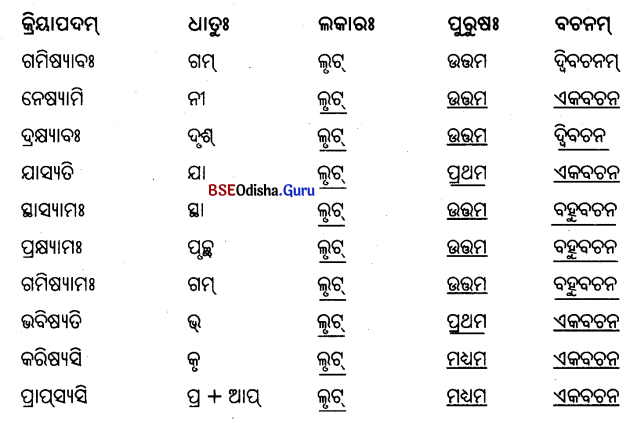
୨। ନିମ୍ନଲିଖଷୁ ପତ୍ୟେଷୁ ଲକାରକ୍ରିୟାପଦାନି ଲୁଟ୍କାର କ୍ରିୟାପଦାନି ଚ ନିରୂପୟତ ।
(କ) ଅନ୍ତେନ ସଦୃଶଂ ଦାନଂ ନ ଭୂତଂ ନ ଭବିଷ୍ୟତି।
ତସ୍ମାଦନଂ ବିଶେଷେଣ ଦାତୁମିଛନ୍ତି ମାନବାଃ ॥
Answer:
ଅନ୍ନପରି ଦାନ ନଥିଲା କି ହେବ ନାହିଁ ।
ତେଣୁ ବିଶେଷଭାବେ ମନୁଷ୍ୟମାନେ ଅନ୍ନଦାନ କରିବାକୁ ଇଚ୍ଛାକରନ୍ତି ।
(ଖ) କ୍ଷମାଶସ୍ତ୍ର କରେ ଯସ୍ୟ ଦୁର୍ଜନଃ କିଂ କରିଷ୍ଯତି।
ଅତୃଣେ ପତିତୋ ବହିଃ ସ୍ୱୟମେବୋପଶାମ୍ୟତି ॥
Answer:
ଯାହାହାତରେ କ୍ଷମାଶସ୍ତ୍ର ଅଛି ଦୁଷ୍ଟ ତା’ର କ’ଣ କରିବ ?
ଘାସ ନଥିବା ସ୍ଥାନରେ ନିଆଁ ପଡ଼ିଲେ ଆପେ ଲିଭିଯାଏ ।
(ଗ) ନ କଶ୍ଚିଦପି ଜାନାତି କିଂ କସ୍ୟ ଶ୍ଳୋ ଭବିଷ୍ୟତି ।
ଅତଃ ଡଃ କରଣୀୟାନି କରୋତ୍ୟଦୈବ ବୁଦ୍ଧିମାନ୍ ।
Answer:
କାଲି କ’ଣ ହେବ କେହି ଜାଣନ୍ତି ନାହିଁ ।
ଏଣୁ ଆସନ୍ତାକାଲି ହେବାକୁ ଥିବା କାମ ବୁଦ୍ଧିମାନ ଲୋକ ଆଜି କରେ ।

(ଘ) କ୍ରୋଧାତ୍ ଭବତି ସମ୍ମୋହଃ ସମ୍ମୋହାତ୍ ସ୍ମୃତିବିଭ୍ରମ
ସ୍ଵ ତିଭ୍ରଂଶାଦ୍ ବୁଦ୍ଧିନାଶେ ବୁଦ୍ଧିନାଶାତ୍ ପ୍ରଣଶ୍ୟତି ।
Answer:
କ୍ରୋଧରୁ ସମ୍ମୋହ ଜାତ ହୁଏ ।
ସମ୍ମୋହରୁ ସ୍ମୃତିବିଭ୍ରମ ସୂତିବିଭ୍ରମରୁ ବୁଦ୍ଧିନାଶ ଏବଂ ବୁଦ୍ଧିନାଶରୁ ବିନାଶ ଉପୁଜେ ।
ଲୋକାର (ଆଦେଶ / ଅନୁଜ୍ଞା ଅର୍ଥରେ):
ଲୋଟ୍ଲକାର କୌଣସି କାଳକୁ ବୁଝାଏ ନାହିଁ । ଏହା ଆଦେଶ, ଅନୁଜ୍ଞା, ଉପଦେଶ, ନିମନ୍ତ୍ରଣ, ପ୍ରାର୍ଥନା ଆଶୀର୍ବାଦ ଅର୍ଥରେ (Mood) ପ୍ରୟୋଗ ହୋଇଥାଏ; ଯଥା-
(୧) ଆଦେଶ ଅର୍ଥରେ : ତଂ ଶୀଘ୍ରମ୍ ଆଗଛ ।
Answer:
ତୁମେ ଶୀଘ୍ର ଆସ ।
(୨) ଅନୁଜ୍ଞା ଅର୍ଥରେ : ଭବାନ୍ ମାଂ ରକ୍ଷତୁ ।
Answer:
ଆପଣ ମୋତେ ରକ୍ଷାକରନ୍ତୁ ।
(୩) ଉପଦେଶ ଅର୍ଥରେ : ସତ୍ୟ ବଦ, ଧର୍ମ ଚର ।
Answer:
ସତ କୁହ, ଧର୍ମ ଆଚରଣ କର ।
(୪) ନିମନ୍ତ୍ରଣ ଅର୍ଥରେ : ମମ ଗୃହେ ଭୋଜନଂ କରୋଡୁ ।
Answer:
ମୋ ଘରେ ଭୋଜନ କର ।
(୫) ପ୍ରାର୍ଥନା ଅର୍ଥରେ : ମାତଃ । ଭିକ୍ଷାଂ ଦେହି ।
Answer:
ହେ ମାଆ ! ଭିକ ଦିଅ ।
(୬) ଆଶୀର୍ବାଦ ଅର୍ଥରେ : ଆୟୁଷ୍ମାନ୍ ଭବ ।
Answer:
ଆୟୁଷ୍ମାନ୍ ହୁଅ ।
(କ) ନିମ୍ନଲିଖଷୁ ଶ୍ଳୋକେଷୁ ଲୋକାରେ ପ୍ରଯୁକ୍ତାନି ରେଖାଙ୍କିତାନି କ୍ରିୟାପଦାନି ପଠତ ।
ତୃଷ୍ଣା ଛିନ୍ଧି ଭଜ କ୍ଷମାଂ ଜହି ମଦଂ ପାପେ ରତଂ ମା କୃଥା ।
Answer:
ତୃଷ୍ଣା ଦୂର କର କ୍ଷମା ଆଚରଣ କର । ଅହଂକାର ତ୍ୟାଗ କର ପାପ ପ୍ରତି ମନୋନିବେଶ କରନାହିଁ ।
ସତ୍ୟ ବୃତ୍ୟନୁଯାହି ସାଧୁପଦବୀ ସେବସ୍ଵ ବିଦ୍ବଜ୍ଜନମ୍ ।
Answer:
ସତ କୁହ; ସାଧୁପଦ ଗ୍ରହଣ କର ବିଦ୍ବାନଙ୍କୁ ସେବା କର ।
ମାଧ୍ୟାନ୍ ମାନୟ ବିଦ୍ବିଷୋଽପ୍ୟନୁନୟ ପ୍ରଖ୍ୟାପୟ ସ୍ବାନ୍ ଗୁଣାନ୍
Answer:
ମାନ୍ୟଲୋକଙ୍କୁ ମାନ, ବିଦ୍ୱାନ୍ ଲୋକଙ୍କୁ ନମ୍ରତା ବ୍ୟବହାର କର । ନିଜ ଗୁଣ ପରିମାର୍ଜନ କର ।
କୀରିଂ ପାଳୟ ଦୁଃଖେ କୁରୁ ଦୟାମେତତ୍ ସତାଂ ଚେଷ୍ଟିତମ୍ ।
Answer:
ଯଶ ପାଳନ କର, ଦୁଃଖୀକୁ ଦୟା କର, ଏହା ସାଧୁ ଲୋକଙ୍କ ପ୍ରଚେଷ୍ଟା ।
(ଖ) ସର୍ବେ ଭବନ୍ତୁ ସୁଖୁନଃ ସର୍ବେ ସବୁ ନିରାମୟା ।
Answer:
ସମସ୍ତେ ସୁଖୀ ହୁଅନ୍ତୁ, ସମସ୍ତେ ନିରୋଗ ହୁଅନ୍ତୁ ।

ସର୍ବେ ଭଦ୍ରାଣି ପଶ୍ୟନ୍ତୁ ମା ନରଃ ସନ୍ତୁ ଦୁଃଖ୍ୟତଃ ।
Answer:
ସମସ୍ତେ ଭଲକଥା ଦେଖନ୍ତୁ ଲୋକମାନେ ଦୁଃଖ୍ତ ନ ହୁଅନ୍ତୁ ।
ଅଭ୍ୟ।ସଃ:
ବନ୍ଧନୀମଧ୍ୟାତ୍ ଯଥାର୍ଥ – କ୍ରିୟାପଦଂ ବ୍ୟବହୃତ୍ୟ ଶୂନ୍ୟସ୍ଥାନଂ ପୂରୟତ ।
ଯଥା – ଭଜ ସାଧୁ-ସମାଗମମ୍ ।
(କ) ଭବାନ୍ ________ ଗୃହମ୍ ।
Answer:
ଗଚ୍ଛତୁ
(ଖ) ବଂ ପଶ୍ୟ, ଅହଂ ________ ।
Answer:
ପଶ୍ୟାନି
(ଗ) ତବ ମଙ୍ଗଳଂ ________ ।
Answer:
ଭବତୁ
(ଘ) ପ୍ରାତଃ ଶୀତଳଂ ଜଳଂ ________ ।
Answer:
ପିବ
(ଙ) ହେ ତାତ । ମାଂ ________ ।
Answer:
ରକ୍ଷ
(ଚ) ନରଃ ଦୁଃଖ୍ ମା ________ ।
Answer:
ସନ୍ତୁ
(ପିବ, ପଶ୍ୟାନି, ରକ୍ଷ, ସନ୍ତୁ, ଗଚ୍ଛତୁ, ଭବତୁ)
ବିଧୂଲିଲକାର (ଉଚିତ / ସମ୍ଭାବନା ଅର୍ଥରେ):
(କ) ଲୋଟ୍କାର ପରି ବିଧୂଲିଲକାର କୌଣସି କାଳକୁ ବୁଝାଇ ନଥାଏ । କେବଳ ବିଧ୍ (ଔଚିତ୍ୟ) ଓ ସମ୍ଭାବନା ଅର୍ଥରେ (Mood) ଏହାର ପ୍ରୟୋଗ ହୁଏ ।
(୧) ବିଧ୍ (ଉଚିତ) ଅର୍ଥରେ ଯଥା- ସତ୍ୟ ବଦେତୁ, ଧର୍ମ ଚରେତ୍ ।
Answer:
ସତ କହିବା ଉଚିତ । ଧର୍ମ ଆଚରଣ କରିବା ।
(୨) ସମ୍ଭାବନା ଅର୍ଥରେ; ଯଥା- ଶ୍ଵେତଃ ଅଶ୍ୱ ଦ୍ରୁତଂ ଧାବେତ୍ର । ଅଦ୍ୟ ଦୃଷ୍ଟି ଭବେତ ଇତ୍ୟାଦି ।
Answer:
ଧଳାଘୋଡ଼ା ଶୀଘ୍ର ଧାଇଁପାରେ । ଆଜି ବର୍ଷା ହୋଇପାରେ ।
(ଖ) ଇଚ୍ଛା ଅର୍ଥରେ ମଧ୍ୟ ବିଧୂଲିଲକାର ପ୍ରୟୋଗ ହେବାର ଦେଖାଯାଏ; ଯଥା-
(୧) ଭବାନ୍ ଶୀଘ୍ର ନୀରୋଗୋ ଭବେତୁ ।
Answer:
ଆପଣ ଶୀଘ୍ର ନିରୋଗ ହେବା ଉଚିତ ।
(୨) ବୟଂ ପ୍ରାତଃ ଈଶ୍ବରଂ ସ୍ମରେମ ।
Answer:
ଆମେ ସକାଳୁ ଈଶ୍ବରଙ୍କୁ ମନେପକାଇବା ଉଚିତ ।
ଅଭ୍ୟ।ସଃ:
୧। ବନ୍ଧନୀମଧ୍ୟାତ୍ ଯଥାର୍ଥ-କ୍ରିୟାପଦାନି ନିରୂପ ଶୂନ୍ୟସ୍ଥାନାନି ପୂରୟତ ।
ଯଥା – ଆକାଶଃ ମେଘାଚ୍ଛନଃ, ଅଦ୍ୟ ବୃଷ୍ଟି ଭବେତ୍ର ।
(କ) ମାର୍ଗ କର୍ଦ୍ଦମାକ୍ତ, ବାଳକା
Answer:
ପତେୟୁ

(ଖ) ସମ୍ପ୍ରତି ବଂ ତବ ମତଂ
Answer:
କଦଃ
(ଗ) ସ ଅତୀବ ବୃଦ୍ଧା, ଅତଃ ପ୍ରାଣାନ୍
Answer:
ତ୍ୟଜେତ୍
(ଘ) ପରୀକ୍ଷାମୁଭୀର୍ଯ୍ୟ ତେ ସମ୍ଭବତଃ ବ୍ୟାପାରମେବ
Answer:
ବଦଃ
(ଙ) ଅଦ୍ୟ ଅବକାଶଦିବସ, ବୟଂ ମନ୍ଦିରଂ
Answer:
ଗଚ୍ଛେମ
(ବଦଃ, କୁର୍ମୁ, ଗଚ୍ଛେମ, ପତେୟୁ, ତ୍ୟଜେତ୍)
୨। ଶୂନ୍ୟସ୍ଥାନେଷୁ ଧାତୁ-ଲକାରାଣାମ୍ ଉଲ୍ଲେଖ ଅସ୍ଥି, ଯଥାର୍ଥ ରୂପେଣ ଶୂନ୍ୟସ୍ଥାନାନି ପୂରୟତ । (ଆସୀତ୍, ଭବତି, ଅସ୍ଥି, ଜାନନ୍ତି, ସ୍ୟାତ୍, ବଦନ୍ତି, ଜ୍ଞାସ୍ୟମ, ପଶ୍ୟାମଃ, ଆଗଚ୍ଛନ୍ତୁ, ପଠତ)
(କ) ସଂସ୍କୃତଂ ପୁରା ଭାରତୀୟାନାଂ ଲୋକପ୍ରିୟା ଜନଭାଷା _________ (ଅସ୍ – ଲ) ।
Answer:
ଆସୀତ୍
(ଖ) ସଂସ୍କୃତସ୍ୟ ଜ୍ଞାନାତ୍ ଏବ ପ୍ରାନ୍ତୀୟଭାଷାମାଂ ସମ୍ୟଗ୍ର ଜ୍ଞାନଂ _____________ (ଭୂ – ଲଟ୍) ।
Answer:
ଭବତି
(ଗ) ଇୟଂ ଭାଷା ରାଷ୍ଟ୍ରିକ୍ୟସ୍ୟ ସାଧ୍ଵ __________ (ଅସ୍ – ଲଟ୍) ।
Answer:
ଅସ୍ଥି
(ଘ) ଭାରତବର୍ଷସ୍ୟ ସର୍ବପ୍ରଦେଶସ୍ଥା ଲୋକାଂ ସଂସ୍କୃତଂ _________ (ଜ୍ଞା – ଲୁଟ୍) ।
Answer:
ଜାନନ୍ତି
(ଙ) ସଂସ୍କୃତଂ ପ୍ରତି ନ କସ୍ୟାପି କୋଽପି ସନ୍ଦେହ ___________ (ଅସ୍ – ବିଧୂଲିଡ୍) ।
Answer:
ସ୍ଯାତ୍
(ଚ) ସଂସ୍କୃତ-ବ୍ୟାକରଣମ୍ ଅତୁଳନୀୟମ୍ ଇତି ସର୍ବେ _________ (ବଦ୍ – ଲଟ୍) ।
Answer:
ବଦନ୍ତି
(ଛ) ସଂସ୍କୃତ-ପଠନେନ ବରଂ ଭାରତବର୍ଷସ୍ୟ ଇତିହାସଂ __________ (ଜ୍ଞା – ଲୁଟ୍) ।
Answer:
ଜ୍ଞାସ୍ୟମ
(ଜ) ଅଧୁନା ବିଶ୍ଵେ ବୈଦିକଗଣିତସ୍ୟ ମହତୀଚର୍ଚ୍ଚା ବୟଂ __________ (ଦୃଶ୍ – ଲଟ୍) ।
Answer:
ପଶ୍ୟାମଃ
(ଝ) ନ୍ୟାୟସଂଖ୍ୟାଦିଦର୍ଶନେ ସଂଗଣକସ୍ୟ ଉପଯୋଗଂ କର୍ଡିଂ ଭବନ୍ତଃ __________ (ଆ + ଗମ୍ -ଲୋଟ୍) ।
Answer:
ଆଗଚ୍ଛନ୍ତୁ
(ଞ) ହେ ଛାତ୍ରା ! ପରମାଦରେଣ ୟୂୟଂ ସଂସ୍କୃତଂ _________ (ପଠ୍ – ଲୋଟ୍) ।
Answer:
ପଠତ
(ଟ) ଯତଃ ସଂସ୍କୃତଂ ବିନା ଭାରତେ ଜନ୍ମ ନିରର୍ଥକମ୍ ଇତି ଉଚ୍ୟତେ ।
ଧାତୁରୂପ (ତିଙନ୍ତ):

ସଂସ୍କୃତ ବ୍ୟାକରଣରେ ‘ଧାତୁ’ ସମୂହକୁ ‘ଦଶ’ଟି ଗଣରେ ବିଭକ୍ତ କରାଯାଇଛି । ଏକଥା ଏହି ଅଧ୍ୟାୟର ପ୍ରାରମ୍ଭିକ ଭାଗରେ ସୂଚନା ଦିଆଯାଇଛି । ତେବେ କ୍ରିୟାର ବିଭିନ୍ନ ଅବସ୍ଥାକୁ ସ୍ପଷ୍ଟରୂପେ ପ୍ରକାଶ କରିବାପାଇଁ ‘ଧାତୁ’ ର ରୂପକୁ ‘ଦଶ’ ଲକାରରେ ପ୍ରକାଶ କରାଯାଇପାରେ । ଆବଶ୍ୟକତା ଦୃଷ୍ଟିରୁ ଏଠାରେ ମାତ୍ର ପୂର୍ବ ଆଲୋଚିତ ଲଟ୍, ଲଙ, ଲୁଟ୍, ଲୋଟ୍ ଓ ବିଧୂଲିଡ୍ ନାମକ ପାଞ୍ଚଗୋଟି ଲକାରକୁ ବିଚାରକୁ ନିଆଯାଇ ବିଭିନ୍ନ ଧାତୁମାନଙ୍କର ସେହି ସେହି ଲକାର ରୂପ ପ୍ରଦାନ କରାଯାଇଛି ।
ଭୃ।ଦିଗଣ:
(ପରସ୍ପେପଦୀ):
‘ଭୂ’ ଧାତୁ (ହେବା):

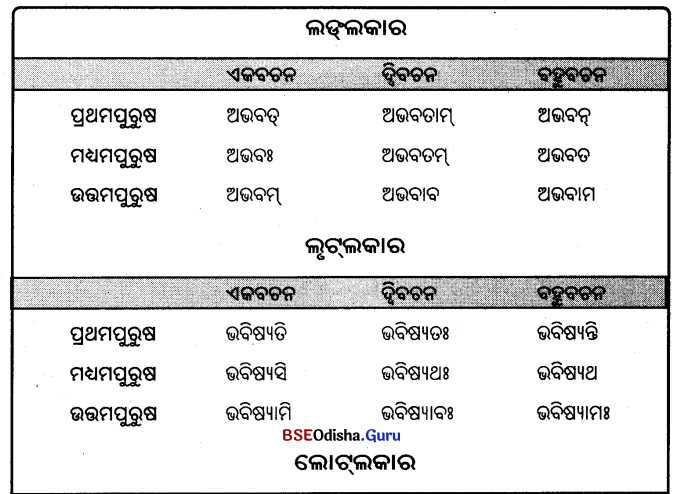
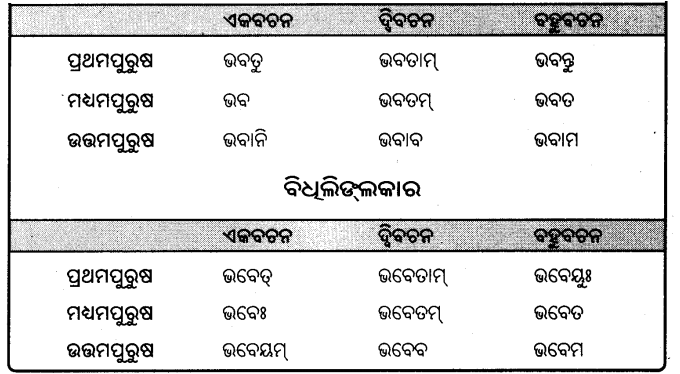
ଅନୁ-ଭୂ (ଅନୁଭବ କରିବା) ସୁଖମ୍ ଅନୁଭବତି ।
Answer:
ସୁଖ ଅନୁଭବ କରୁଛି ।
ପରା-ଭୂ (ପରାଭବ ପାଇବା) ପାପାତ୍ ପରାଭବତି ।
Answer:
ପାପରୁ ଦୁଃଖ ପାଉଛି ।
ପ୍ର-ଭୂ (ଉତ୍ପତ୍ତି ବା ସାମର୍ଥ୍ୟ ଅର୍ଥରେ) ଅମରକଣ୍ଟକାତ୍ ମହାନଦୀ ପ୍ରଭବତି ।
Answer:
ଅମରକଣ୍ଟକରୁ ମହାନଦୀ ବାହାରିଛି ।
ରାମଃ ଅସୁରେଷୁ ପ୍ରଭବତି ।
Answer:
ରାମ ଅସୁରଙ୍କୁ ନିପାତପାଇଁ ସମର୍ଥ ।
ସମ୍ – ଭୂ (ସମ୍ଭବ ହେବା ବା ଜାତହେବା) ସମ୍ଭବାମି ଯୁଗେ ଯୁଗେ ।
Answer:
ଯୁଗେ ଯୁଗେ ଜନ୍ମନିଏ ।
ପଠ୍ ଧାତୁ (ପଢ଼ିବା):
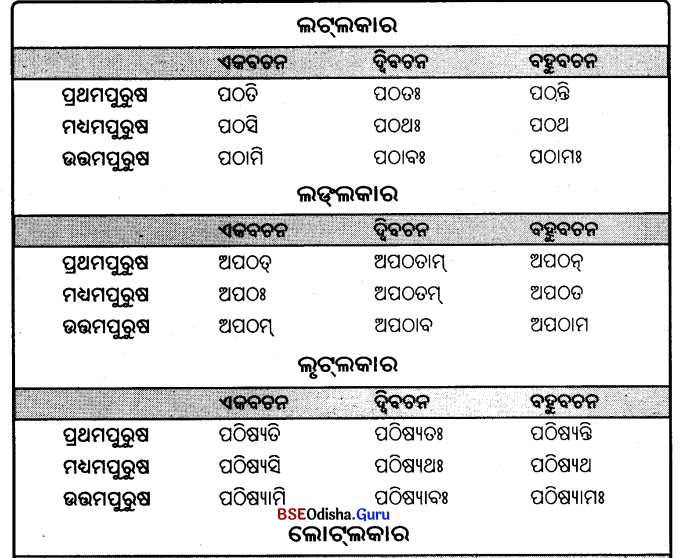
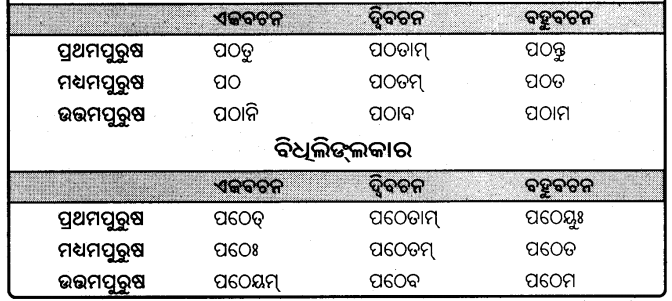
ନିମ୍ନଲିଖ୍ ଧାତୁଗୁଡ଼ିକର ରୂପ ‘ପଠ୍’ ଧାତୁ ପରି ହୋଇଥାଏ । ନିଜ୍ (ନିନ୍ଦା କରିବା), ବଦ୍ (କହିବା), କୂଜ୍ (କୂଜନ କରିବା), କ୍ରନ୍ଦ୍ (କାନ୍ଦିବା), କ୍ରୀଡ଼୍ (ଖେଳିବା), ଖାଦ୍ (ଖାଇବା), ଗର୍ଭ (ଗର୍ଜନ କରିବା), ଚର୍ଜ୍ (ଚୋବାଇବା) ଜ୍ବଳ୍ (ଜଳିବା), ନନ୍ଦ୍ (ଖୁସିହେବା), ବ୍ରଜ୍ (ଯିବା), ଚର୍ (ବୁଲିବା, ଚରିବା), ପତ୍ (ପଡ଼ିବା), ଫଳ୍ (ଫଳିବା), ଭ୍ରମ୍ (ବୁଲିବା), ଫୁଲ୍ଲ, (ବିକଶିତ ହେବା), ଳପ୍ (କହିବା), ଲୁଣ୍ଠ (ଚୋରିକରିବା), ହସ୍ (ହସିବା), ଖନ୍ (ଖୋଳିବା), ଜୀବ୍ (ବଞ୍ଚିବା), ରକ୍ଷ୍ (ରକ୍ଷାକରିବା), ମୂର୍ଚ୍ଛା (ମୂର୍ତ୍ତିତ ହେବା) …. ଇତ୍ୟାଦି ।
ସ୍ଥା (ଅବସ୍ଥାନେ, ରହିବା ଅର୍ଥରେ):
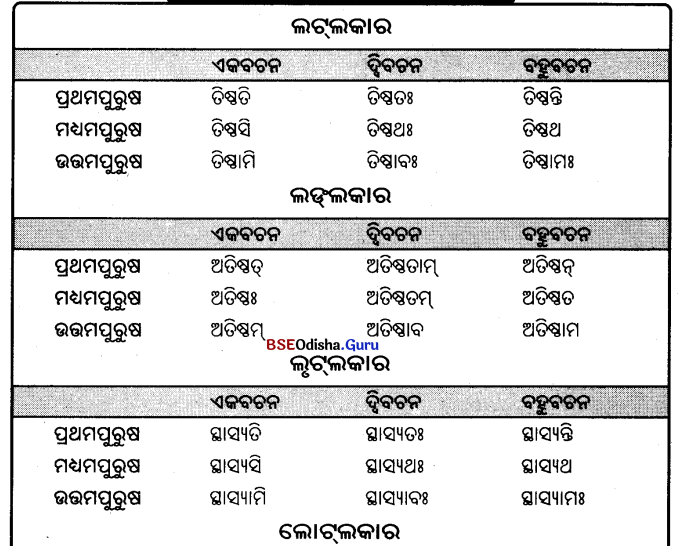
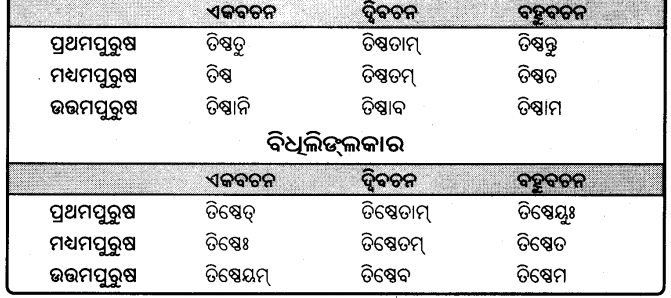
ଅଧ୍ – ସ୍ଥା (ରହିବା ଅର୍ଥରେ) – ଶିବ କୈଳାସମ୍ ଅଧୃତିଷ୍ଠତି ।
ଅବ -ସ୍ଥା (ଧୈର୍ଯ୍ୟରସହ ରହିବା)-ଅବତିଷ୍ଠତେ (ଆତ୍ମନେପଦୀ)
Answer:
ଶିବ କୈଳାସରେ ରୁହନ୍ତି ।
ଆ – ସ୍ଥା (ଆଶ୍ରୟ କରିବା) – ସଂଯମେ ଯତ୍ନମ୍ ଆତିକ୍ଷେତ୍ର ।
ଉଦ୍ – ସ୍ଥା (ଉତ୍ଥାନ/ଜାଗରଣ ଅର୍ଥରେ) -ଉତ୍ତିଷ୍ଠତ, ଜାଗ୍ରତ ।
Answer:
ସଂଯମରେ ଯତ୍ନ ଆଶ୍ରୟ କରିବା ଉଚିତ ।

ସମ୍ – ସ୍ଥା (ସ୍ଥିର ରହିବା ଅର୍ଥରେ ) – ଡଃ ସ୍ବସ୍ଥାନଂ ସଂତିଷ୍ଠତେ ।
Answer:
ସେ ନିଜେ ସ୍ଥାନରେ ସ୍ଥିର ଅଟନ୍ତି ।
ପା (ପିଇବା ଅର୍ଥରେ):
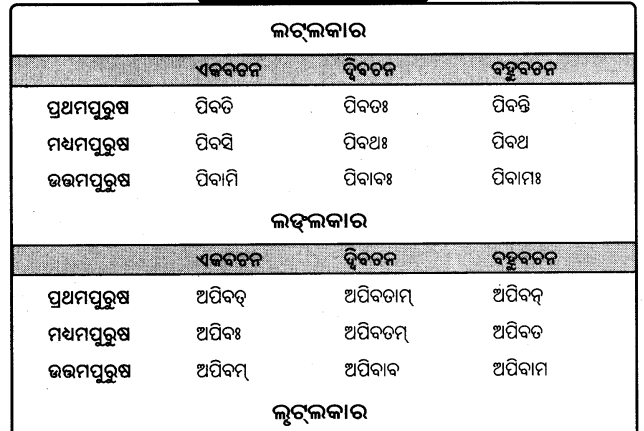

ଗମ୍ (ଯିବା):
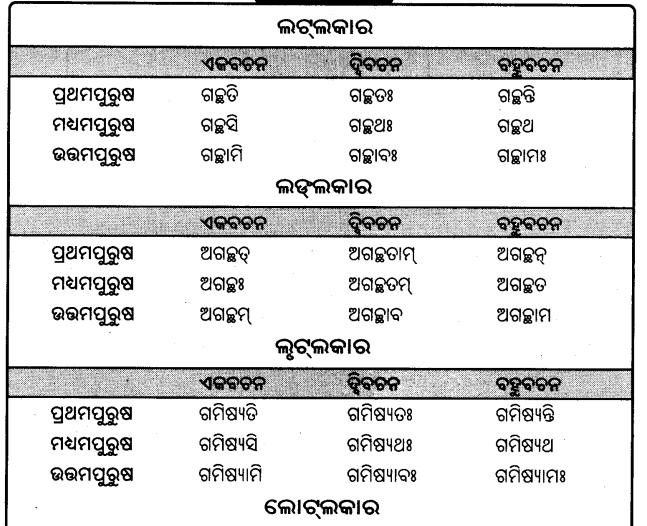
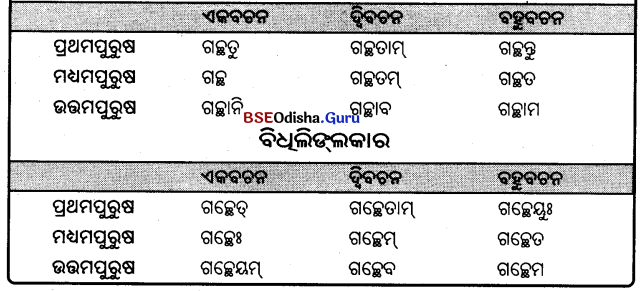
ଅଧ୍ – ଗମ୍ (ପ୍ରାପ୍ତି ବା ଜ୍ଞାନଅର୍ଥରେ) : ଡଃ ଶାନ୍ତିମ୍ ଅଧଗଚ୍ଛତି ।
Answer:
ସେ ଶାନ୍ତିରେ ଜ୍ଞାନପ୍ରାପ୍ତି କରୁଛି ।
ଅନୁ -ଗମ୍ (ଅନୁଗମନ କରିବା) : ପୁତ୍ର ମାତରମ୍ ଅନୁଗଚ୍ଛତି ।
Answer:
ପୁଅ ମାଆଙ୍କ ପଛରେ ଯାଉଛି ।
ଅବ – ଗମ୍ (ଜ୍ଞାନେ । ବୁଝିବା ଅର୍ଥରେ) : ସର୍ବେ ଧର୍ମସ୍ୟ ରହସ୍ୟମ୍ ଅବଗଛନ୍ତୁ ।
Answer:
ସମସ୍ତେ ଧର୍ମର ରହସ୍ୟ ବୁଝନ୍ତୁ ।
ଆ- ଗମ୍ (ଆସିବା ଅର୍ଥରେ) : ଛାତ୍ରୀ ବିଦ୍ୟାଳୟାତ୍ ଆଗଚ୍ଛତି । ଗୃହାତ୍ ବିଦ୍ୟାଳୟମ୍ ଆଗଚ୍ଛତି ।
Answer:
ଛାତ୍ର ବିଦ୍ୟାଳୟରୁ ଆସୁଛି । ଘରୁ ବିଦ୍ୟାଳୟକୁ ଆସୁଛି ।

ପ୍ରତି + ଉଦ୍ – ଗମ୍ (ପାଛୋଟି ଆଣିବା) : ପ୍ରତ୍ଯୁଦ୍ଗଚ୍ଛତି ମାନ୍ୟାନ୍ ।
Answer:
ମାନ୍ୟଲୋକଙ୍କୁ ପାଛୋଟି ଆଣୁଛି ।
ସମ୍ – ଗମ୍ (ମିଳିତ ହେବା) : ସାଧୁ ସାଧୂନ୍ ସଂଗଚ୍ଛତି ।
Answer:
ସାଧୁ, ସାଧୁ ସାଙ୍ଗରେ ମିଳିତ ହୁଏ । ତ୍ବ ସଂଗଚ୍ଛତେ ।
ସମ୍ – ଗମ୍ ( ସଙ୍ଗ ହେବା ଅର୍ଥରେ-ଆତ୍ମନେପଦୀ) : ଇଦଂ କାର୍ଯ୍ୟନଂ ତ୍ରୟଂ ସଂଗଚ୍ଛତେ ।
Answer:
ଏହି କାମ ତୁମକୁ ସଙ୍ଗତ ।
ନୀ (ନେବା):
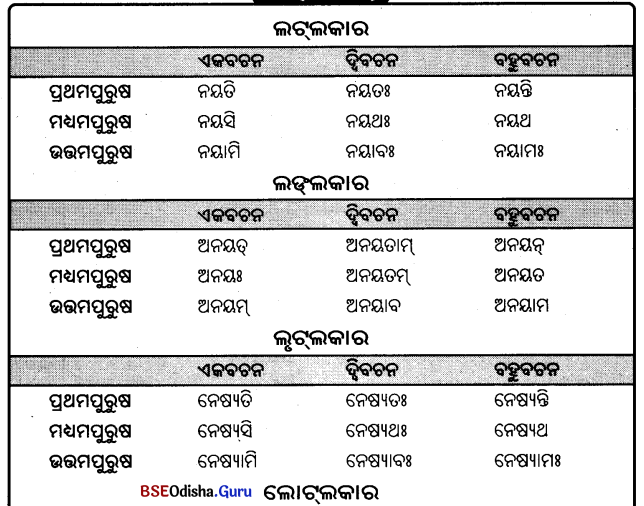
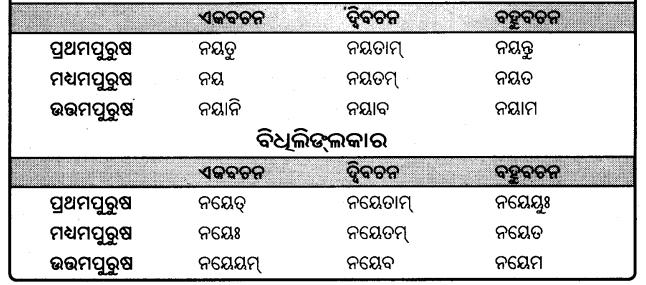
ଆ-ନୀ (ଆଣିବା ଅର୍ଥରେ): ହେ ଫଳେ ଆନୟତୁ । (ଦୁଇଟି ଫଳ ଆଣନ୍ତୁ) । ବି-ନୀ (ବିନୀତ କରିବା/ପ୍ରାର୍ଥନା-ପୂର୍ବକ ଜଣାଇବା / ଶୃଙ୍ଖଳିତ କରିବା): ଲଲକାରରେ ବ୍ୟନୟତ୍, ବ୍ୟନୟତାମ୍, ବ୍ୟନୟନ୍ ଇତ୍ୟାଦି ହେବ : ସର୍ବା ପ୍ରଜା ରାଜ୍ଞ ପୁନଃ ବ୍ୟନୟନ୍ । (ସମସ୍ତ ପ୍ରଜା ରାଜାଙ୍କ ଆଗରେ ନମ୍ର ହେଲେ) ।
ଦୃଶ୍ (ଦେଖିବା):
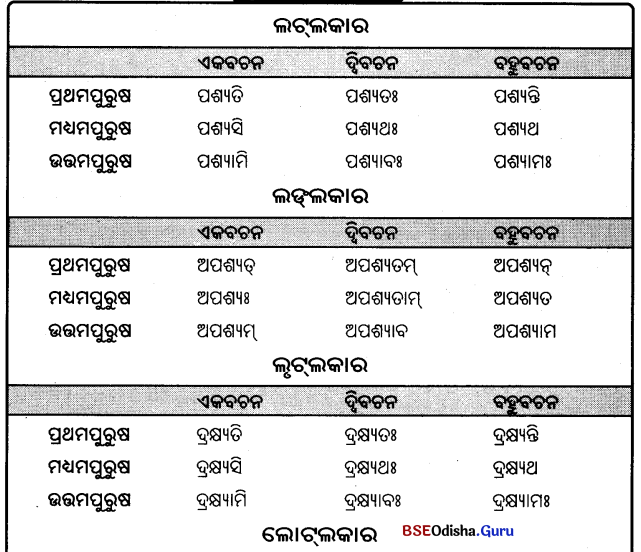
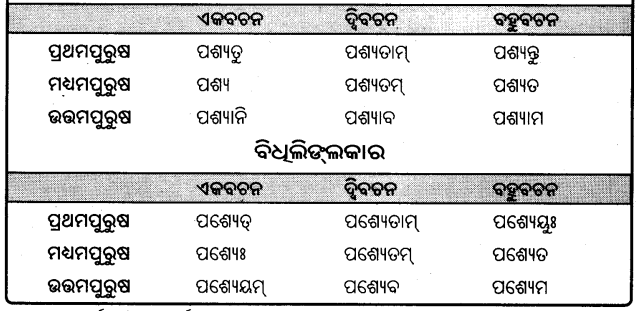
ଦୃଶ୍ ମଧ୍ଯ ଜ୍ଞାନାର୍ଥକ / ବୋଧାର୍ଥକ ଧାତୁ; ଯଥା-
(କ) ଗାଦଃ ପଶ୍ୟନ୍ତ ଗନ୍ଧନ ।
Answer:
ଗୋରୁମାନେ ଗନ୍ଧରୁ ଜାଣିପାରନ୍ତି ।
(ଖ) ପଶ୍ୟ, କୀଦୃଶଂ ବୀଣା ନଦତି ।
Answer:
ଦେଖ, କିପରି ବୀଣା ବାଜୁଛି ।
କେତେକ ଧାତୁର ଶିଷ୍ଟ ପ୍ରୟୋଗ
ସେହିପରି ‘ଅଟ୍’ ଧାତୁ (ଭ୍ରମଣେ) : କୃଷ୍ଠ ଅଟତି କୁଞ୍ଜବନେ ।
Answer:
କୃଷ୍ଣ କୁଞ୍ଜବନରେ ବୁଲୁଛନ୍ତି ।
ଅର୍କ୍ (ପୂଜାକରିବା) : ଛାତ୍ରା ଗଣେଶମ୍ ଅର୍ଜନ୍ତି ।
Answer:
ଛାତ୍ରମାନେ ଗଣେଶ ପୂଜାକରୁଛନ୍ତି ।
ଅର୍କ୍ (ଅର୍ଜନେ) : ଧନମ୍ ଅର୍ଜନ୍ତି ବଣିଜଃ ।
Answer:
ବେପାରୀ ଧନ ଇଚ୍ଛାକରନ୍ତି ।
ଅର୍ଦ୍ର (ମାଗିବା / ପୀଡ଼ାଦେବା) : ଚାତକଃ ଶରଦ୍ଘନଂ ନାତି ।
Answer:
ଚାତକ ଶରତକାଳର ବର୍ଷାକୁ ଇଚ୍ଛାକରନ୍ତି ।
ଅର୍ଥ (ଯୋଗ୍ୟ / ପୂଜନେ) : ତଂ ସଂସ୍କୃତଂ ପଠିତୁମ୍ ଅର୍ହସି ।
Answer:
ତୁମେ ସଂସ୍କୃତ ପଢ଼ିବାକୁ ସକ୍ଷମ ।
ଅବ୍ (ରକ୍ଷାକରିବା / ପ୍ରସନ୍ନକରିବା) : ମାମ୍ ଅବତୁ ।
Answer:
ମୋତେ ଖୁସିକରନ୍ତୁ ।

ତପ୍ (ତାପଦେବା) : ଗ୍ରୀଷ୍ମକାଳେ ସୂର୍ଯ୍ୟ ଦନ୍ଶ୍ ପ୍ରବଳଂ ତପତି ।
Answer:
ଗ୍ରୀଷ୍ମକାଳରେ ସୂର୍ଯ୍ୟ ପ୍ରବଳ ଉତ୍ତାପ ଦିଏ ।
(ଦଂଶନକରିବା) : ମଶକଃ ଦଶତି ।
Answer:
ମଶା କାମୁଡ଼ୁଛି ।
ସ୍ମ (ସ୍ମରଣକରିବା) : ଶିଶୁ ମାତରଂ ସ୍ମରତି ।
Answer:
ଶଶୁ ମାଆକୁ ମନେପକାଉଛି ।
ତୃ (ପାରହେବା) : ଜନଃ ନୌକୟା ନଦୀ ତରନ୍ତି ।
Answer:
ଲୋକମାନେ ନୌକାରେ ନଦୀପାର ହୁଅନ୍ତି ।
ଜ (ଜୟକରିବା) : ବୁଦ୍ଧିମାନ୍ ସର୍ବତ୍ର ଜୟତି ।
Answer:
ବୁଦ୍ଧିଆଲୋକ ସବୁଠି ଜୟକରେ ।
ଦହ୍ (ଦହନକରିବା) : ରୌଦ୍ରତାପଃ ଅଙ୍ଗାନି ଦହତି ।
Answer:
ଖରା ଦେହ ଜାଳିଦିଏ ।
ପଚ୍ (ପାକ ହେବା) : ଅନ୍ନ ପଚତି ।
Answer:
ଭାତ ରନ୍ଧାହେଉଛି ।
ଦା (ଦାନ ଦେବା) : ରାଜା ବିପ୍ରାୟ ଧନଂ ଦଦାତି ।
Answer:
ରାଜା ବ୍ରାହ୍ମଣମାନଙ୍କୁ ଧନ ଦେଉଛନ୍ତି ।
ବହୁ (ବହନକରିବା / ବହିବା) : ପବନଃ ମନ୍ଦ ବହତି ।
Answer:
ପବନ ଧୀରେ ବହୁଛି ।
ବସ୍ (ବାସକରିବା) : ବାନରଃ ବୃକ୍ଷେ ବସତି ।
Answer:
ମାଙ୍କଡ଼ ଗଛରେ ବାସକରେ ।
କ୍ଷର୍ (ଝରିବା) : ମଧୁ କ୍ଷରନ୍ତି ସିନ୍ଧମଃ ।
Answer:
ସାଗରମାନେ ମହୁ କ୍ଷରିତ କରୁଛନ୍ତି ।
ଖେଳ୍ (ଖେଳିବା) : ବାଳକା ଗୁଞ୍ଜ୍ତି ।
Answer:
ବାଳକମାନେ ପଡ଼ିଆରେ ଖେଳୁଛନ୍ତି ।
ଗୁଞ୍ଜ (ଗୁଞ୍ଜନକରିବା) : ଭ୍ରମଶଃ ଅୟଂ ଗୁଞ୍ଜତି ।
Answer:
ଏହି ଭ୍ରମରଟି ଗୁଣୁଗୁଣୁ ହେଉଛି ।
ଚଳ୍ (ଯିବା / କମ୍ପିବା) : ବତ୍ସ । ଉଦ୍ଦିଷ୍ଠ, ଗୃହଂ ଚଳ ।
Answer:
ପୁଅ । ଉଠ, ଘରକୁ ଚାଲ ।

ନଟ୍ (ନୃତ୍ୟକରିବା) : କେନ ସହ ନଟତି ନଟବରଃ ?
Answer:
କାହା ସହିତ ନଟବର ନାଚୁଛନ୍ତି ।
ନଦ୍ (ଶବ୍ଦ କରିବା) : ବସନ୍ତେ ପକ୍ଷିଣ ନଦନ୍ତି ।
Answer:
ବସନ୍ତରେ ପକ୍ଷୀମାନେ ଶବ୍ଦ କରୁଛନ୍ତି ।
ମୀନ୍ (ବୁଜିହୋଇଯିବା / ନିମେଷ) : ଚକ୍ଷୁଃ ପବନେନ ମୀଳତି ।
Answer:
ପବନରେ ଆଖୁ ବୁଜିହୋଇ ଯାଉଛି ।
ରୁହ୍ (ଜନ୍ମିବା) : ତରୁ ଛିନ୍ନାଽପି ରୋହତି ।
Answer:
ଗଚ୍ଛକାଟିଲେ ମଧ୍ୟ କଅଁଳେ ।
ଆ – ରୁହ୍ (ଆରୋହଣ କରିବା) : ଡଃ କଷ୍ଟେନ ଉଷ୍ଟ୍ରମ୍ ଆରୋହତି ।
Answer:
ସେ କଷ୍ଟରେ ଓଟ ଚଢ଼ୁଛି ।
ପ୍ର – ରୁହ୍ (ଜନ୍ମିବା) : ପର୍ବତେ ନଳିନୀ ନ ପ୍ରରୋହତି ।
Answer:
ପର୍ବତରେ ପଦ୍ମ ଜନ୍ମି ନ ଥାଏ ।
ଲଗ୍ – (ଲାଗିବା) : ଓଷେ ଅଧରଃ ଲଗତି ।
Answer:
ଓଠରେ ଅଧର ଲାଗିଥାଏ ।
ସ୍ପଳ୍ – (ଖସିପଡ଼ିବା) : ସ୍ଖଳନ୍ତି ଚରଣ୍ୟ
Answer:
ମାଟିରେ ଗୋଡ଼ ଖସିଯାଏ ।
ସୁ – (ସ୍ରବିବା) : ନିମ୍ବାତ୍ ମଧୁ ନ ସ୍ରବେତ୍ ।
Answer:
ନିମ୍ବଗଛରୁ ମହୁ ବାହାରିପାରେ ନାହିଁ ।
ସ୍ଵନ୍ – (ଶବ୍ଦକରିବା) : ସୁନନ୍ତ ବଂଶା ପବନେନ ପୂର୍ଣ୍ଣା ।
Answer:
ପବନ ପୂର୍ଣ୍ଣହୋଇ ବାଉଁଶ ଶବ୍ଦ କରୁଛନ୍ତି ।
(ଆତ୍ମନେପଦୀ):
ଲଭ୍ (ଲାଭକରିବା):
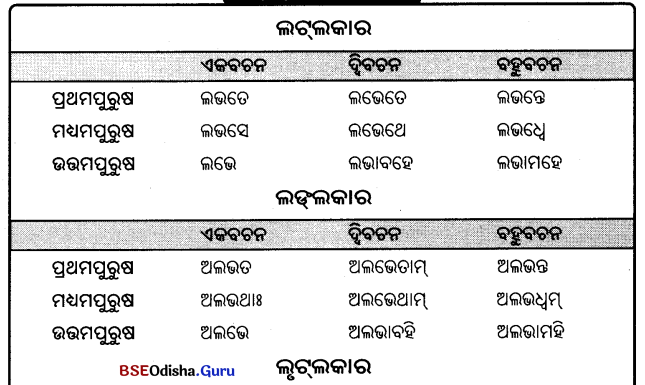
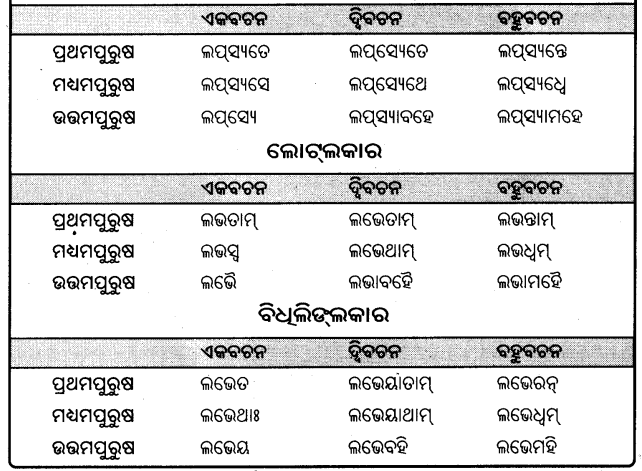
ଆ + ଲଭ୍ – ଆଲଭତେ (ପାଇବା, ସ୍ପର୍ଶକରିବା, ହିଂସାକରିବା) : ଯତ୍ନ କୃତେଽପି ନାଲଭତ ।
Answer:
ଯନ୍ କଲେ ମଧ୍ୟ ମିଳିଲା ନାହିଁ ।
ଉପ + ଆ – ଲଭ୍-ଉପାଲଭତେ (ଭର୍ସନାକରିବା) ସ୍ଵଯୌବନମ୍ ଉପାଲଭଗ୍ନ, ସଖ୍ ! ନ ମାମ୍ ।
Answer:
ସଖ୍ ନିଜ ଯୌବନକୁ ଭତ୍ସନା କର, ମୋତେ ନୁହେଁ ।

ଉପ + ଲଭ୍ – ଉପଲଭତେ (ପାଇବା, ଅନୁଭବକରିବା, ଜାଣିବା) : ସର୍ବେ କର୍ମଫଳମ୍ ଉପଲଭନ୍ତେ ।
Answwer:
ସମସ୍ତେ କର୍ମଫଳ ଲାଭକରନ୍ତି ।
ବି + ପ୍ର – ଲଭ୍ – ବିପ୍ରଲଭତେ (ପ୍ରତାରଣା କରିବା) : କୋକିଳ କାକଂ ବିପ୍ରଲଭତେ ।
Answer:
କୋଇଲି କାଉକୁ ପ୍ରତାରଣା କରେ ।
ସେବ୍ (ସେବାକରିବା / ଉପଭୋଗ କରିବା / ଆଶ୍ରୟ କରିବା):
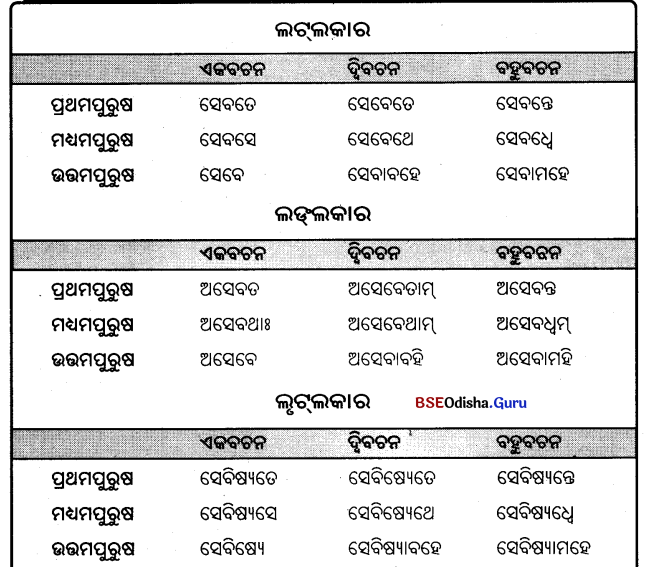
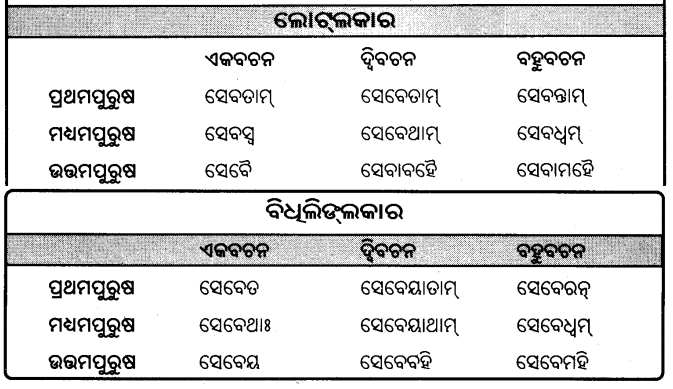
ନିମ୍ନଲିଖତ ଧାତୁଗୁଡ଼ିକର ରୂପ ‘ସେବ୍’ ଧାତୁ ପରି ହେବ-ବିଭିନ୍ନ ଧାତୁର କେତେକ ଶିଷ୍ଟ ପ୍ରୟୋଗ ଦୟ (ଦୟାକରିବା) : ଦରିଦ୍ର୍ୟ ଦୟସ୍ତ । ଦରିଦ୍ରକୁ ଦୟା କର ।
ଘଟ (ଘଟିବା) : ଦୁର୍ଘଟନା ଅଘଟତ ।
Answer:
ଦୁର୍ଘଟଣା ଘଟିଲା ।
ବାଧ୍ (ବାଧାଦେବା) : ଧାନ୍ୟଭ୍ୟ ମାଂ ବାଧ୍ୟସ୍ଵ ।
Answer:
ଧାନରୁ ଗାଈକୁ ବାରଣ କର ।
ଶିକ୍ଷ (ଶିଖ୍) : ଶିକ୍ଷେତ ବିଦ୍ୟାମ୍ ।
Answer:
ବିଦ୍ୟା ଶିକ୍ଷାକରିବା ଉଚିତ ।
ବନ୍ଦ୍ (ବନ୍ଦନାକରିବା) : ବନ୍ଦେ ମାତରମ୍ ।
Answer:
ମୁଁ ମାଆଙ୍କୁ ବନ୍ଦନାକରୁଛି ।
ଈକ୍ଷ (ଦେଖିବା) : ଈକ୍ଷତେ ଦୋଷାନ୍ ।
Answer:
ଦୋଷ ଦେଖୁଛି ।
ଶଙ୍କ୍ (ଆଶଙ୍କାକରିବା) : କଥମ୍ ଆଶଙ୍କସେ ?
Answer:
କାହିଁକି ଆଶଙ୍କାକରୁଛି ।
ଲମ୍ବ (ଲମ୍ବିବା) : ମାର୍ଗ ଲମ୍ବତେ ।
Answer:
ମାର୍ଗ ଲମ୍ବିଛି ।
ଡ୍ରପ୍ (ଲାଜକରିବା) : ନବବଧୂ ତ୍ରପଡେ ।
Answer:
ନୂଆବୋହୂ ଲାଜକରୁଛି ।
ଡ଼ର୍ (ତରତର ହେବା) : ତୁରନ୍ତେ ଛାତ୍ରା ।
Answer:
ଛାତ୍ରମାନେ ତରତର ହେଉଛନ୍ତି ।

ଭିକ୍ଷୁ (ଭିକ୍ଷାକରିବା) : ବହିଃ ବସୁଧାଂ ଭିକ୍ଷତେ ।
Answer:
ବଳି ବସୁଧା ଭିକ୍ଷାକଲେ ।
ଲକ୍ଷ୍ (ଲକ୍ଷ୍ୟକରିବା) : କୁତ୍ର ଲକ୍ଷ୍ୟତେ ।
Answer:
କୁଆଡ଼େ ଲକ୍ଷ୍ୟ ଦେଉଛ ।
ସହ (ସହିବା) : ଡଃ ଦୁଃଖାନି ସହତେ ।
Answer:
ସେ ଦୁଃଖ ସହୁଛି ।
ଗାହ (ଗାଧୋଇବା) : ଗଙ୍ଗାୟାଂ ଗାହସ୍ଵ ।
Answer:
ଗଙ୍ଗାରେ ସ୍ନାନ କର ।
ଭାଷ (କହିବା) : ଡଃ ସାଧୁ ଭାଷତେ ।
Answer:
ସେ ଠିକ୍ କହୁଛି ।
କମ୍ (କମ୍ପିବା) : ବୃଦ୍ଧା କମ୍ପତେ ।
Answer:
ବୁଢ଼ା ଥରୁଛି ।
ଯତ୍ (ଯତ୍ନକରିବା) : ପଠନେ ଯତେତ ।
Answer:
ପଢ଼ାରେ ଯତ୍ନ କରିବା ଉଚିତ ।
ଚେଷ୍ଟ୍ (ଚେଷ୍ଟାକରିବା) : ବାରଂ ବାରଂ ଚେଷ୍ଟସ୍ବ ।
Answer:
ବାରମ୍ବାର ଚେଷ୍ଟା କର ।
ଅୟ (ଯିବା), ପରା – ଅୟ (ପଳାଇବା) : ମୂଷିକା ପଳାୟନ୍ତେ ।
Answer:
ମୂଷାମାନେ ପଳାୟନ କରୁଛନ୍ତି ।
ଈକ୍ଷ (ଦେଖିବା) ଅପ – ଈକ୍ଷ୍ (ଅପେକ୍ଷାକରିବା), ଉପ-ଈଷ୍ (ଅବଜ୍ଞାକରିବା), ନିର୍-ଈକ୍ଷ୍ (ନିରୀକ୍ଷଣକରିବା), ପରି-ଈଷ୍ (ପରୀକ୍ଷାକରିବା), ପ୍ରତି-ଈଷ୍ (ପ୍ରତୀକ୍ଷାକରିବା), ପ୍ର- ଈକ୍ଷ୍ (ଭଲ ଭାବରେ ଦେଖୁ), ସମ୍-ଈଷ୍ (ସମୀକ୍ଷାକରିବା), କମ୍-(କାମନାକରିବା) କାମୟତେ,
କ୍ଷମ୍- ( ସମର୍ଥ ହେବା | କ୍ଷମାକରିବା) : ତାଂ କଃ କ୍ଷମେତ ? କ୍ଷମସ୍ତ ପରମେଶ୍ଵର ।
Answer:
ତୁମକୁ କିଏ କ୍ଷମାକରିବ । ହେ ପରମେଶ୍ବର କ୍ଷମା କର ।
ଆ – ରଭ୍ (ଆରମ୍ଭକରିବା) : ଡଃ କାର୍ଯ୍ୟମ୍ ଆରଭତେ ।
Answer:
ସେ କାମ ଆରମ୍ଭକରୁଛି ।
କାଶ୍ (ଶୋଭା ପାଇବା) ଆକାଶେ କାଶତେ ଚନ୍ଦ୍ର
Answer:
ଆକାଶରେ ଚନ୍ଦ୍ର ଶୋଭା ପାଉଛି ।
କୃପ (ଯୋଗ୍ୟ ହେବା | ପରିଣମନ ହେବା) : ଭକ୍ତି ଜ୍ଞାନୀୟ କଳ୍ପତେ ।
Answer:
ଭକ୍ତିରୁ ଜ୍ଞାନ ଜାତ ହୁଏ ।
ରୁଚ୍ (ରୁଚିବା) : ଶିଶବେ କ୍ରୀଡ଼ା ରୋଚତେ ।
Answer:
ପିଲାଟିକୁ ଖେଳ ଭଲ ଲାଗେ ।

ବୃତ୍ (ରହିବା ଅର୍ଥରେ) : ତତ୍ର ହିମାଳୟ ବର୍ଷତେ ।
Answer:
ସେଠାରେ ହିମାଳୟ ଅଛି ।
ବେପ୍ (କମ୍ପିବା) : ବେପତେ ମେ ଶରୀରମ୍ ।
Answer:
ମୋ ଦେହ ଥରୁଛି ।
ଶୁଭ୍ (ଶୋଭାପାଇବା) : ଉଦ୍ୟାନେ ପୁଷ୍ପାଣି ଶୋଭନ୍ତେ ।
Answer:
ବଗିଚାରେ ଫୁଲ ଶୋଭା ପାଉଛି ।
କେତେକ ଉଭୟପଦୀ ଧାତୁ :
ଧାବ୍ (ଦୌଡ଼ିବା ) – ଧାବତି / ଧାବତେ । ପବ୍ (ରାନ୍ଧିବା) ପଚତି / ପଚତେ । ଭଜ୍ (ସେବାକରିବା ଓ ଲାଭକରିବା ) ଭଜତି (ସେବା) ଓ ଭଜତେ (ଲାଭକରିବା) (ପାଇବା) । ଯାଚ୍ (ମାଗିବା) ଯାଚତି / ଯାଚତେ । ହେ (ସ୍ପର୍ଧାରେ ଆହ୍ଵାନକରିବା) – ଦ୍ବୟତି / ଦ୍ବୟତେ : ଆନ୍ଧ୍ରୟତେ ମଲ୍ଲୀ ମଲାୟ ।
Answer:
ଯୋଦ୍ଧା ଯୋଦ୍ଧାକୁ ଆହ୍ଵାନକରୁଛି ।
ରାଜ୍ (ଶୋଭାପାଇବା) ରାଜତି / ରାଜତେ : ରାଜ୍ଞ କୀର୍ତ୍ତି ରାଜେତ, ଆକାଶେ ସୂର୍ଯ୍ୟ ରାଜତି / ରାଜତେ।
ରାଜାଙ୍କ ଯଶ ଶୋଭା ପାଉଛି । ଆକାଶରେ ସୂର୍ଯ୍ୟ ଶୋଭା ପାଉଛନ୍ତି ।
(ଧାରଣକରିବା) – ଧରତି/ ଧରତେ : ଧରତେ / ଧରତି ଖଳୁ ବିପଦଃ । ବପ୍ (ବୁଣିବା / ମୁଣ୍ଡନ କରିବା)- ବପତି/ ବପତେ ।
ଯାଦୃଶଂ ବପତେ ବୀଜଂ ତାଦୃଶଂ ଲଭତେ ଫଳମ୍ । ବପତି କୃଷକଃ ବୀଜମ୍, ବପତି ମସ୍ତକଂ ନାପିତଃ ।
Answer:
ଯେମିତି ମଞ୍ଜି ବୁଣିବ ସେମିତି ଫଳ ପାଇବ । କୃଷକ ମଞ୍ଜି ବୁଣୁଛି, ବାରିକ ମୁଣ୍ଡ ଲଣ୍ଡାକରୁଛି ।
ଅଭ୍ୟ।ସଃ:
୧। ଯଥାନିର୍ଦେଶଂ ଧାତୁରୂପେଣ ଶୂନ୍ୟସ୍ଥାନଂ ପୂରୟତ ।
ଯଥା – ସର୍ବେ ଭଦ୍ରାଣି ପଶ୍ୟନ୍ତୁ (ଦୃଶ୍ – ଲୋଟ୍)
(କ) ଅହଂ ଧନମ୍ _________ (ଲଭ୍ – ଲ) ।
Answer:
ଅଲଭେ
(ଖ) ଭିକ୍ଷୁକଃ ଭିକ୍ଷା __________ (ଯାଚ୍ – ଲଟ୍) ।
Answer:
ଯାଚତେ
(ଗ) ତଂ ସାଧୁ ___________ (ଭୂ – ଲୁଟ୍) ।
Answer:
ଭବିଷ୍ଯସି
(ଘ) ବାଳକ ପାଠ ___________ (ପଠ୍-ବିଧ୍ଲିଙ୍ଗ୍) ।
Answer:
ପଠେତ୍
(ଙ) ସର୍ବେ ଗ୍ରାମେ __________ (ସ୍ଥା-ଲୋଟ୍) ।
Answer:
ତିଷ୍ଠନ୍ତୁ
(ଚ) ଆବାଂ ଶୀତଳଂ ଜଳଂ __________ (ପା-ଲଟ୍ ) ।
Answer:
ପିବାବ
(ଛ) ଛାତ୍ରୀ ବିଦ୍ୟାଳୟଂ ____________ (ଗମ୍-ଲୁଟ୍) ।
Answer:
ଗମିଷ୍ଯତି
(ଜ) ପିତା ପୁତ୍ରାୟ ପୁସ୍ତକମ୍ ___________ (ନୀ – ଲ) ।
Answer:
ଅନୟତ୍
(ଝ) ଯୁବାଂ ନାଟକଂ ___________ (ଦୃଶ୍ – ଲୁଟ୍) ।
Answer:
ଦ୍ରଷ୍ଯତଃ

(ଞ) ତଂ ____________ କୀଦୃଶଂ ବୀଣା ନଦତି (ଦୃଶ୍-ଲୋଟ୍) ।
Answer:
ପଶ୍ୟ
(ଟ) ଲକ୍ଷ୍ମୀ ଜଗନ୍ନାଥ ____________ (ସେବ୍ -ଇଟ୍) ।
Answer:
ସେବତେ
(ଠ) ପୂୟଂ ଧନଂ ____________ (ଲଭ୍ – ଲୁଟ) ।
Answer:
ଲମ୍ଵେ
୨। ନ’ ସ୍ତମ୍ଭସ୍ୟ କର୍ତ୍ତୃପଦଃ ସହ ‘ଖ’ ସ୍ତମ୍ଭସ୍ୟ କ୍ରିୟାପଦାନି ଯୋଜୟତ ।
| ‘କ’ |
‘ଖ’ |
| ଶିଷ୍ୟଃ |
ନୟେତମ୍ |
| ସର୍ବେ |
ତିଷ୍ଠନ୍ତୁ |
| ଆବାଂ |
ଦ୍ରକ୍ଷ୍ୟନ୍ତି |
| ତୃଷାର୍ତ୍ତଃ |
ପିବେତ୍ |
| ୟୁୟଂ |
ଅପଠତ୍ |
| ବୟଂ |
କୁଜନ୍ତି |
| ବାଳକୌ |
ଗମିକ୍ଷ୍ୟ।ବଃ |
| ଯୂବାଂ |
ଲଭେମହି |
| ଛାତ୍ର।ଃ |
ଗଚ୍ଛତୁ |
| ତୌ |
ପଶ୍ୟତାମ୍ |
| କୋକିଳାଃ |
ସେବେଧୁମ୍ |
| କୃଷକଃ |
ଭବିକ୍ଷ୍ୟତଃ |
Answer:
| ‘କ’ |
‘ଖ’ |
| ଶିଷ୍ୟଃ |
ଅପଠତ୍ |
| ସର୍ବେ |
ତିଷ୍ଠନ୍ତୁ |
| ଆବାଂ |
ଗମିକ୍ଷ୍ୟ।ବଃ |
| ତୃଷାର୍ତ୍ତଃ |
ପିବେତ୍ |
| ୟୁୟଂ |
ସେବେଧୁମ୍ |
| ବୟଂ |
ଲଭେମହି |
| ବାଳକୌ |
ପଶ୍ୟତାମ୍ |
| ଯୂବାଂ |
ନୟେତମ୍ |
| ଛାତ୍ର।ଃ |
ଦ୍ରକ୍ଷ୍ୟନ୍ତି |
| ତୌ |
ଭବିକ୍ଷ୍ୟତଃ |
| କୋକିଳାଃ |
କୁଜନ୍ତି |
| କୃଷକଃ |
ଗଚ୍ଛତୁ |
୩। ସଂସ୍କୃତେନ ଅନୁବାଦଃ କାର୍ଯ୍ୟ
(କ) ବର୍ତ୍ତମାନ ଛାତ୍ରମାନେ ସଂସ୍କୃତ ପଢୁଛନ୍ତି ।
Answer:
ଅଧୁନା ଛାତ୍ରା ସଂସ୍କୃତଂ ପଠନ୍ତି ।
(ଖ) ସେମାନେ ଏକାଠି ଛାତ୍ରାବାସରେ ରହୁଛନ୍ତି ।
Answer:
ତେ ଏକତ୍ର ଛାତ୍ରାବାସେ ତିଷ୍ଠନ୍ତି ।
(ଗ) ପିଲାମାନେ ସୈନକ ହେବେ ।
Answer:
ବାଳକା ସୈନିକା ଭବିଷ୍ୟନ୍ତ ।
(ଘ) ବୁଢ଼ାମାନେ ଦୁଧ ପିଇବା ଉଚିତ ।
Answer:
ବୃଦ୍ଧା ଦୁଗ୍ଧ ପିବେୟଃ ।
(ଙ) ଆପଣମାନେ ଦରିଦ୍ରମାନଙ୍କୁ ଦୟାକରନ୍ତୁ ।
Answer:
ଭବନ୍ତଃ ଦରିଦ୍ରାନ୍ ଦୟନ୍ତାମ୍ ।
(ଚ) କୃଷକ ଗାଈ ଦୁଇଟି ହାଟକୁ ନେଇଥିଲା ।
Answer:
କୃଷକଃ ଗାନୌ ହଟ୍ଟମ୍ ଅନୟତ୍ ।
(ଛ) ପଣ୍ଡିତମାନେ ଦେଶର ସବୁଆଡ଼େ ସମ୍ମାନ ପାଇବେ
Answer:
ପଣ୍ଡିତଃ ଦେଶଂ ସର୍ବତଃ ସମ୍ମାନଂ ଲବ୍ସ୍ୟନ୍ତେ
(ଜ) ଭାରତୀୟମାନେ ବିଦେଶ ଗଲେ ।
Answer:
ଭାରତୀୟାଂ ବିଦେଶମ୍ ଅଗଚ୍ଛନ୍ ।

(ଝ) ଏହି ଫଳରୁ ରସ ଝରିପଡ଼ୁଛି ।
Answer:
ଅସ୍ମାତ୍ ଫଳାତ୍ ରଧଃ ନିଃସରତି ।
(ଞ) ଝିଅମାନେ ଲାଜକରନ୍ତି ।
Answer:
ବାଳା ଲଜନ୍ତେ ।
(ଟ) ଶିଶୁ ମାଆ ଆଡ଼କୁ ଧାଉଁଅଛି ।
Answer:
ଶିଶୁ ମାତରଂ ପ୍ରତି ଧାବତି ।
(ଠ) ଆମ ଦେଶରେ ହିମାଳୟ ଶୋଭାପାଉଛି ।
Answer:
ଅସ୍ଵାକଂ ଦେଶେ ହିମାଳୟ ଶୋଭାତେ ।
(ଡ) ମୋତେ କାହିଁକି ଅଯଥାରେ ଗାଳିଦେଉଛ ?
Answer:
ମାଂ କଣଂ ବୃଥା ତିରସ୍କରୋଷି ?
(ଢ) ଶରତ୍କାଳର ଆକାଶରେ ଚନ୍ଦ୍ର ଶୋଭାପାଏ ।
Answer:
ଶରଦଃ ଆକାଶେ ଚନ୍ଦ୍ର ଭାତି ।
(ଣ) ମୃଗମାନେ ଏଣେତେଣେ ପଳାଇଲେ ।
Answer:
ମୃଗ ଇତସ୍ତତଃ ଅପଳାୟନ୍ତ ।
(ଖ) ଅଦାଦି (ପରସ୍ପିପଦୀ):
ହନ୍ ଧାତୁ (ହତ୍ୟାକରିବା / ମାରିବା ):
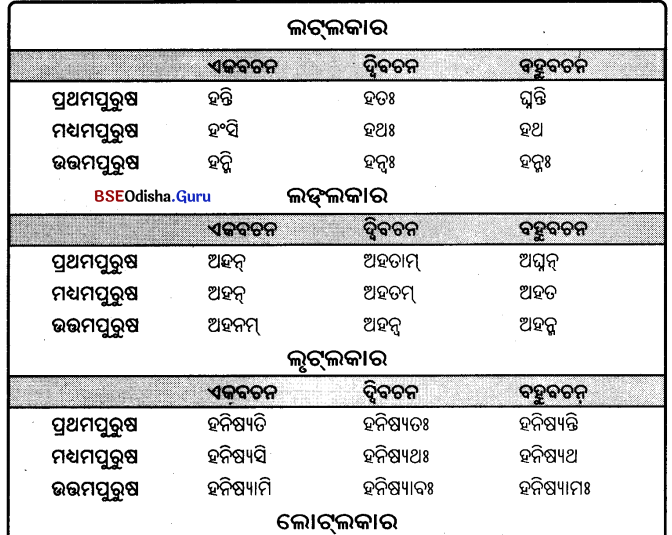
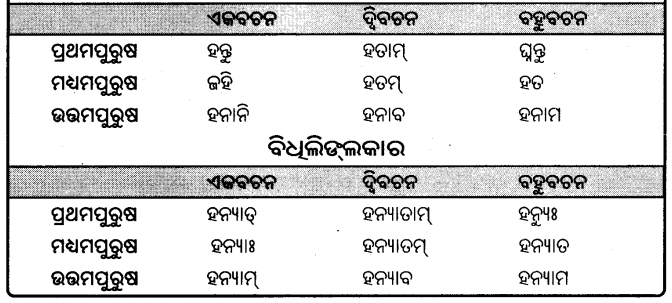
ଅପ-ହନ୍ (ଦୂରକରିବା) : ଦେବଗଣା ମମ ଦୁରିତମ୍ ଅପଢ଼ନ୍ତୁ ।
Answer:
ଦେବତାମାନେ ମୋ ଦୁଃଖ ଦୂରକରନ୍ତୁ ।
ଅଭି-ହନ୍ (ଆଘାତକରିବା) : ତେ ନ ଅଭିଘ୍ନନ୍ତୁ ।
Answer:
ସେମାନେ ଆଘାତ ନ କରନ୍ତୁ ।

ଆ-ହନ୍ (ଆଘାତଦେବା, ପ୍ରହାରକରିବା) : ବ୍ୟାଧଃ ମୃଗମ୍ ଆହନ୍ତି ।
Answer:
ଶିକାରୀ ହରିଣକୁ ଆଘାତ ଦିଏ ।
ନି-ହନ୍ (ନିହତକରିବା) : ତେ ତବ ବିଘ୍ନ ନିଘ୍ନନ୍ତୁ ।
Answer:
ସେମାନେ ତୁମ ବିଘ୍ନ ଦୂରକରନ୍ତୁ ।
ଅସ୍ (ସତ୍ତାୟାମ୍) (ରହିବା, ହେବା, ଥୁବା):
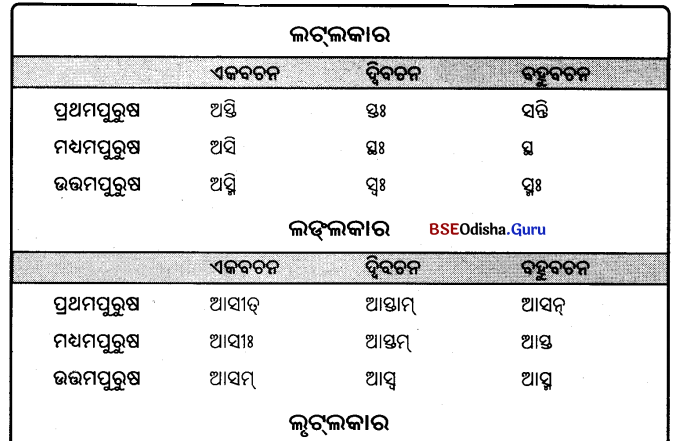
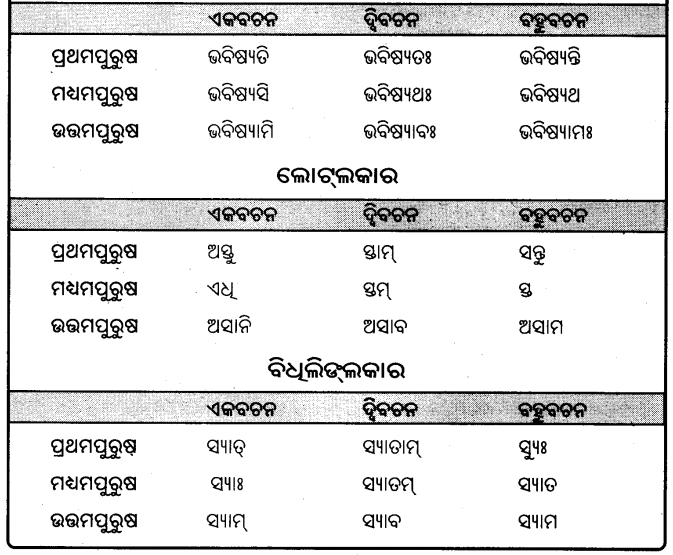
ଅଭ୍ୟ।ସଃ:
୧। ଯଥାନିର୍ଦ୍ଦେଶଂ ଧାତୁରୂପେଣ ଶୂନ୍ୟସ୍ଥାନଂ ପୂରୟତ ।
ଯଥା – ଶିକ୍ଷକ ବିଦ୍ୟାଳୟେ ଆସୀତ । (ଅସ୍ – ଲଡ୍)
(କ) ଡଃ ଲଗୁଡ଼େନ ସର୍ପମ୍ _________। (ହନ୍ – ଲଡ୍)
Answer:
ଅହନ୍
(ଖ) __________ ପାଟଳୀପୁତ୍ର ନାମ ନଗରମ୍ । (ଅସ୍ – ଲଟ୍)
Answer:
ଅସ୍ତି
(ଗ) ମହାବାହୋ ! ଶତ୍ରୁନ୍ _________। (ଅସ୍ – ଲୋଟ୍)
Answer:
ଜହି
(ଘ) ତୃଂ ପଣ୍ଡିତଃ ____________ । (ଅସ୍ – ଲୋଟ୍)
Answer:
ଏସ୍
(ଙ) ବ୍ୟାଧୀ ବନେ ମୃଗାନ୍ _________ । (ହନ୍ – ଲଟ୍)
Answer:
ହନ୍ତି

(ଚ) ଚୌ ଛାତ୍ରେ ବିଦ୍ୟାଳୟ __________ । (ଅସ୍ – ଲଡ୍)
Answer:
ଆସ୍ତାମ୍
(ଛ) ବ୍ୟାଘ୍ର ନ୍ଯୂନଂ ବାଳକଂ _____________ । (ହନ୍ – ଲୁଟ୍)
Answer:
ହନିଷ୍ଯତି
(ଜ) ଡଃ ଏକଦା ଶାସକଃ __________ । (ଅସ୍ – ଲୁଟ୍)
Answer:
ଭବିଷ୍ୟତି
(ଝ) ତୋ ଶତ୍ପନ୍ ____________ । (ହନ୍ – ବିଧୂଲିଡ୍)
Answer:
ହନୁ
(ଞ ) ଅଦ୍ୟ ବୃଷ୍ଟି ନ __________ । (ଅସ୍ – ବିଧୂଲିଡ୍)
Answer:
ସ୍ଯାତ୍
୨। ନିମ୍ନଲିଖୂକ୍ରିୟାପଦାନି ବ୍ୟବହୃତ୍ୟ ପୃଥକ୍ ବାକ୍ୟାନି ରଚୟତ ।
(କ) ହନ୍ତି
Answer:
ବ୍ୟାଧଃ ପଶୂନ୍ ହନ୍ତି ।
(ଖ) ଜହି
Answer:
ବଂ ଶଡୁନ୍ ଜହି ।
(ଗ) ହନ୍ୟ।ତ୍
Answer:
ଧଃ ଦ୍ବିଗୁଣଂ ହନ୍ୟାତ୍ ।
(ଘ) ଅହନମ୍
Answer:
ଅହମ୍ ଅହଙ୍କାରମ୍ ଅହନମ୍ ।
(ଙ) ହନିଷ୍ୟାମଃ
Answer:
ଆବାଂ ଦୁର୍ଗୁଣାନ୍ ହନିଷ୍ୟାମଃ
(ଚ) ସନ୍ତି
Answer:
ତେ ସେବକା ସନ୍ତି ।
(ଛ) ଏସ୍
Answer:
ବଂ ପଣ୍ଡିତଃ ଏଧୂ ।
(ଜ) ସ୍ଯା
Answer:
ତଂ ପଣ୍ଡିତଃ ସ୍ୟା ।
(ଝ) ଆସୃ
Answer:
ବୟଂ ବନେ ଆସୁ ।
(ଞ) ଭବିଷ୍ୟଥ
Answer:
ୟଂ ପାଠକା ଭବିଷ୍ୟଥ ।

୩ । ସଂସ୍କୃତେନ ଅନୁବାଦଃ କାର୍ଯ୍ୟ ।
(କ) ବାଣୁଆମାନେ ବଣରେ ହରିଣମାନଙ୍କୁ ମାରନ୍ତି ।
Answer:
ବ୍ୟାଧ୍ୟା ବନେ ମୃଗାନ୍ ଘୁନ୍ତି ।
(ଖ) ଏହି ଛାତ୍ରମାନେ ଛାତ୍ରାବାସରେ ଥିଲେ ।
Answer:
ଇମେ ଛାତ୍ର ଛାତ୍ରାବାସେ ଆସନ୍ ।
(ଗ) ନଦୀକୂଳରେ ବଡ଼ ଜାମୁଗଛଟିଏ ଥାଏ ।
Answer:
ନଦୀକୂଳେ ମହାଜମ୍ବୁବୃକ୍ଷ ଅସ୍ଥି ।
(ଘ) ପଶୁମାନଙ୍କୁ ହତ୍ୟାକରିବା ଉଚିତନୁହେଁ ।
Answer:
ପଶୂନ୍ ନ ହନ୍ୟାତ୍ ।
(ଙ) ଆପଣଙ୍କର ସମସ୍ତ କୁଶଳ ହେଉ ।
Answer:
ଭବତଃ ସର୍ବଂ କୁଶଳମସ୍ତୁ ।
(ଚ) ମୁଁ କ’ଣ ତୁମ ଚାକର ଅଟେ ?
Answer:
କିମ୍ ଅହଂ ତବ ସେବକୋଽ ସ୍ମି ।
(ଛ) ଏହି ପୋଖରୀରେ ବହୁତ ମାଛ ଅଛନ୍ତି ?
Answer:
ଅସ୍ମିନ୍ ସରୋବରେ ଅନେକେ ମତ୍ସ୍ୟ ସନ୍ତି ।
(ଜ) ତୁମ ଭାଇଙ୍କର ଗର୍ବ ନାହିଁ ।
Answer:
ତବ ଭ୍ରାତଃ ଅହଂକାରଃ ନାସ୍ତି ।
(ଝ) କିଏ ଏହି ହାତୀଟିକୁ ମାରିଲା ?
Answer:
କଃ ଗଜମିମମ୍ ଅହନ୍ ।
(ଗ) ହୃଦି (ପରସ୍ପେପଦୀ):
ଦା (ଦାନ ଅର୍ଥରେ, ଦେବା:
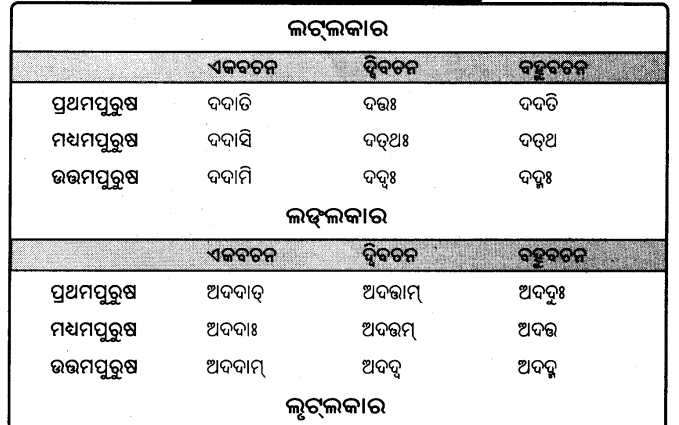
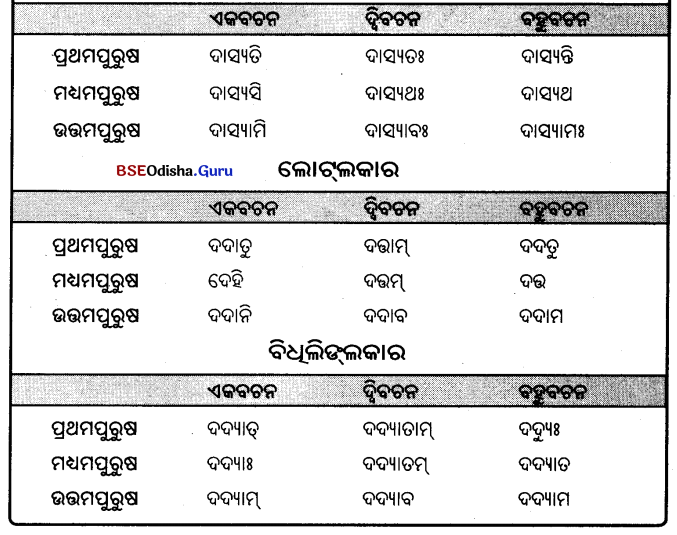
ଦା (ଆତ୍ମନେପଦୀ):
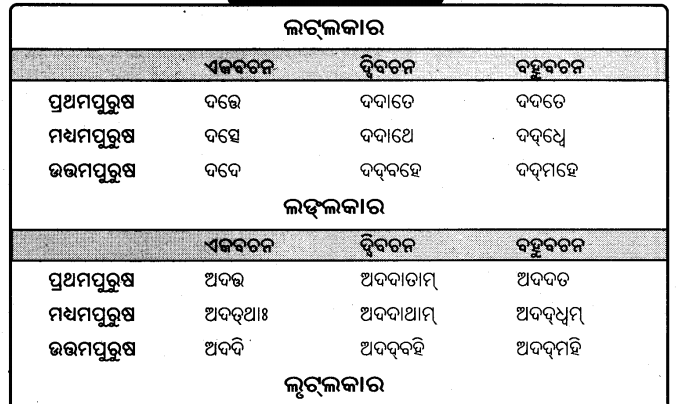
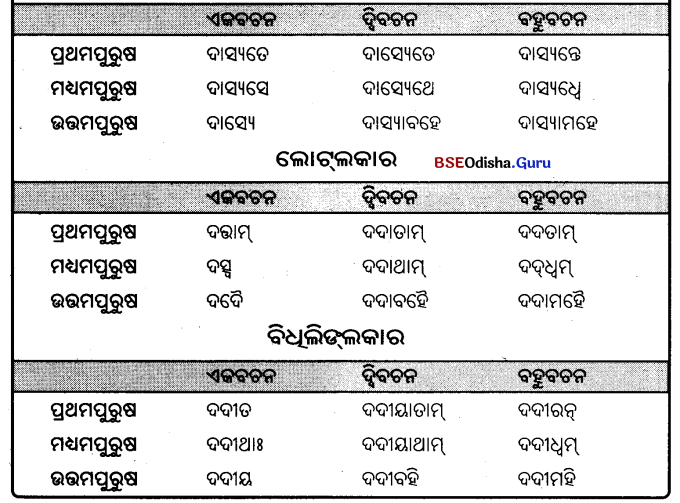
ଆ – ଦା (ଗ୍ରହଣକରିବା) : ଛାତ୍ରୀ ପୁରସ୍କାରମ୍ ଆଦତ୍ତେ ।
Answer:
ଛାତ୍ରଟି ପୁରସ୍କାର ଗ୍ରହଣକରୁଛି ।
ପ୍ର – ଦା (ପ୍ରଦାନକରିବା) : ରାଜା ଧନଂ ପ୍ରାଦଦାତ୍ ।
Answer:
ରାଜା ଧନ ପ୍ରଦାନ କଲେ ।

ସମ୍ + ପ୍ର – ଦା (ସମ୍ପ୍ରଦାନ କରିବା) : ଧନୀ ଦରିଦ୍ରାୟ ଧନଂ ସମ୍ପ୍ରଦଦାତି ।
Answer:
ଧନୀ ଗରିବକୁ ଧନ ଦେଉଛି ।
ଧା (ଧାରଣକରିବା, ପୋଷଣକରିବା, ସ୍ଥାପନ କରିବା) : ପୃଥିବୀ ଲୋକାନ୍ ଦଧାତି । (ପରସ୍ପେପଦୀ) । କାତଃ କାଞ୍ଚନସଂସର୍ଗୀତ୍ ଧରେ ମାରକତୀ ଦ୍ୟୁତିମ୍ (ଆତ୍ମନେପଦୀ) ।
Answer:
ପୃଥିବୀ ଲୋକଙ୍କୁ ଧାରଣକରିଛି । କାଚ କାଞ୍ଚନ ସଂସର୍ଗରୁ ମାରକତ ଶୋଭା ଧାରଣ କରିଛି ।
(ପରସ୍ପେପଦୀ)।:
ଭୀ (ଭୟକରିବା):
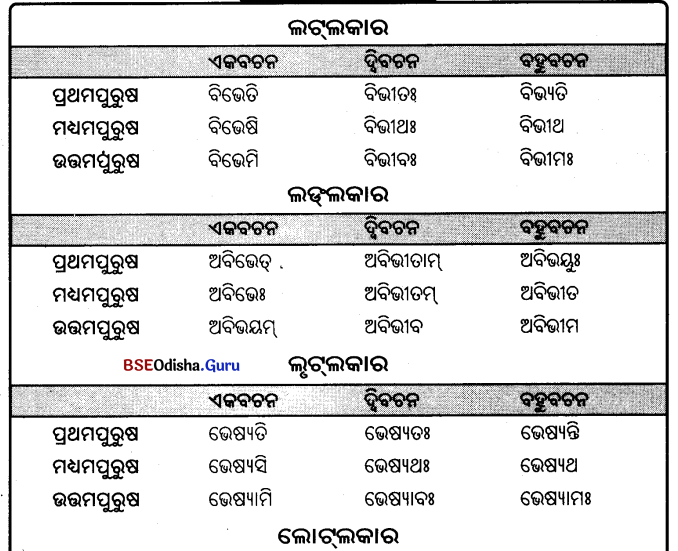
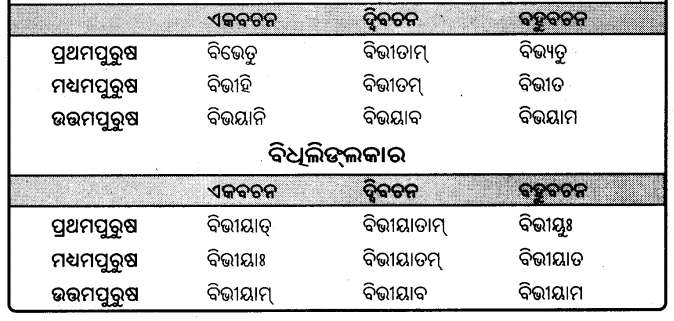
ଲଟ୍ – ଲଡ୍ ଓ ବିଧୁଲିଡ୍ ଲକାରରେ ବିକଳ୍ପରେ ‘ଭୀ’ ସ୍ଥାନରେ ‘ଭି’ ହୁଏ
ହା (ତ୍ୟାଗକରିବା) ଜହାତି, ଜହୀତଃ, ଜହତି, ଅଜହାତ୍, ହାସ୍ୟତି, ଜହାତୁ, ଜହ୍ୟାତ୍ ।
ହୁ (ହବନକରିବା) ଜୁହୋତି, ଜୁହୂତଃ, ଜୁସ୍ପତି, : ଅଜୁହୋତ୍, ହୋଷ୍ୟତି, ଜୁହୋତୁ, ଜୁହୁୟାତ୍ । ବ୍ରାହ୍ମଣା ଅଗ୍ନି ଜୁଦୃତି । (ବ୍ରାହ୍ମଣ ଅଗ୍ନିରେ ହୋମ କରନ୍ତି ।)
ଅଭ୍ୟ।ସଃ:
୧। ଯଥା ନିର୍ଦ୍ଦେଶଂ ଧାତୁରୂପେଣ ଶୂନ୍ୟସ୍ଥାନଂ ପୂରୟତ ।
(କ) ପ୍ରଧାନଶିକ୍ଷକଃ ଛାତ୍ରେଭ୍ୟ ପୁରସ୍କାରାନ୍ ___________ । (ଦା – ଲଟ୍)
Answer:
ବଦାତି
(ଖ) ବାଳକଃ ସର୍ପାତ୍ __________ । (ଭୀ – ଲଟ୍)
Answer:
ବିଭେତି
(ଗ) ବ୍ରାହ୍ମଣା ଅଗ୍ନି ___________ । (ହୁ – ଲଟ୍)
Answer:
ଜୁହୁତି
(ଘ) ସର୍ବେ ଦରିଦ୍ରେଭ୍ୟା ଧନଂ _____________ । (ଦା – ଲୋଟ୍)
Answer:
ଦଦତୁ
(ଙ) ସାଧବ କସ୍ମାତ୍ ନ ___________ । (ଭୀ – ବିଧୂଲିଡ୍)
Answer:
ବିଭୀଯୁଃ
(ଚ) ବୟଂ ଭିକ୍ଷୁକାୟ ଭିକ୍ଷା __________ । (ଦା – ଲଡ୍)
Answer:
ଅଦସ୍ଥ
(ଛ) ଙ ବାଳକେଭିଂ ମିଷ୍ଟାନଂ ___________ । (ଦା – ଲୁଟ୍)
Answer:
ଦାସ୍ୟସି
(ଜ) ମୂର୍ଖ ଅଵସ୍ୟ ହେତୋ ବହୂନ୍ ___________ । (ହ। – ଲଟ୍)
Answer:
ଦହାତି
(ଝ) ଚୌରାଂ ରକ୍ଷିଭ୍ୟ ___________ । (ଭୀ – ଲଟ୍)
Answer:
ବିଭ୍ଯତି
(ଞ) ରାଜପୁନଃ ସୁବର୍ଣ୍ଣକଙ୍କଣଂ ___________ । (ଭୃ – ଲଟ୍)
Answer:
ଧରେ
ଅଭ୍ୟ।ସଃ:
୧। ଯଥା ନିର୍ଦେଶଂ ଧାତୁରୂପେଣ ଶୂନ୍ୟସ୍ଥାନଂ ପୂରୟତ ।
(କ) ପ୍ରଧାନଶିକ୍ଷକ ଛାତ୍ରେଭ୍ୟ ପୁରସ୍କାରାନ୍ __________ । (ଦା – ଲଡ୍)
Answer:
ବଦାତି
(ଖ) ବାଳକଃ ସର୍ପ।ତ୍ ___________ । (ଭ। – ଲଟ୍)
Answer:
ବିଭେତି
(ଗ) ବ୍ରାହ୍ମଣା ଅଗ୍ନି ___________ । (ହୂ – ଲଟ୍)
Answer:
ଜୁହୁତି
(ଘ) ସର୍ବେ ଦରିଦ୍ରେଭ୍ୟା ଧନଂ ___________ । (ଦା – ଲୋଟ୍)
Answer:
ଦଦତୁ
(ଙ) ସାଧନୁଃ କସ୍ମାତ୍ ନ ____________ । (ଦା – ଲୋଟ୍)
Answer:
ବିଭୀ
(ଚ) ବୟଂ ଭିକ୍ଷୁକାୟ ଭିକ୍ଷା __________ । (ଦା – ଲୁଟ୍)
Answer:
ଅଦସ୍ଥ
(ଛ) ତଂ ବାଳକେଭ୍ୟ ମିଷ୍ଟାନଂ ___________ । (ଦା – ଲଡ୍)
Answer:
ଦାସ୍ୟସି
(ଜ) ମୂର୍ଖ ଅଚ୍ଛସ୍ୟ ହେତୋ ବହୂନ୍ ____________ । (ହା – ଲଟ୍)
Answer:
ଦହାତି
(ଝ) ଚୌରାଂ ରକ୍ଷିଭ୍ୟ ___________ । (ଭ। – ଲଟ୍)
Answer:
ବିଭ୍ଯତି

(ଞ) ରାଜପୁନଃ ସୁବର୍ଣ୍ଣକଙ୍କଣଂ ___________ (ଭୃ – ଲୁଟ୍)
Answer:
ଧରେ
୨। ନିମ୍ନଲିଖୂତବାକ୍ୟାନି ସଂଶୋଧୟତ ।
(କ) ତେ ମତ୍ସ୍ୟ ବିଭ୍ୟନ୍ତି ।
Answer:
ତେ ମତ୍ସ୍ୟ ବିଦ୍ୟୁତି ।
(ଖ) ତେ ଦେବତାୟେ ପୁଷ୍ପ ଦଦନ୍ତୁ ।
Answer:
ତେ ଦେବତାୟେ ପୁଷ୍ପ ଦତୁ ।
(ଗ) ତଂ କସ୍ମାତ୍ ନ ଅଭିଭେତ୍ ।
Answer:
ତଂ କସ୍ମାତ୍ ନ ଅବିଭଃ ।
(ଘ) ବୟଂ ଧନ୍ୟ ଅଦଦାତ୍ ।
Answer:
ବୟଂ ଧନମ୍ ଅଦଦ୍ମ ।
(ଙ) ଶିକ୍ଷକା ପୁରସ୍କାରାନ୍ ଦଦନ୍ତି ।
Answer:
ଶିକ୍ଷକା ପୁରସ୍କାରାନ୍ ଦହତି ।
(ଚ) ଶିଶନଃ ନ୍ୟୁନ୍ୟ ଭେଷ୍ଯତି ।
Answer:
ଶିଶନଃ ନ୍ଯୂନ୍ୟ ଭେଷ୍ୟନ୍ତି ।
(ଛ) ଭବନ୍ତଃ ତେଭିଂ ଦଦନ୍ତୁ ।
Answer:
ଭବନ୍ତଃ ତେଭ୍ୟ ଦଦତୁ ।
(ଜ) ସାଧୁ ଦୁଷ୍ଟଭ୍ୟ ବିଭୀୟାତ ।
Answer:
ସାଧଃ ଦୁଷ୍ଟଭ୍ୟ ବିଭୀୟାତ୍ ।
(ଝ) ମାତଃ ! ବୁଦ୍ଧି ଦଦତୁ ।
Answer:
ମାତଃ ! ବୁଦ୍ଧି ଦେହି ।
(ଞ) ଅହଂ ତୁଭ୍ୟ କିଂ ଦଦ୍ୟାତ୍ ।
Answer:
ଅହଂ ତୁଭ୍ୟ କିଂ ଦଦ୍ୟାମ୍ ।
୩। ସଂସ୍କୃତେନ ଅନୁବାଦଃ କାର୍ଯ୍ୟ ।
(କ) ଧନୀମାନେ ଦରିଦ୍ରଙ୍କୁ ଦେବା ଉଚିତ
Answer:
ଧନିନଃ ଦରିଦ୍ର୍ୟଭ୍ୟ ଧନଂ ଦସ୍ୟୁ ।
(ଖ) କୃପଣ କିଛି ଦିଏ ନାହିଁ ।
Answer:
କୃପନଃ କିମପି ନ ଦଦାତି ।
(ଗ) ପିଲାମାନେ କାହିଁକି ଡରନ୍ତି ।
Answer:
ଶିଶତଃ କଥ୍ୟ ବିଭ୍ୟତି ।
(ଘ) ମୁଁ ଦରିଦ୍ରମାନଙ୍କୁ ବସ୍ତ୍ର ଦିଏ ।
Answer:
ଅହଂ ଦରିଦ୍ର୍ୟଭ୍ୟ ବୟଂ ଦଦାମି ।
(ଙ) ଧାର୍ମିକ ପାପକୁ ଭୟ କରେ ।
Answer:
ଧାର୍ମିକଃ ପାପାତ୍ ବିଭେତି ।
(ଚ) ତୁମେ ସାପକୁ ଭୟକରିବ କି ।
Answer:
ତଂ ସର୍ପାତ୍ ଭେଷ୍ଯସି କିମ୍ ।
(ଛ) ଛାତ୍ରମାନେ ଶିକ୍ଷକଙ୍କୁ ଭୟକରିବା ଉଚିତନୁହେଁ ।
Answer:
ଛାତ୍ରୀ ଶିକ୍ଷକାତ୍ ନ ବିଭୀୟୁ ।

(ଜ) ଆଜିକାଲି କେହି କାହାକୁ ଭୟକରୁନାହାଁନ୍ତି ।
Answer:
ଅଧୁନା କୋଽହି କସ୍ମାତ୍ ନ ବିଭେତି ।
(ଝ) ନିର୍ଲଜ ଅପମାନକୁ ଭୟ କରିବ ନାହିଁ ।
Answer:
ନିର୍ଲଜଃ ଅପମାନାତ୍ ନ ଭେଷ୍ଯତି
(ଘ) ସୃ।ଦି:
ଶୁ (ଶୁଣିବା):
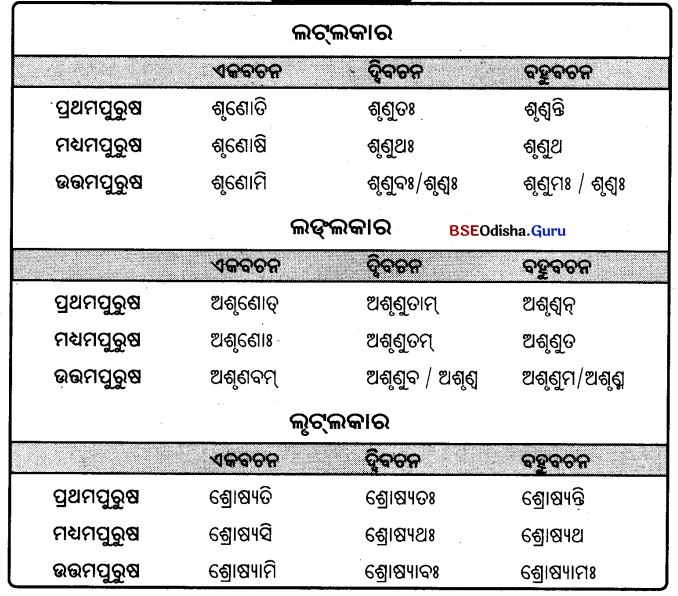
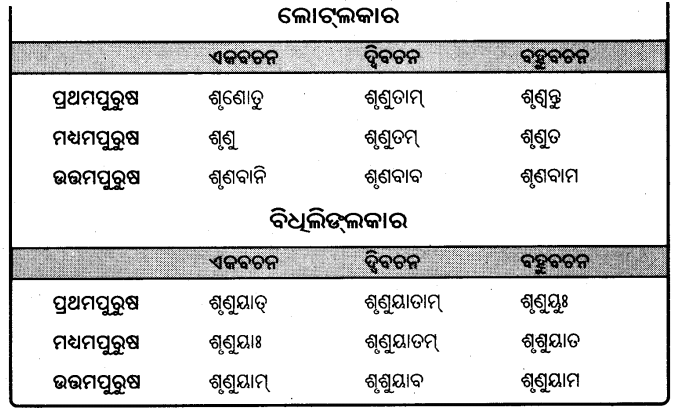
ଆ- ଶୁ, ପ୍ରତି – ଶୁ (ପ୍ରତିଶ୍ରୁତି ଦେବା / ପ୍ରତିଜ୍ଞାକରିବା) : ଆଶୁଣୋତି, ପ୍ରତିଶୃଣୋତି ।
କେତେକ ପ୍ରଚଳିତ ଧାତୁର (ସ୍ଵାଦିଗଣୀୟ) ଲଟ୍, ଲଡ୍, ଲୁଟ୍, ଲୋଟ୍ ଓ ବିଧୂଲିଲକାର ପ୍ରଥମପୁରୁଷ ଏକବଚନର ରୂପ ଦିଆଗଲା ।
ଆପ୍ (ପାଇବା) : ଆପ୍ଳୁତି, ଆପ୍ଲୋଡ଼, ଆପ୍ସ୍ୟତି, ଆପ୍ରୋତୁ, ଆପ୍ଲ ୟାତ୍ ।
ପ୍ର – ଆପ୍ : (ଲାଭକରିବା) ପ୍ରାୟୋତି, ପ୍ରାଷ୍ଟୋତ୍, ପ୍ରାପ୍ସ୍ୟତି, ପ୍ରାପ୍ନାତୁ, ପ୍ରାପ୍ଲୟାତ୍ !
ଶକ୍ (ସମର୍ଥ ହେବା) : ଶକ୍ନୋତି, ଅଶକ୍ନୋତ୍, ଶକ୍ଷ୍ୟତି, ଶକ୍ନୋତୁ, ଶକୁ ଯାତ୍ ।
ଚି (ସଂଗ୍ରହକରିବା / ତୋଳିବା) : ଚିନୋତି, ଅଚିନୋତ୍, ଚେଷ୍ୟତି, ଚିନୋତୁ, ଚିନୁୟାତ୍ ।
ବ୍ଧ (ବରଣକରିବା -ପରସ୍ପେପଦୀ) : ବୃଣୋତି, ଅବୃଣୋତ୍ର, ବରିଷ୍ୟତି, ବୃଣୋତୁ, ବୃଣୁୟାତ୍ ।
(ଆତ୍ମନେପଦୀ) : ବୃଣୁତେ, ଅବ୍ଣୁତ, ବରିଷ୍ୟତେ, ବୃଣୁତାମ୍, ବୃଦ୍ଧୀତାମ୍ ।
କେତେକ ଶିଷ୍ଟ ପ୍ରୟୋଗ :
ସ୍ଟ (ଢାଙ୍କିବା / ବିଛାଇବା) : ପୁଷ୍ପକ୍ଷତଃ ପୀଠସ୍ଥାନଂ ଘୃଣୋତି ।
Answer:
ଫୁଲ ଓ ଅରୁଆ ଚାଉଳରେ ପୀଠସ୍ଥାନକୁ ଢାଙ୍କିଦେଉଛି ।
ଆ-ସ୍କୃ (ଆସ୍ତରଣ କରିବା) : ପୁଷ୍ପାଦିଭିଂ ଶଯ୍ୟାମ୍ ଆସ୍ତ୍ରଣୋତି ।
Answer:
ପୁଷ୍ପ ପ୍ରଭୃତିରେ ଶଯ୍ୟା ଆସ୍ତରଣ କରୁଛି ।
ଦୁ (ସନ୍ତାପିତ କରିବା/ ଦୁଃଖ ଦେବା) : ଦାରିଦ୍ର୍ୟ ଦୁନୋତି ଚେତଃ ।
Answer:
ଦାରିଦ୍ର୍ୟ ହୃଦୟକୁ ଦୁଃଖ ଦିଏ ।
(ଙ) ତଦାଦି:
ପ୍ରଚ୍ଛ (ପଚାରିବା):
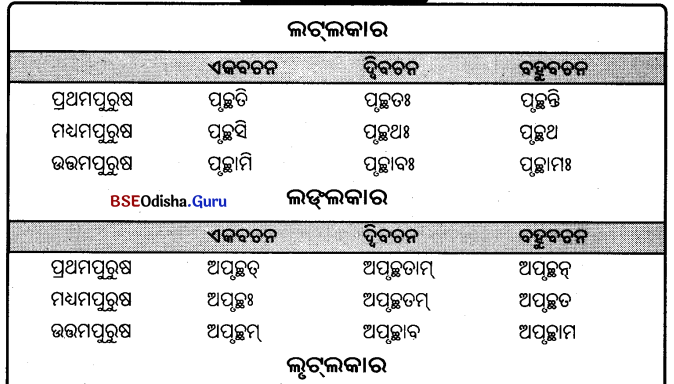
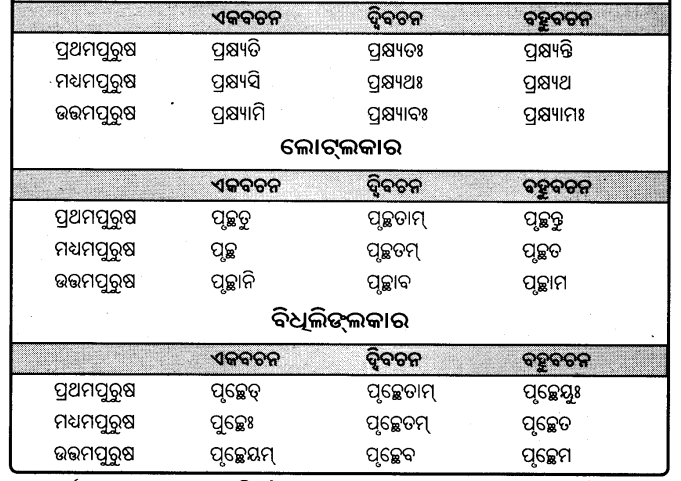
ଆ+ ପ୍ରଚ୍ଛ (ଆମନ୍ତ୍ରଣ ବା ସମ୍ଭାଷଣ କରିବା ) ଆତ୍ମନେପଦୀ ହୁଏ । ଆପୃଚ୍ଛତେ । କେତେକ ପ୍ରଚଳିତ ଧାତୁର ଯଥାକ୍ରମେ ଲଟ୍, ଲଡ୍, ଲୁଟ୍, ଲୋଟ୍ ଓ ବିଧୂଲିଡ୍ ଲକାରର ପ୍ରଥମ ପୁରୁଷ ଏକବଚନରେ ରୂପ ନିମ୍ନରେ ପ୍ରଦତ୍ତ ହେଲା ।
ଇଷ୍ – (ଇଚ୍ଛାକରିବା) : ଇଚ୍ଛତି, ଐଚ୍ଛତ୍, ଏଷିଷ୍ୟତି, ଇଚ୍ଛତୁ, ଇଚ୍ଛେତ୍ ।
ଲିଖ୍ – (ଲେଖୁବା) : ଲିଖତି, ଅଲିଖତ୍, ଲେଖୁଷ୍ୟତି, ଲିଖନ୍ତୁ, ଲିଖେତ୍ ।
କ୍ଷିପ୍ – ( ଫୋପାଡ଼ିବା) : କ୍ଷିପତି, ଅକ୍ଷିପତ୍, କ୍ଷେପ୍ସ୍ୟତି, କ୍ଷିପତୁ, କ୍ଷିପେତ୍ ।
ସିଚ୍ – (ଛିଞ୍ଚିବା) : ସିଞ୍ଚତି, ଅସିଞ୍ଚତ୍, ସେକ୍ଷ୍ୟତି, ସିଞ୍ଚତୁ, ସିଦ୍ଧେତ୍ ।
ସୃଜ୍ – ( ସୃଷ୍ଟିକରିବା) : ସୃଜତି, ଅସୃଜତ୍, ସ୍ରଷ୍ୟତି, ସୃଜତୁ, ସୃଜେତ୍ ।
ଉତ୍ – ସୃଜ୍ (ତ୍ୟାଗକରିବା) : ଉତ୍ସୁଜତି, ଉଦସୃଜତ୍, ଉତ୍ସ୍ୟକ୍ଷ୍ୟତି, ଉତ୍ସୃଜତୁ, ଉଜେତ୍ । ପାପଧନମ୍ ଉତ୍ସୁଜେତ୍ ।
ମୁଚ୍ – (ମୋଚନକରିବା) : ମୁଞ୍ଚତି, ଅମୁଞ୍ଚତ୍, ମୋକ୍ଷତି, ମୁଞ୍ଚତୁ, ମୁଵେତ୍ ।
ଆ – ହେ (ଡାକିବା) : ଆହ୍ବୟତି, ଆହ୍ବୟତ୍, ଆହ୍ବୟିଷ୍ୟତି, ଆହ୍ବତୁ, ଆହ୍ଵାୟେତ୍ ।
ଆ – ହେ (ଆସ୍ଫାଳନ ଅର୍ଥରେ ଆତ୍ମନେପଦୀ ହୁଏ) : ବୀରଃ ବୀରମ୍ ଆନ୍ଧ୍ରୟତେ ।
ସ୍ପୃଶ୍ – (ସ୍ପର୍ଶକରିବା) : ଅଂଶତି, ଅସ୍ପୃଶତ୍, ସ୍ତକ୍ଷ୍ଯତି / ସ୍ପଷ୍ୟତି, ସ୍ପଶତ୍ ସ୍ପଶତ୍ରୁ ।
ଆ – ଦୃ (ଆଦରକରିବା) : (ଆତ୍ମନେପଦୀ) – ଆଦ୍ରିୟତେ, ଆଦ୍ରିୟତ, ଆଦରିଷ୍ୟତେ, ଆଦ୍ରିୟତାମ୍, ଆଦ୍ରିୟେତ । ସାଧୁ ଧର୍ମମ୍ ଆଦ୍ରିୟତେ । (ସାଧୁ ଧର୍ମକୁ ଆଦର କରେ ।)
ଉପ – ଦିଶ୍ (ଉପଦେଶ ଦେବା) : ଉପଦିଶତି, ଉପାଦିଶତ୍, ଉପଦେଷ୍ୟତି, ଉପଦିଶତ୍ରୁ, ଉପଦିଶେତ୍ । ଭବନ୍ତଃ ଅସ୍ମାନ୍ ଉପଦିଶନ୍ତୁ । (ଆପଣମାନେ ଆମକୁ ଉପଦେଶ ଦିଅନ୍ତୁ ।)
ନିର୍ – ଦିଶ୍ (ନିର୍ଦ୍ଦେଶ ଦେବା) : ନିର୍ଦେଶତି, ନିରଦିଶତ, ନିର୍ଦ୍ଦେଷ୍ୟତି, ନିର୍ଦ୍ଦଶତ୍ରୁ, ନିର୍ଦ୍ଦେଶେତ୍ । ଭବାନ୍ ମାନଂ ନିର୍ଦ୍ଦେଶତ୍ରୁ ।
ମୁ – (ମରିବା) : ଲଟ୍ – ମ୍ରିୟତେ, କ୍ରିୟେତେ, ପ୍ରିୟନ୍ତେ…, ଲୁଟ୍ରେ ମରିଷ୍ୟତି, ମରିଷ୍ୟତଃ, ମରିଷ୍ୟନ୍ତି ହୁଏ ।
ତୁଦ୍ ( ଉଭୟପଦୀ – କଷ୍ଟଦେବା ଅର୍ଥରେ ) ଲଟ୍ ତୁଦତି / ତୁତେ, ଲୁଟ୍ରେ ତୋତ୍ସ୍ୟତି / ତୋତେ ଏହିପରି ରୂପ ହୁଏ ।

କେତେକ ଉଭୟପଦୀ ଧାତୁ :
କ୍ଷିପ୍ – (ଫୋପାଡ଼ିବା) ଲଟ୍ : କ୍ଷିପତି / କ୍ଷିପତେ, ଲୁଟ୍ କ୍ଷେପ୍ସ୍ୟତି / କ୍ଷେପ୍ସ୍ୟତେ ।
ଅଧ୍ – କ୍ଷିପ୍ (ତିରସ୍କାର ଅର୍ଥରେ) : କିମର୍ଥ୍ଯ ମହ୍ୟମ୍ ଅଧ୍ୟକ୍ଷିପତି / ଅଧ୍ଯକ୍ଷିପଡେ ।
ଆ – କ୍ଷିପ୍ (ଦୋଷଦେବା) : ଏତଦ୍ ଦୂଷଣଂ ମୟି ମା ଆକ୍ଷିପ / ଆକ୍ଷିପସ୍ ।
ସମ୍ – କ୍ଷିପ୍ (ସଂକ୍ଷେପ କରିବା) : ସଂକ୍ଷିପତୁ / ସଂକ୍ଷିପତାଂ ଭବତଃ କଥାମ୍ ।
ଅଭ୍ୟ।ସଃ:
୧। ନିମ୍ନଲିଖୂକ୍ରିୟାପଦାନି ବ୍ୟବହୃତ୍ୟ ପୃଥକ୍ ବାକ୍ୟାନି ରଚୟତ ।
(କ) ଶୁଣ୍ଢନ୍ତି
Answer:
ବାଳା ଗୀତଂ ଶୃଣ୍ବନ୍ତି !
(ଖ) ଶୃଶୁୟାତ
Answer:
ପୂୟଂ ସର୍ବଂଶୃଣୁୟାତ ।
(ଗ) ଆପୋତୁ
Answer:
ନଃ ଫଳମ୍ ଆପ୍ରୋତୁ ।
(ଘ) ଅଚିନୋତ୍
Answer:
ବାଳିକା ପୁଷ୍ପମ୍ ଅଚିନୋତ୍ ।
(ଙ) ପୃଚ୍ଛସି
Answer:
ବଂ କିଂ ପୃଚ୍ଛସି ?
(ଚ) ସୁକ୍ଷ୍ଯତି
Answer:
ଭବବାନ୍ ଏବ ସ୍ରଷ୍ଯତି ।
(ଛ) ଆଦିଶତ୍ରୁ
Answer:
ଭବାନ୍ ମାମ୍ ଆଦିଶତ୍ରୁ ।
(ଜ) ସଂକ୍ଷିପତାମ୍
Answer:
ଭାଷଣଂ ସଂକ୍ଷିପତାମ୍ ।
(ଝ) ଆଦ୍ବୟ
Answer:
ଧଃ ମାମ୍ ଆହ୍ଵାୟତୁ ।
(ଞ) ପ୍ରକ୍ଷ୍ୟାମଃ
Answer:
ବୟଂ ପ୍ରଶଂ ପ୍ରକ୍ଷ୍ୟାମଃ ।
୨। ଭ୍ରମସଂଶୋଧନଂ କୁରୁତ ।
(କ) ୟୂୟଂ ତଂ ପୃଚ୍ଛନ୍ତୁ ।
Answer:
ୟୂୟଂ ତଂ ପୃଚ୍ଛତ ।
(ଖ) ଅହଂ ମିତ୍ର ପ୍ରଚ୍ଛିଷ୍ୟାମି ।
Answer:
ଅହଂ ମିତ୍ର ପ୍ରକ୍ଷ୍ୟାମି ।
(ଗ) ତେ ଗୀତଂ ଶୃଣୁୟାତ୍ ।
Answer:
ତେ ଗୀତଂ ଶୃଣୁ ।

(ଘ) ଅହଂ ଧନଂ ପ୍ରାପ୍ଲା ବନ୍ ।
Answer:
ଅହଂ ଧନଂ ପ୍ରାପ୍ଲା ବମ୍ ।
(ଙ) ଆବାଂ କଥା ଶୁଣୁନଃ ।
Answer:
ଆବାଂ କଥା ଶୃଣୁୟାବ ।
(ଚ) ତୃଷାର୍ଜୀ ଜଳଂ ଇଚ୍ଛେୟଃ ।
Answer:
ତୃଷାର୍ଜୀ ଜଳମ୍ ଇଚ୍ଛେତ୍ ।
(ଛ) ତୌ ପୁରାଣମ୍ ଅଶୃଣୋ ।
Answer:
ତୋ ପୁରାଣମ୍ ଅଶୃଣୁତାମ୍
(ଜ) ଡଃ ଯଶଃ ପ୍ରାପ୍ତ୍ ହି ।
Answer:
ଡଃ ଯଶଃ ପ୍ରାପ୍ନାତୁ ।
(ଝ) ବୟଂ ପୁଷ୍ପାଣି ଚେଷ୍ୟର୍ଥ ।
Answer:
ବୟଂ ପୁଷ୍ପାଣି ଚେଷ୍ୟାମଃ ।
(ଞ) ତେ ଗୀତଂ ଶୃଣୁୟାତ୍ ।
Answer:
ତେ ଗୀତଂ ଶୃଣୁ ।
୩। ସଂସ୍କୃତେନ ଅନୁବାଦଃ କାର୍ଯ୍ୟ ।
(କ) ଆପଣ ପୁରାଣ ଶୁଣନ୍ତୁ ।
Answer:
ଭବାନ୍ ପୁରାଣଂ ଶୁଣୋତୁ ।
(ଖ) ପିଲାମାନେ ଆଗ୍ରହରେ କଥା ଶୁଣୁଛନ୍ତି ।
Answer:
ବାଳକା ଆଗ୍ରହେଣ କଥା ଶୁଣୁନ୍ତି ।
(ଗ) ଦୁଷ୍ଟମାନେ ନୀତିବାକ୍ୟ ଶୁଣିବେ ନାହିଁ ।
Answer:
ଦୃଷ୍ଟା ନୀତିବାକ୍ୟ ନ ଶ୍ରୋଷ୍ୟନ୍ତି ।
(ଘ) ମହତ୍ ଲୋକଙ୍କ ଉପଦେଶ ସର୍ବଦା ଶୁଣିବା ଉଚିତ ।
Answer:
ମହତାମୁପଦେଶଂ ସର୍ବଦା ଶୁଣୁୟାତ୍ ।
(ଙ) ଆମ୍ଭେମାନେ ଶ୍ରେଣୀରେ ପାଠ ଶୁଣୁ ।
Answer:
ବୟଂ ଶ୍ରେନିଂ ପାଠ ଶୁକ୍ଳ ।
(ଚ) ସଂସାରରେ କିଏ ବା ଯଶ ଇଚ୍ଛା ନ କରେ ।
Answer:
ସଂସାରେ ଡଃ ଯଶଃ ନେଚ୍ଛତି ।
(ଛ) ଈଶ୍ବର ଜଗତକୁ ସୃଷ୍ଟି କରିଛନ୍ତି ।
Answer:
ଈଶ୍ଵରଃ ସଂସାରଂ ସୃଜତି ।

(ଜ) ତୁମେ ମୋତେ କ’ଣ ପଚାରୁଛ ?
Answer:
ନଂ ମାଂ କିଂ ପୁଚ୍ଛସି ?
(ଝ) ବିଦ୍ଵାନ୍ମାନଙ୍କୁ ସମସ୍ତେ ଆଦର କରନ୍ତି ।
Answer:
ବିଦୁଷା ସର୍ବେ ଆଦରଂ କୁର୍ବନ୍ତି ।
(ଚ) ତନାଦି:
କୃ (କରିବା):

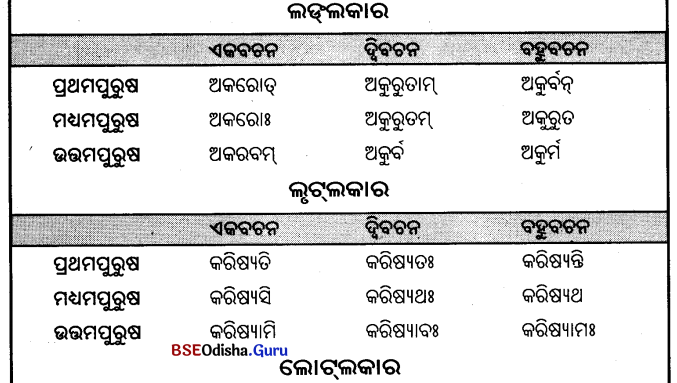
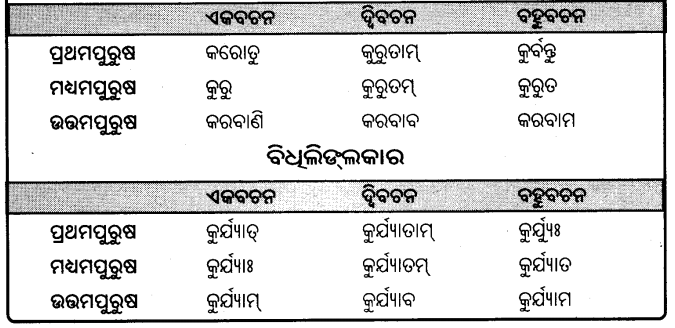
ମନେରଖ :
(୧) ‘କୃ’ ଧାତୁର ପରସ୍ପେପଦୀ ଓ ଆତ୍ମନେପଦୀ ରୂପମଧ୍ୟରୁ ଗୋଟିଏ ମନେରଖିଲେ ଅନୁବାଦ ପ୍ରଭୃତି କରିହେବ । ଯେହେତୁ ପରସ୍ପେପଦୀର ବହୁଳ ବ୍ୟବହାର ଦେଖାଯାଏ, ତେଣୁ ଏଠାରେ କେବଳ ପରସ୍ପେପଦୀର ରୂପ ଦିଆଗଲା । ‘ର୍ଯ୍ୟା’ ସ୍ଥାନରେ ‘ଯାଁ’ ମଧ୍ୟ ଗ୍ରହଣୀୟ ।
(୨) ଅନୁବାଦ କ୍ଷେତ୍ରରେ ‘କୃ’ ଧାତୁର ଆବଶ୍ୟକତା ବିଶେଷ ଭାବରେ ଦେଖାଯାଏ । କୌଣସି ଧାତୁର ରୂପ ମନେ ନଥିଲେ, ଧାତୁରେ ଲ୍ୟୁଟ୍ (ଅନ) ପ୍ରତ୍ୟୟ କରି, କୃ ଧାତୁ ସାହାଯ୍ୟରେ ଅନୁବାଦ କରାଯାଇପାରିବ; ମାତ୍ର କର୍ମ (୨ୟା ) ସ୍ଥାନରେ ୬ଷ୍ଠୀ ବିଭକ୍ତି ହୁଏ ।
ଯଥା –
(କ) ପିଲାଟି କାନ୍ଦୁଛି । ଶିଶୁ କ୍ରନ୍ଦନଂ କରୋତି / ଶିଶୁ କ୍ରନ୍ଦତି । ରାମଃ ଗ୍ରାମିଂ ଗଚ୍ଛତି । ରାମ ଗ୍ରାମସ୍ୟ
ଗମନଂ କରୋତି । ରାମ ଗାଁକୁ ଯାଉଛି ।
(ଖ) ପୁଅ ଅତିଥିଙ୍କୁ ସେବାକରୁଛି – ପୁନଃ ଅତିଥେ ସେବାଂ କରୋତି / ଅତିଥ୍ୟ ସେବତେ ।
(୩) ‘କୃ’ ଧାତୁ ପୂର୍ବରେ ଉପସର୍ଗ କିମ୍ବା ଉପପଦ ରହିଲେ ଧାତୁର ଅର୍ଥ ଭିନ୍ନ ଭିନ୍ନ ପ୍ରକାର ହୋଇଥାଏ; ଯଥା-
ଅନୁ-କୃ (ଅନୁକରଣକରିବା) : ଛାତ୍ରୀ ଶିକ୍ଷକମ୍ ଅନୁକରୋତି ।
Answer:
ଛାତ୍ର ଶିକ୍ଷକଙ୍କୁ ଅନୁକରଣ କରୁଛି ।
ଅପ – କୃ (ଅପକାରକରିବା) : ଦୁର୍ଜନଃ ସଜ୍ଜନଂ ପ୍ରତି ଅପକରୋତି ।
Answer:
ଦୁଷ୍ଟଲୋକ ସଜ୍ଜନଙ୍କ ଅପକାର କରୁଛି ।
ଉପ – କୃ (ଉପକାରକରିବା) : ଔଷଧଃ ଶରୀରମ୍ ଉପକରୋତି ।
Answer:
ଔଷଧ୍ ଦେହର ଉପକାର କରେ ।
ସମ୍ – କୃ (ଶୁଦ୍ଧକରିବା) : ତପସ୍ୟା ଚିରଂ ସଂସ୍କରୋତି ।
Answer:
ତପସ୍ୟା ଚିତ୍ତ ସଂସ୍କାର କରେ ।
ପରା-କୃ (ପ୍ରତ୍ୟାଖ୍ୟାନକରିବା) : ଶିକ୍ଷକ ଛାତ୍ରସ୍ୟ ଆବେଦନଂ ପରାକରୋତି ।
Answer:
ଶିକ୍ଷକ ଛାତ୍ରର ଅବେଦନ ପ୍ରତ୍ୟାଖ୍ୟାନ କରନ୍ତି ।
ବି – କୃ (ବିକୃତକରିବା) : କ୍ରୋଧଃ ଚିରଂ ବିକରୋତି ।
Answer:
କ୍ରୋଧ ହୃଦୟକୁ ବିକୃତ କରେ ।

ଅଧୁ – କୁ (ଅଧୁକାରକରିବା) : ବୈଦେଶିକା ଭାରତବର୍ଷମ୍ ଅଧୂକୁର୍ବନ୍ତି ସ୍ମ ।
Answer:
ବିଦେଶୀମାନେ ଭାରତ ଅଧିକାର କଲେ ।
ପରି + କୃ (ପରିଷ୍କାରକରିବା) : ସେବକଃ ଶ୍ରେଣୀଗୃହଂ ପରିଷ୍କରୋତି ।
Answer:
ସେବକ ଶ୍ରେଣୀଗୃହ ପରିଷ୍କାର କରେ ।
ପୁରସ୍ + କୃ (ପୁରସ୍କାରଦେବା) : ରାଷ୍ଟ୍ରପତିଃ ସୈନିକାନ୍ ପୁରସ୍କରୋତି ।
Answer:
ରାଷ୍ଟ୍ରପତି ସୈନିକଙ୍କୁ ପୁରସ୍କୃତ କରନ୍ତି ।
ତିରସ୍ + କୃ (ତିରସ୍କାରକରିବା) : ସାଧୁ ପାଫ ତିରସ୍କରୋତି ।
Answer:
ସାଧୁ ପାପକୁ ତିରସ୍କାର କରେ ।
ନିର୍ + ଆ – କୃ (ନିରାକରଣକରିବା) : ସର୍ବକାରଃ ଅଭାବଂ ନିରାକରୋତି ।
Answer:
ସରକାର ଅଭାବ ଦୂରକରନ୍ତି ।
ଆବିସ୍ – କୃ (ଆବିଷ୍କାରକରିବା) : ବୈଜ୍ଞାନିକା ଉପାୟାନ୍ ଆବିଷ୍ନୁହଁନ୍ତି ।
Answer:
ବୈଜ୍ଞାନିକମାନେ ଉପାୟ ଆବିଷ୍କାର କରନ୍ତି ।
ନମସ୍ – କୃ (ନମସ୍କାରକରିବା) : ଛାତ୍ରୀ ଶିକ୍ଷକାନ୍ ନମସ୍ଫୁର୍ବନ୍ତି ।
Answer:
ଛାତ୍ରମାନେ ଶିକ୍ଷକଙ୍କୁ ପ୍ରଣାମ କରନ୍ତି ।
ବହିସ୍ – କୃ (ବାହାରକରିବା) : ସୈନିକଃ ଦେଶାତ୍ ଶତ୍ରୁ ବହିଷ୍କରୋତି ।
Answer:
ସୈନିକ ଦେଶରୁ ଶତ୍ରୁକୁ ତଡ଼ିଦିଏ ।
ଅଳମ୍ – କୃ (ଅଳଂକୃତକରିବା) : ପଣ୍ଡିତ ସଭାମ୍ ଅଳଂକୁର୍ବନ୍ତି ।
Answer:
ପଣ୍ଡିତମାନେ ସଭାକୁ ଅଳଙ୍କୃତ କରନ୍ତି ।
ଦୂର – କୃ (ଦୂରକରିବା) : ବଂ ଦୁଃଖୀ ଦୂରୀକୁରୁ । ଭଗବାନ୍ ଦୁଃଖ୍ୟ ଦୂରକରନ୍ତି ।
Answer:
ତୁମେ ଦୁଃଖ ଦୂର କର । ଭଗବାନ ଦୁଃଖ ଦୂରକରନ୍ତି ।
ସ୍ଥିର – କୃ (ସ୍ଥିରକରିବା) : ନଃ ପୁତ୍ରସ୍ୟ ବିବାହଂ ସ୍ଥିରୀକରିଷ୍ଯତି ।
Answer:
ସେ ପୁଅର ବିବାହ ସ୍ଥିରକରିବେ ।
ସତ୍ – କୃ (ସତ୍କାରକରିବା) : ଭାରତୀୟା ଅତିଥୀନ୍ ସକୁର୍ବନ୍ତି ।
Answer:
ଭାରତୀୟାମାନେ ଅତିଥୀଙ୍କୁ ସକୁର୍ବନ୍ତି ।
ପ୍ରତି – କୃ (ପ୍ରତିକାରକରିବା) : ଚିକିତ୍ସକଃ ରୋଗ ପ୍ରତିକରୋତି ।
Answer:
ଡାକ୍ତର ରୋଗର ପ୍ରତିକାର କରେ ।
(୪) ଏତଦ୍ଭିନ୍ନ – ତନ୍ (ବିସ୍ତାରକରିବା) : (ତନୋତି) ରବି ଆତପଂ ତନୋତି । ଟୀକାମ୍ ତନୁତେ (ବ୍ୟାଖ୍ୟାକୁ ବିସ୍ତାରକରୁଛି) ।
Answer:
ସୂର୍ଯ୍ୟ ଉତ୍ତାପ ବିସ୍ତାରକରନ୍ତି ।
ମନ୍ (ମନନକରିବା) : ବହୁ ମନୁତେ ତବ ସମାଗମମ୍ ।
Answer:
ତୁମ ଆଗମନକୁ ମୁଁ ବଡ଼ ଭାବୁଛି ।
ଆ – ତନ୍ (ବ୍ୟାପିବା) : ଆ ତନୋତି ଗୃହଂ ଧୂମଜାରଃ ।
Answer:
ଘରସାରା ଅଳନ୍ଧୁ ବ୍ୟାପିଛି ।
(ଛ) କ୍ର୍ୟ।ଦି:
ଜ୍ଞା (ଜାଣିବା, ବୋଧକରିବା):
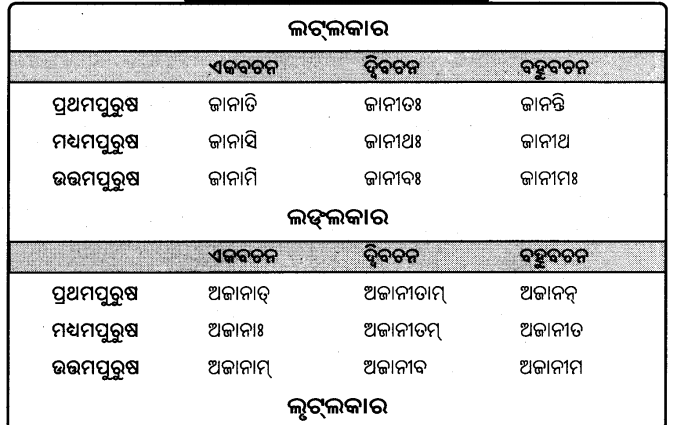
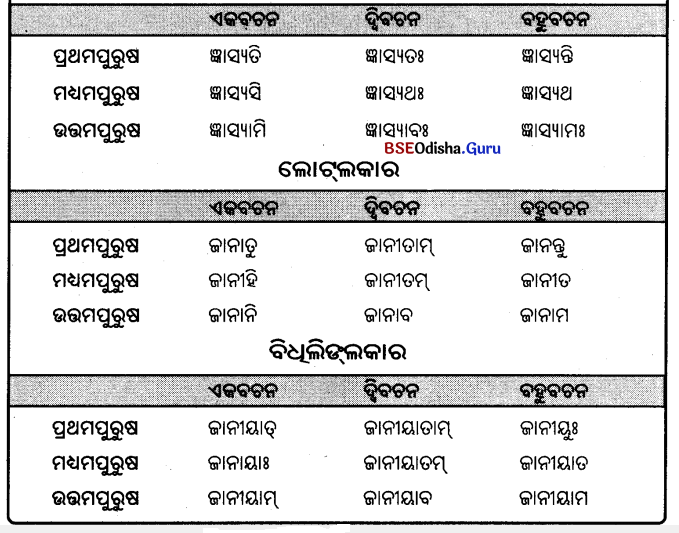
(୧) ଜ୍ଞା ଧାତୁ ଉପସର୍ଗଯୁକ୍ତ ହେଲେ ଭିନ୍ନ ଭିନ୍ନ ଅର୍ଥ ପ୍ରକାଶ କରେ ।
ଅନୁ – ଜ୍ଞା (ଅନୁମତିଦେବା) : ମାଂ ଗମନାୟ ଅନୁଜାନୀହି ।
Answer:
ମୋତେ ଯିବାକୁ ଅନୁମତି ଦିଅ ।
ଅଭି – ଜ୍ଞା (ମନେପକାଇବା / ଚିହ୍ନିବା) : ମୁଦ୍ରିକୟା ଦୁଷ୍ୟନ୍ତ ଶକୁନ୍ତଳାମ୍ ଅଭ୍ୟଜାନାତ୍ ।
Answer:
ମୁଦିରୁ ଦୁଷ୍ୟନ୍ତ ଶକୁନ୍ତଳାକୁ ଚିହ୍ନିଲେ ।

ଅବ – ଜ୍ଞା (ଅନାଦରକରିବା) : କମପି ମା ଅବଜାନୀହି ।
Answer:
କାହାରି ଅନାଦାର କର ନାହିଁ ।
ପ୍ରତି – ଜ୍ଞା (ପ୍ରତିଜ୍ଞାକରିବା) : ଛାତ୍ର ସତ୍ୟ ବସ୍ତୁ ପ୍ରତିଜାନାତି ।
Answer:
ଛାତ୍ର ସତ କହିବାକୁ ପ୍ରତିଜ୍ଞା କରେ ।
(୨) ଜ୍ଞା ଧାତୁର ଆତ୍ମନେପଦୀ ରୂପ : ଜାନୀତେ, ଅଜାନାତ, ଜ୍ଞାସ୍ୟତେ, ଜାନୀତାମ୍, ଜାନୀତ ।
(୩) ଅନ୍ୟ କେତେକ ପ୍ରଚଳିତ ଧାତୁମାନଙ୍କର ରୂପ –
ଅଶ୍ (ଖାଇବା ଅର୍ଥରେ ) : ଲଟ୍ ଅଶ୍ଳୀତି, ଲୁଟ୍ରେ ଅଶିଷ୍ଯତି । ଶିଶୁ ଦିବସସ୍ୟ ତ୍ରି ଅଶ୍ମାତି ।
Answer:
ପିଲାଟି ଦିନରେ ତିନିଥର ଖାଏ ।
ବନ୍ଧୁ (ବାନ୍ଧିବା ଅର୍ଥରେ) : ସା କେଶପାଶଂ ବତି ।
Answer:
ସେ କେଶ ବାନ୍ଧୁଛି ।
ଗ୍ରନ୍ଥ (ଗୁନ୍ଥିବା, ଗ୍ରନ୍ଥରଚନା କରିବା) : ବାଳିକା ମାଳା ପ୍ରଥାତି । ଡଃ କାବ୍ୟ ଗଷ୍ୟତି ।
Answer:
ବାଳିକା ମା’ ଗୁଛୁଛି । ସେ କାବ୍ୟ ରଚନା କରିବେ ।
‘ଭୂ’ (ଛେଦନକରିବା, ଛିଣ୍ଡେଇବା) : ଲୁନାତି । ଲୁନୀତେ, ଲବିଷ୍ୟତି / ଲବିଷ୍ୟତେ, କାନନଂ ନ ଲୁନୀହି । କୃଷକଃ ଶସ୍ୟ ଲୁନାତି । ଇତ୍ୟାଦି ।
Answer:
ଜଙ୍ଗଲ କାଟ ନାହିଁ । ଚାଷୀ ଶସ୍ୟ କାଟୁଛି ।
(ଜ) ବୁରାଦି:
ଚୁରାଦି ଗଣୀୟ ଧାତୁର ନିଜ ଅର୍ଥରେ (ସ୍ବାର୍ଥେ) ଣିଚ୍ (ଇ) ପ୍ରତ୍ୟୟ ହୁଏ ।
ଚୁର୍ + ଣିଚ୍ (ଇ) = ଚୋରି + ଅ + ତିପ୍ = ଚୋରୟତି (ଚୋରିକରିବା)
ପୂଜ୍ (ପୂଜାକରିବା):
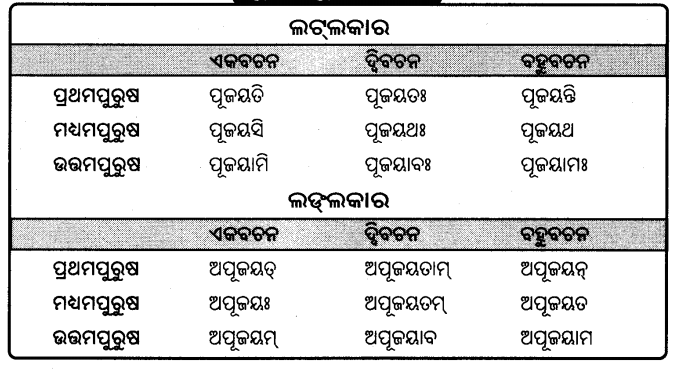
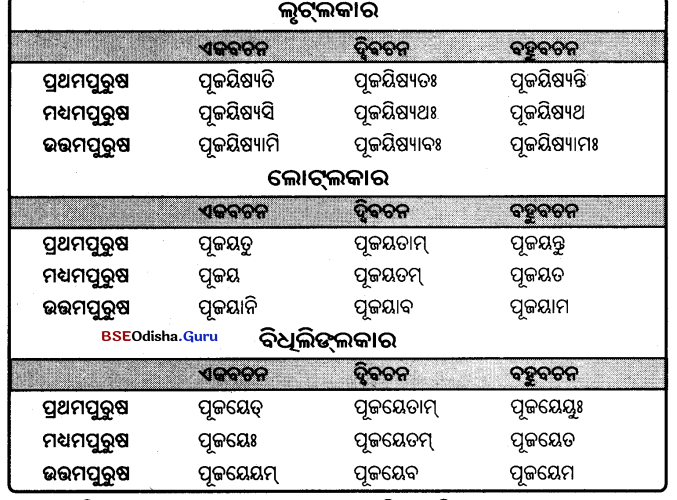
କେତେକ ପ୍ରଚଳିତ ଧାତୁର ପ୍ରଥମ ପୁରୁଷ ଏକବଚନରେ ରୂପ ନିମ୍ନରେ ଦିଆଗଲା-
ଚୁର୍ (ଚୋରିକରିବ!) : ଚୋରୟତି, ଅଚୋରୟତ୍, ରୋରୟିଷ୍ୟତି, ଚୋରୟତୁ, ଚୋରୟେତ୍ ।
କ୍ଷାଳ୍ (ଧୋଇବା) : କ୍ଷାଳୟତି, ଅୟାଳୟତ୍, କ୍ଷାଳୟିଷ୍ୟତି, କ୍ଷାଳୟତ୍ରୁ, କ୍ଷାଳୟେତ୍ ।
କ୍ଷାଳ୍ ପୂର୍ବରେ ପ୍ରାୟତଃ ‘ପ୍ର’ ଉପସର୍ଗ ଲାଗିଥାଏ । ପ୍ରକ୍ଷାଳୟତି ଇତ୍ୟାଦି ।
ତାଡ଼ (ତଡ଼ିଦେବା / ଆଘାତକରିବା) : ତାଡ଼ୟତି, ଅତାଡ଼ୟତ୍, ତାଡ଼ୟିଷ୍ୟତି, ତାଙଋତୁ, ତାୟେତ୍ ।
ପ୍ର + ଈର୍ (ପ୍ରେରଣ କରିବା) : ପ୍ରେରୟତି, ପ୍ରେରୟତ୍, ପ୍ରେରୟିଷ୍ୟତି, ପ୍ରେରୟତୁ, ପ୍ରେରୟେତ୍ । ସେହିପରି ଭକ୍ଷ୍ (ଭକ୍ଷଣକରିବା), ଚିତ୍ର (ଚିତ୍ରକରିବା), ଅର୍କ୍ (ଅର୍ଜନକରିବା), ଗଣ୍ଠି (ଗଣନାକରିବା), ଦଣ୍ଡ୍ (ଦଣ୍ଡଦେବା), ମାର୍ଗ (ଖୋଜିବା), ରବ୍ (ରଚନାକରିବା), ସୂଚ୍ (ସୂଚନା ଦେବା), ପୂର୍ (ପୂରଣକରିବା), ଚିନ୍ତୁ (ଚିନ୍ତାକରିବା), ପାଳ୍ (ପାଳନକରିବା), ଅର୍ଚ୍ଚ – (ପୂଜାର୍ଚ୍ଚନାକରିବା), ମିଶ୍ର – (ମିଶାଇବା), ବଣ୍ଟ୍ (ବାଣ୍ଟିବା), ସ୍ପୃହ୍ – ( ସ୍ପୃହାକରିବା), ପୀଡ୍ (ପୀଡ଼ାଦେବା), ବର୍ଣ୍ଣ (ରଙ୍ଗେଇବା), ମାନ୍-(ସମ୍ମାନଦେବା), ଆ-ସୁଦ୍ (ଆସ୍ବାଦନକରିବା), ଲଫ୍ (ଲଙ୍ଘନକରିବା), ବଞ୍ଚ୍ – ପ୍ରତାରଣାକରିବା ପ୍ରଭୃତି ଧାତୁଗୁଡ଼ିକର ରୂପ ପୂଜ୍ ଧାତୁର ରୂପକରି ହୋଇଥାଏ ।
ଚୁରାଦି ଗଣୀୟ କେତେକ ଧାତୁର ଆତ୍ମନେପଦୀ ପ୍ରଥମପୁରୁଷ ଏକବଚନରେ ରୂପ ନିମ୍ନରେ ପ୍ରଦତ୍ତ ହୋଇଛି –
ପୂଜା – ପୂଜୟତେ, ଅପୂଜୟତ, ପୂଜୟିଷ୍ୟତେ, ପୂଜୟତାମ୍, ପୂଜୟେତ ।
ମନ୍ତ୍ର – ମନ୍ତ୍ରୟତେ, ଅମନ୍ତ୍ରୟତ, ମନ୍ତ୍ରୟିଷ୍ୟତେ, ମନ୍ତ୍ରୟତାମ୍, ମନ୍ତ୍ରୟେତ ।
ବଞ୍ଚ୍ – ବଞ୍ଚୟତେ, ଅବଞ୍ଚୟତ, ବଞ୍ଚୟିଷ୍ୟତେ, ବଞ୍ଚୟତାମ୍, ବଞ୍ଚୟେତ ।
ପ୍ରାର୍ଥ – ପ୍ରାର୍ଥୟତେ, ପ୍ରାର୍ଥୟତ, ପ୍ରାର୍ଥୟିଷ୍ୟତେ, ପ୍ରାର୍ଥୟତାମ୍, ପ୍ରାର୍ଥୟେତ ।
ଭର୍ସ – ଭର୍ସୟତେ, ଅଭର୍ସୟତ, ଭର୍ସୟିଷ୍ୟତେ, ଭର୍ସୟତାମ୍, ଭର୍ସୟେତ ଇତ୍ୟାଦି ।

ଅଭ୍ୟ।ସଃ:
୧। ଯଥାନିର୍ଦ୍ଦେଶଂ ଧାତୁରୂପେଣ ଶୂନ୍ୟସ୍ଥାନଂ ପୂରୟତ ।
ଯଥା:- ମା କୁରୁ ଧନ-ଜନ-ଯୌବନଗର୍ବମ୍ । (କୃ-ଲୋଟ୍)
(କ) ରାଜା ପଣ୍ଡିତସଭାମ୍ ____________। (କୃ – ଲଜ୍)
Answer:
ଅକରୋତ୍
(ଖ) ମୂର୍ଖ ସଂସାରେ କିମପି ନ _____________ । (ଞା – ଲଟ୍)
Answer:
ଜାନନ୍ତୁ
(ଗ) କୁର୍ମ୍ମୁ _____________ । (କୃ – ବିଧ୍ଲିଡ୍ )
Answer:
କୁର୍ମୁ
(ଘ) ___________ । (ପୂଜ୍ – ଲଟ୍)
Answer:
ପୂଜୟନ୍ତ
(ଙ) ସଂପ୍ରତି ଛାତ୍ରା ସର୍ବା ବିଦ୍ୟା _________ (ଜ୍ଞା – ବିଧୂଲିଡ୍)
Answer:
ଜାନୀୟୁ
(ଚ) ତେ ଇଦମ୍ ଅନାୟାସେନ ___________ । (କୃ – ଲୁଟ୍)
Answer:
କରିଷ୍ଯନ୍ତ
(ଛ) ସର୍ବେ ସର୍ବଂ __________ (ଜ୍ଞା – ଲୋଟ୍)
Answer:
ଜାନନ୍ତୁ
(ଜ) ଛାତ୍ରା ଗୁରୂନ୍ _________ । (ପୂଜ – ବିଧୂଲିଡ୍ )
Answer:
ପୂଜୟେୟୁ
(ଝ) ସା ନଦ୍ୟା ବସ୍ତ୍ର ___________ । (ପ୍ର + କ୍ଷାଳ୍ – ଲଟ୍)
Answer:
ପ୍ରକ୍ଷ୍ୟାଳୟତି
(ଞ) ବାନରା ମାନବାନ୍ ___________ । (ଅନୁ + କୃ – ଲଟ୍)
Answer:
ଅନୁକୁର୍ବନ୍ତି
୨। ନିମ୍ନଲିଖୂକ୍ରିୟାପଦାନି ବ୍ୟବହୃତ୍ୟ ପୃଥକ୍ ବାକ୍ୟାନି ରଚୟତ ।
(କ) ଜାନୀହି _________
Answer:
ତଂ ସର୍ବଂ ଜାନୀହି ।
(ଖ) କୁର୍ମ ________
Answer:
ବୟଂ କିଂ କୁର୍ମୀ ।
(ଗ) ପୂଜୟେ __________
Answer:
ବଂ ଦେବଂ ପୂଜୟେ ।
(ଘ) ତିରସ୍ଫୁର୍ବନ୍ତି _________
Answer:
ତେ ଅସ୍ମାନ୍ ତିରସ୍ଫୁର୍ବନ୍ତି ।
(ଙ) ତାଙୟତୁ ___________
Answer:
ଭବାନ୍ କୁକ୍କୁରଂ ତାଡ଼ଋତୁ ।
(ଚ) ଅଣୃ।ତି _________
Answer:
ମୁନଃ ଶାକାନ୍ନମ୍ ଅଶ୍ଳୀତି ।
(ଛ) ବିଜ୍ଞାପୟତି _________
Answer:
ଶିଳ୍ପପତିଃ ସର୍ବଂ ବିଜ୍ଞାପୟତି ।
(ଜ) ଜାନାତୁ __________
Answer:
ନଃ ପାଠ୍ୟ ଜାନାତୁ ।
(ଝ) ପୂଜୟନ୍ତୁ _________
Answer:
ଭକ୍ତା ଦେବଂ ପୂଜୟନ୍ତୁ ।
(ଞ) ଅକରୋ ___________
Answer:
ତଂ କିମ୍ ଅକରୋ ?
୩। ନିମ୍ନଲିଖୁବାକ୍ୟାନି ସଂଶୋଧୟତ ।
(କ) ବୟଂ ଫଳାନି ବଣ୍ଟୟାମଃ ।
Answer:
ବରଂ ଫଳାନି ବଣ୍ଟୟାମଃ ।
(ଖ) ପୁଂ ସତ୍ୟ ଜାନାନ୍ତୁ ।
Answer:
ପୁଂ ସତ୍ୟ ଜାନୀହି ।
(ଗ) ମନଃ ଦୁଃଖ ମଧ୍ଧତି ।
Answer:
ନଃ ଦୁଃଖ୍ୟ ।
(ଘ) କାଳକ୍ରମେଣ ଡଃ ସର୍ବଂ ଅଜାନୀତ୍ ।
Answer:
କାଳକ୍ରମେଣ ଡଃ ସର୍ବମ୍ ଅଜାନାତ୍ ।
(ଚ) ଅହଂ ତାଂ ଜ୍ଞାସ୍ୟସି ।
Answer:
ଅହଂ ତାଂ ଜ୍ଞାସ୍ୟାମି ।
(ଛ) ସା ପୁତ୍ର ଅପ୍ରେରୟତ୍ ।
Answer:
ସା ପୁତ୍ର ପୌରୟତ୍ ।
(ଜ) କୃପଣା ଧନଂ ଗୃହୟତି ।
Answer:
କୃପଣା ଧନାୟ ଗୃହୟନ୍ତି ।
(ଝ) ଅହଂ କବିତାଂ ରଚିଷ୍ୟାମି ।
Answer:
ଅହଂ କବିତାଂ ରଚୟିଷ୍ୟାମି ।
(ଙ) ଭବାନ୍ ବୃକ୍ଷରୋପଣଂ କୁରୁ ।
Answer:
ଭବାନ୍ ବୃକ୍ଷରୋପଣଂ କରୋତୁ ।
(ଞ) ପଠନାତ୍ ପ୍ରାକ୍ ଈଶ୍ବରଂ ପୂଜେତ୍ ।
Answer:
ପଠନାତ୍ ପ୍ରାକ୍ ଈଶ୍ବରଂ ପୂଜୟେତ୍ ।
୪। ସଂସ୍କୃତେନ ଅନୁବାଦଃ କାର୍ଯ୍ୟ ।
(କ) ମୁଁ ତାଙ୍କୁ ଭଲଭାବେ ଜାଣେ ।
Answer:
ଅହଂ ତଂ ସମ୍ୟକ୍ ଜାନେ ଜାନାମି ।
(ଖ) ମା’ ଭାତରେ ଘିଅ ମିଶାଉଛନ୍ତି ।
Answer:
ମାତା ଓଦନେ ଘୃତଂ ମିଶ୍ରୟତି ।
(ଗ) ସନ୍ନ୍ୟାସିନଃ ପରମାତ୍ମାନଂ ପୂଜୟନ୍ତି ।
Answer:
ସନ୍ନ୍ୟାସିନଃ ପରମାତ୍ମାନଂ ପୂଜୟନ୍ତି ।
(ଘ) ଶବର ବଣରେ ଜାଲ ବିସ୍ତାରକରୁଛି ।
Answer:
ଶବରଂ ବନେ ଜାଲଂ ବିସ୍ତାରୟତି ।

(ଙ) ତୁମେ ସେଠାରେ କଳହ କରିବ ନାହିଁ ।
Answer:
ତଂ ତତ୍ର ବିବାଦଂ ନ କୁର୍ଯା ।
(ଚ) ଏକମାତ୍ର ଧର୍ମ ମନୁଷ୍ୟକୁ ଭୂଷିତ କରେ ।
Answer:
ଧର୍ମ ଏବଂ ମାନବଂ ଭୂଷୟତି ।
(ଛ) ମୁଁ ସେହି ଦେବୀଙ୍କୁ ନମସ୍କାର କରୁଛି ।
Answer:
ଅହଂ ତାଂ ଦେବୀ ନମାମି/ ନମସ୍କରୋମି ।
(ଜ) ମୃଗମାନେ ଜଳପାନ କରନ୍ତୁ ।
Answer:
ମୃଗା ଜଳପାନଂ କୁର୍ବନ୍ତୁ ।
(ଝ) ଧନପ୍ରତି ଲୋଭ କରିବ ନାହିଁ ।
Answer:
ଧନଂ ପ୍ରତି ଲୋଭଃ ମାସ୍ତୁ ।
(ଞ) ତୁମେ କ’ଣ ମୋ କଥା ଜାଣିଛ ?
Answer:
କିଂ ମମ କଥା ଜାନାସି ।
ସାଧାରଶ ଅନୁଣାଳନା:
୧। ଯଥାନିର୍ଦେଶଂ ସମୁଚିତକ୍ରିୟାପଦଃ ଶୂନ୍ୟସ୍ଥାନାନି ପୂରୟତ ।
(କ) ପୁତ୍ରା ପିତରଂ _____________ | (ସେବ୍ – ବିଧୂଲିଡ୍)
Answer:
ସେବେରନ୍
(ଖ) ଅହଂ ଧନମ୍ _________ (ଲଭ୍ – ଲଡ୍)
Answer:
ଲଭେ
(ଗ) ବୟଂ ସୈନିକା _________ (ଭୂ-ଲୁଟ୍)
Answer:
ଭବିଷ୍ୟାମଃ
(ଘ) ଯୂୟଂ ପୁସ୍ତକଂ__________ । (ନୀ – ଲୋଟ୍)
Answer:
ନୟତ
(ଙ) ତୃଷାଇଁ ଶୀତଳଜଳଂ ___________ । (ପା- ଲୁଟ୍)
Answer:
ପାସ୍ୟତି
(ଚ) ଆବାଂ ଗୃହଂ _________ (ଗମ୍ – ଲ)
Answer:
ଅଗଚ୍ଛାବ
(ଛ) ବୃଦ୍ଧା ରାମଲୀଳା __________ । (ଦୃଶ୍ – ଲୁଟ୍ )
Answer:
ଦ୍ରବ୍ଯନ୍ତ
(ଜ) ଯୁବାଂ ଶିକ୍ଷକୌ __________ (ଅସ୍ – ଲଟ୍)
Answer:
ସ୍ଥ
(ଝ) ସାୟଂ ଛାତ୍ର ଛାତ୍ରାବାସେ ___________ । (ଅସ୍-ଲ୍ଟ୍)
Answer:
ଭବିଷ୍ଯତ୍ତି
(ଞ) ରାମ ରାବଣଂ __________ (ହନ୍ – ଲଙ)
Answer:
ଅହନ୍
(ଟ) ସର୍ପା ନକୁଳେଭ୍ୟ । ___________ (ଭ।- ଲୁଟ୍)
Answer:
ବିଭ୍ଯତି
(ଠ) ଦାତାରଃ ଧନଂ । ___________ (ଦା- ଲୁଟ୍)
Answer:
ଦାସ୍ୟନ୍ତି
(ଡ) ଛାତ୍ରୀ ଉପଦେଶଂ ___________ (ଶୁ-ବିଧ୍ଲିଡ୍ )
Answer:
ଶୃଣୁୟାତ୍
(ଢ) ବାଳକା କାର୍ଯ୍ୟମ୍ _________ (କୃ-ଲଡ୍)
Answer:
ଅକୁର୍ବନ୍
(ଣ) ଅହଂ ମିତ୍ର _________(ପ୍ରଚ୍ଛ – ଲୁଟ୍)
Answer:
ପ୍ରକ୍ଷ୍ୟାମି
(ତ) ତଂ ସର୍ବକଥା _________ (ଜ୍ଞା – ଲୋଟ୍)
Answer:
ଜାନୀହି
(ଥ) ବୟଂ ଗଣେଶଂ __________ (ପୂଜ୍-ବିଧ୍ଲିଡ୍)
Answer:
ପୂଜୟେମ
(ଦ) ପୂୟଂ ଗୁରୂନ୍ ____________ (ପୂଜ୍ – ଲୋଟ୍)
Answer:
ପୂଜୟତ
(ଧ) ପ୍ରିୟ ନମଃ ଜଳଂ __________ (ଆ + ନୀ – ଲୁଟ୍)
Answer:
ଆନେଷ୍ଯନ୍ତ
(ନ) ଯୁବାଂ ପୂଜା _____________ (କୃ – ଲୁଟ୍)
Answer:
କରିଷ୍ଯତଃ
(ପ) ଅରଣ୍ୟ ଜନ୍ତତଃ ____________ (ସ୍ଥା-ଲଟ୍)
Answer:
ତିଷ୍ପତ୍ତି
୨। ଅଧସ୍ତନବାକ୍ୟାନାଂ ସଂଶୋଧନଂ କୁରୁତ ।
(କ) ଅହଂ ଧନଂ ଲପ୍ସ୍ୟାମି ।
Answer:
ଅହଂ ଧନଂ ଲପ୍ ।
(ଖ) ଭିକ୍ଷୁକଃ ଗ୍ରାମେ ଅଭିକ୍ଷତ୍ ।
Answer:
ଭିକ୍ଷୁକଃ ଗ୍ରାମେ ଅଭିକ୍ଷତ ।
(ଗ) ତେ ମମ କଥା ନ ଜାନାନ୍ତି ।
Answer:
ତେ ମମ କଥା ନ ଜାନନ୍ତି ।
(ଘ) ଅହଂ ତେ ସୁମିଷ୍ଟାନି ଫଳାନି ଦଦାନି, ଖାଦତୁ ।
Answer:
ଅହଂ ତୁଭ୍ୟ ସୁମିଷ୍ଟାନି ଫଳାନି ଦଦାନି, ଖାଦ ।
(ଙ) ସଙ୍ଗତିଃ କିଂ ନ କୁର୍ବନ୍ତି ।
Answer:
ସତସଙ୍ଗତିଃ କିଂ ନ କରୋତି ।
(ଚ) ହରିଶଃ ଜଳଂ ପିବତୁ ।
Answer:
ହରିଣା ଜଳ ପିବନ୍ତୁ ।

(ଛ) ତଂ ସଦା ଧର୍ମଶାସ୍ତ୍ର ଶୃଣୋତୁ ।
Answer:
ତଂ ସଦା ଧର୍ମଶାସ୍ତ୍ର ଶୁଣୁ ।
(ଜ) ଡଃ ଅନାୟାସେନ କାର୍ଯ୍ୟମ୍ ଅକୁରୁତ ।
Answer:
ଡଃ ଅନାୟାସେନ କାର୍ଯ୍ୟମ୍ ଅକରୋତ୍ ।
(ଝ) ନଂ ଗୁରୁଜନାନ୍ ସେବ ।
Answer:
ବଂ ଗୁରୁଜନାନ୍ ସେବସ୍ୱ ।
(ଞ) ଶୀତର୍ଭୋ ଉତ୍ତରତଃ ଶୀତଳପବନଃ ବହିଷ୍ଯତି ।
Answer:
ଶୀତର୍ରେ ଉତ୍ତରତଃ ଶୀତଳୀପବନଃ ବାସ୍ୟାତି ।
୩ । ଅଧସ୍ତନବାକ୍ୟାନାଂ ସଂସ୍କୃତେନ ଅନୁବାଦଂ କୁରୁତ ।
(କ) ବ୍ୟାଧଟି ମୃଗମାନଙ୍କୁ ହତ୍ୟାକଲା ।
Answer:
ଅନୁ – ବ୍ୟାଧଃ ମୃଗାନ୍ ଅହନତି ।
(ଖ) ଗାଈଗୁଡ଼ିକ ପଡ଼ିଆରେ ଘାସ ଚରୁଛନ୍ତି ।
Answer:
ଅନୁ – ଗାନଃ ପ୍ରାନ୍ତରେ ତୃଣାନି ଚରନ୍ତି ।
(ଗ) ବର୍ତମାନ କୁଆଡ଼େ ଯାଅ ନାହିଁ ।
Answer:
ଅନୁ – ଅଧୁନା କୁତ୍ରାପି ମା ଗଛ ।
(ଘ) ଲୋକମାନେ ସୂର୍ଯ୍ୟଙ୍କୁ ପୂଜାକରନ୍ତି ।
Answer:
ଅନୁ – ଜନଃ ସୂର୍ଯ୍ୟ ପୂଜୟନ୍ତି ।
(ଙ) ମହାତ୍ମା ଗାନ୍ଧିଙ୍କୁ ସମସ୍ତେ ଭଲଭାବେ ଜାଣନ୍ତି ।
Answer:
ଅନୁ – ମହାତ୍ମା ଗାନ୍ଧିନଂ ସର୍ବେ ସମ୍ୟକ୍ ଜାନନ୍ତି ।
(ଚ) ମୂର୍ଖମାନେ ଦୁନିଆଁରେ କ’ଣ ଜାଣିବେ ?
Answer:
ଅନୁ – ମୂର୍ଖ ସଂସାରେ କିଂ ଜ୍ଞାସ୍ୟନ୍ତି ?
(ଛ) ଶିକ୍ଷକ ଛାତ୍ରକୁ ପ୍ରଶ୍ନ ପଚାରିଲେ ।
Answer:
ଅନୁ – ଶିକ୍ଷକ ଛାତ୍ର ପ୍ରଶ୍ନମ୍ ଅପୂଚ୍ଛତ୍ ।
(ଜ) ଶବର ବଣରେ ବୁଲୁଛି ।
Answer:
ଅନୁ – ଶବରଃ ବନେ ଭ୍ରମତି ।
(ଝ) ଆମେ ଏହି କାମଟିକୁ କରିବୁ ।
Answer:
ଅନୁ – ବୟମ୍ ଇଦଂ କର୍ମ କରିଷ୍ୟାମଃ ।
(ଞ) ସମସ୍ତେ ମନ୍ଦିରରେ ପୁରାଣ ଶୁଣିବା ଉଚିତ ।
Answer:
ଅନୁ – ସର୍ବେ ମନ୍ଦିରେ ପୁରାଣଂ ଶଶୁ ।
(ଢ) ତୁମେ ମୋତେ ପାଞ୍ଚଟଙ୍କା ଦେଇଥିଲ ।
Answer:
ଅନୁ – ଦଂ ମତ୍ସ୍ୟ ପଞ୍ଚମୁଦ୍ରା ଅଦଦଃ ।
(ଣ ) ପାଣ୍ଡବମାନେ ସେତେବେଳେ ଅରଣ୍ୟରେ ଥିଲେ ।
Answer:
ଅନୁ – ପାଣ୍ଡବାଃ ତଦା ଅରଣ୍ୟ ଆସନ୍ ।
(ତ) ପିଲାମାନେ ରାତିରେ ଦୁଧ ପିଇବା ଉଚିତ ।
Answer:
ଅନୁ – ବାଳକା ନଭଃ ଦୁଗ୍ଧ ପିବେୟୁ ।
(ଥ) ସ୍ଵୟଂ ସେବକ ସମସ୍ତଙ୍କର ସେବାକରନ୍ତି ।
Answer:
ଅନୁ – ସ୍ବୟଂ ସେବକା ସର୍ବେକ୍ଷାଂ ସେବାଂ କୁର୍ବନ୍ତି ।
(ଦ) କୃଷକ ଗାଈଦୁଇଟିକୁ ଗାଁକୁ ନେଲା ।
Answer:
ଅନୁ – କୃଷକଃ ଗାର୍ବୋ ଗ୍ରାମମ୍ ଅନୟତ୍ ।
(ଧ) ଆମ୍ଭେମାନେ ନନ୍ଦନକାନନ ଯିବୁ ।
Answer:
ଅନୁ – ବୟଂ ନନ୍ଦନକାନନଂ ଗମିଷ୍ୟାମଃ ।
(ନ) ଏବର୍ଷ ଅନାବୃଷ୍ଟି ହେତୁ ଦୁର୍ଭିକ୍ଷ ହୋଇପାରେ ।
Answer:
ଅନୁ – ଐଷମଃ ଅନାବୃଷ୍ଟ ଦୁର୍ଭିକ୍ଷ ଭବେତ୍ ।
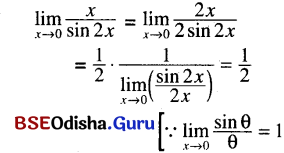
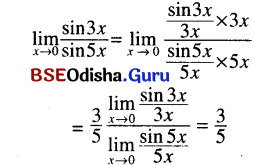
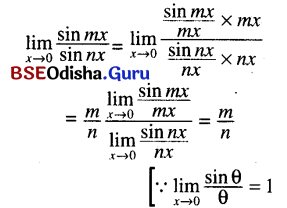
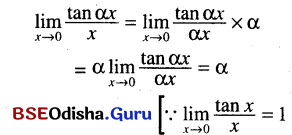
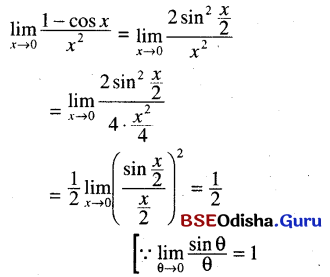
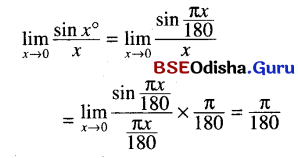
![]()
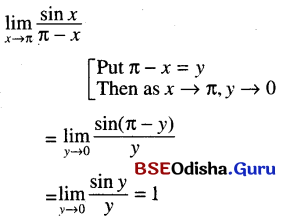
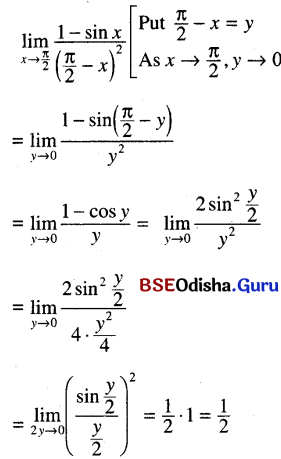
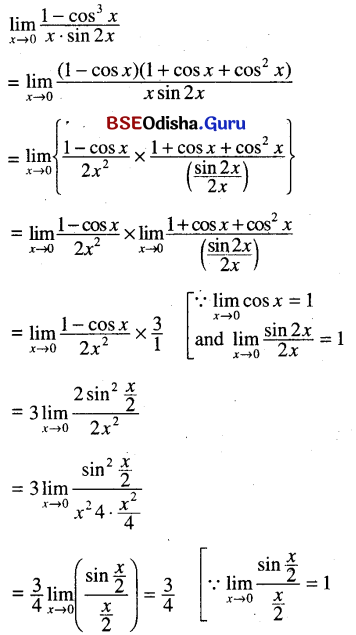
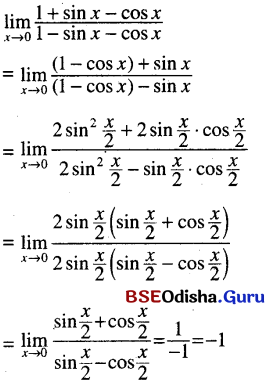
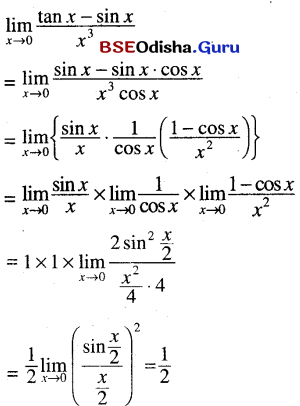
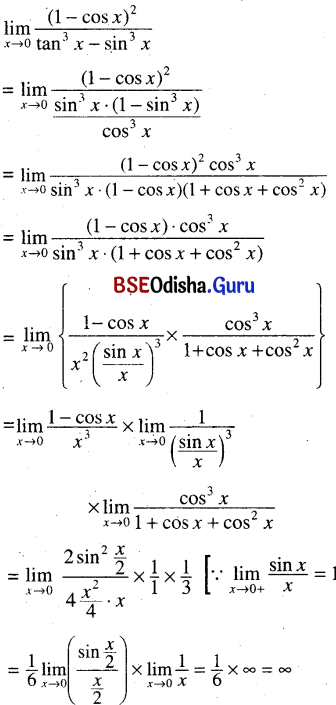
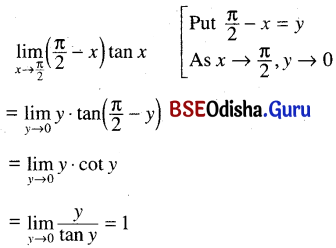
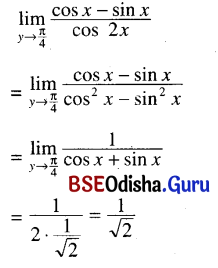
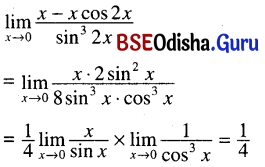
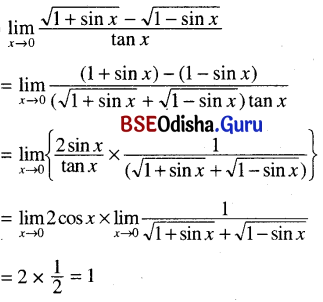
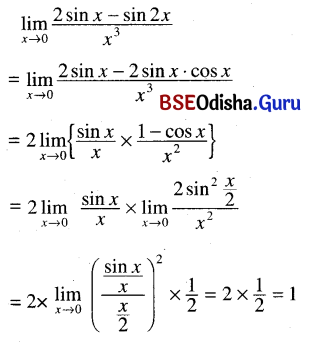
![]()
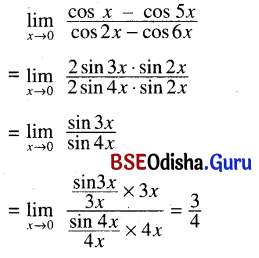
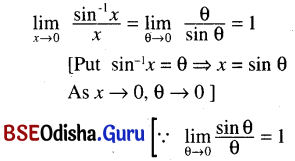
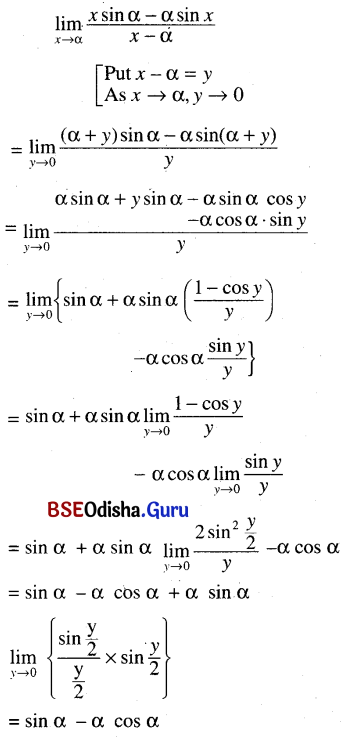
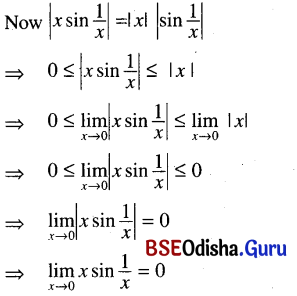
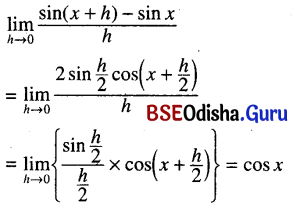
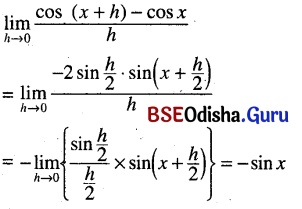
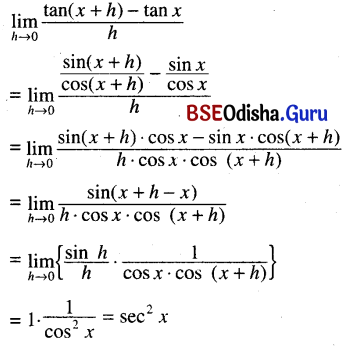
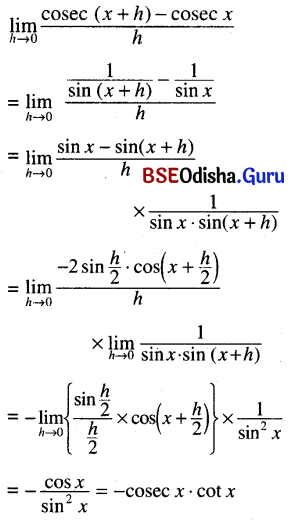
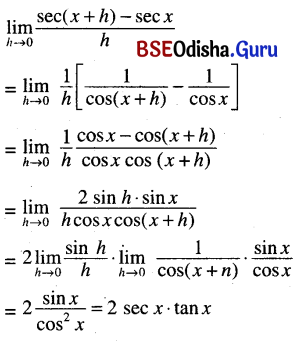
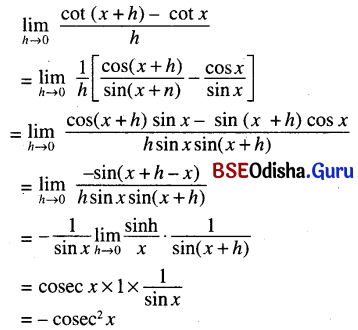
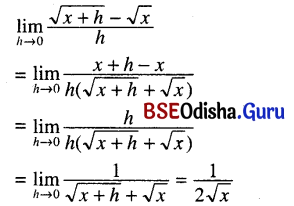
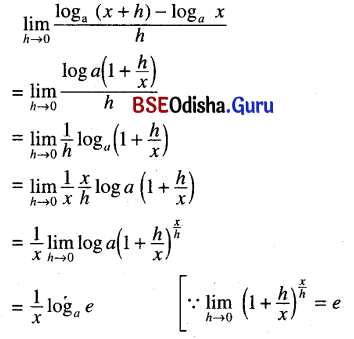
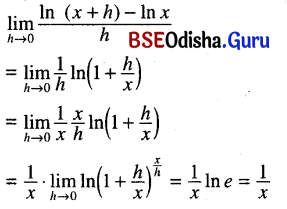
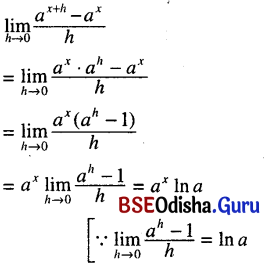
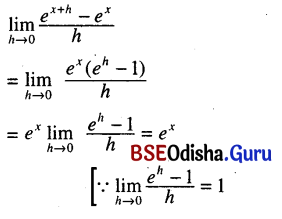
![]()
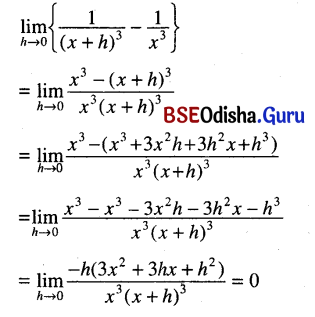
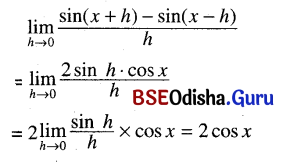
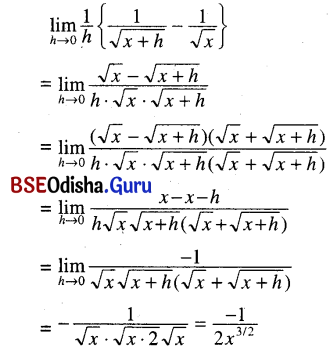
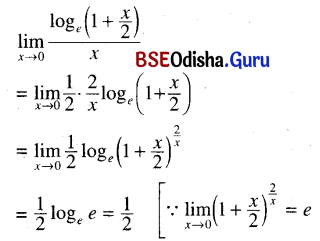
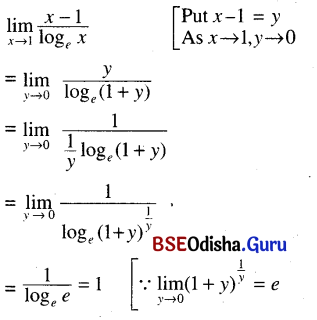
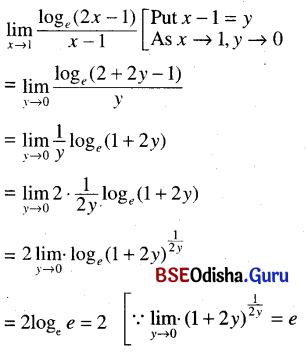
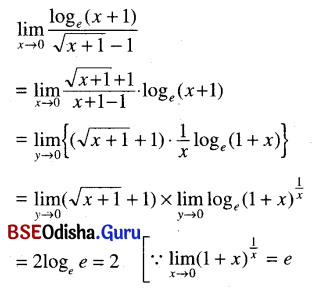
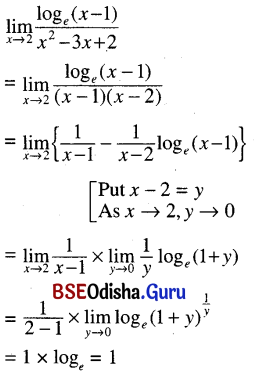
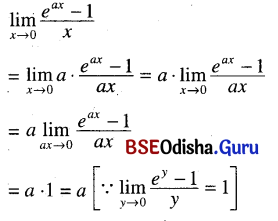
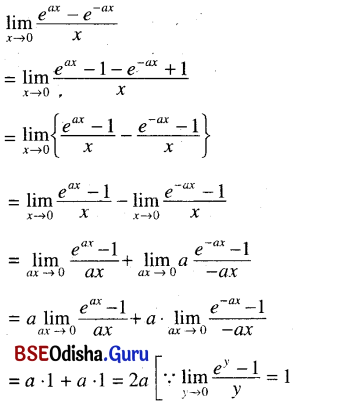
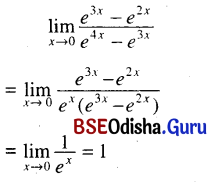
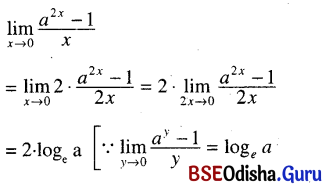
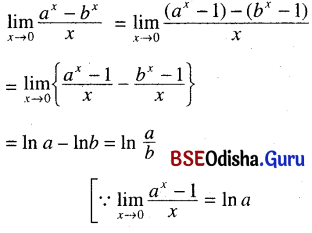
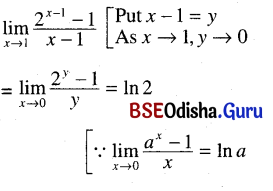
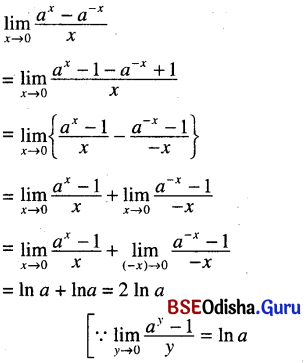
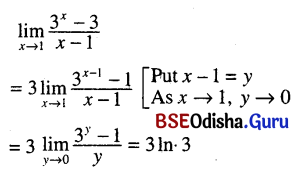
![]()
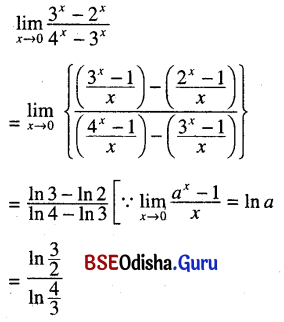
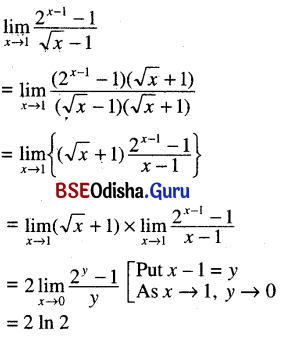
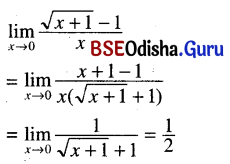
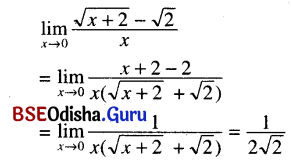
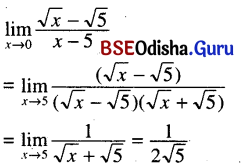
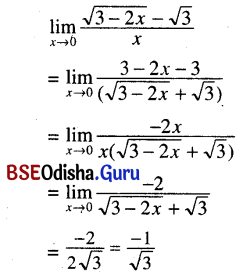
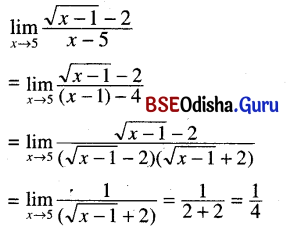
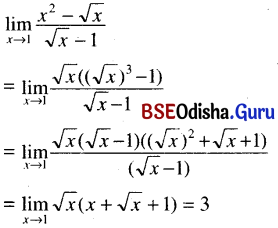
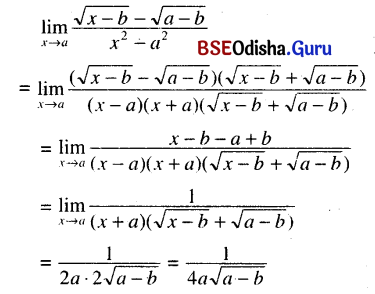
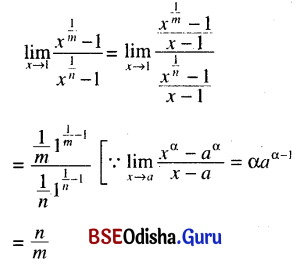
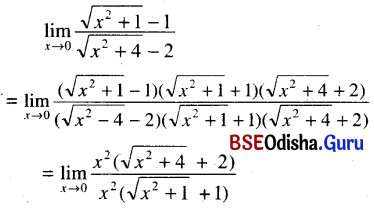
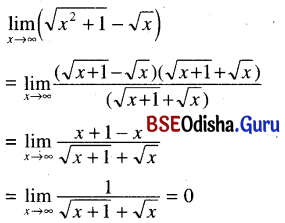
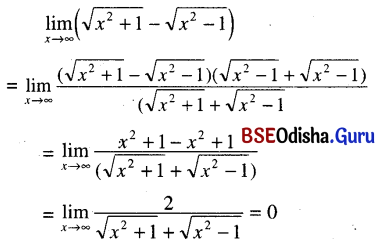
![]()
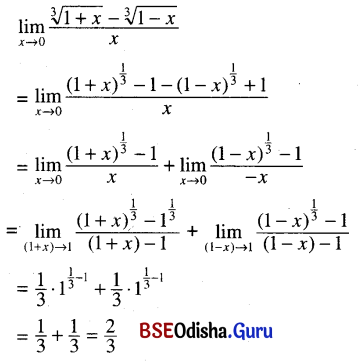
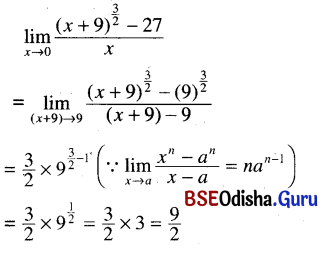
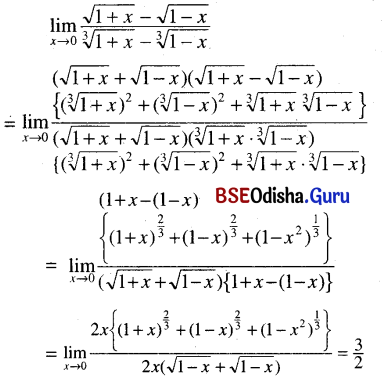
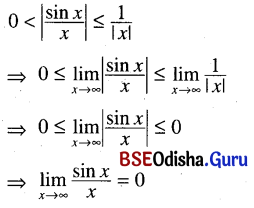
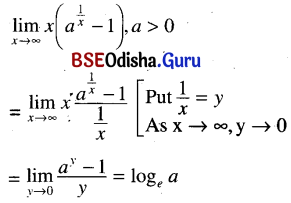
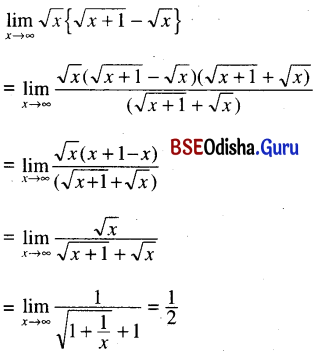
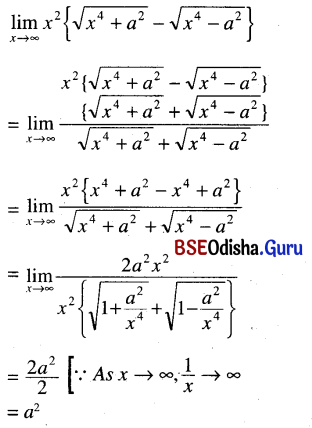
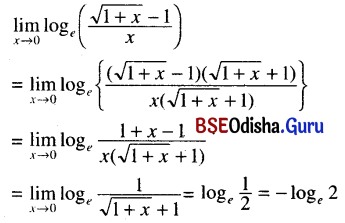
![]()
